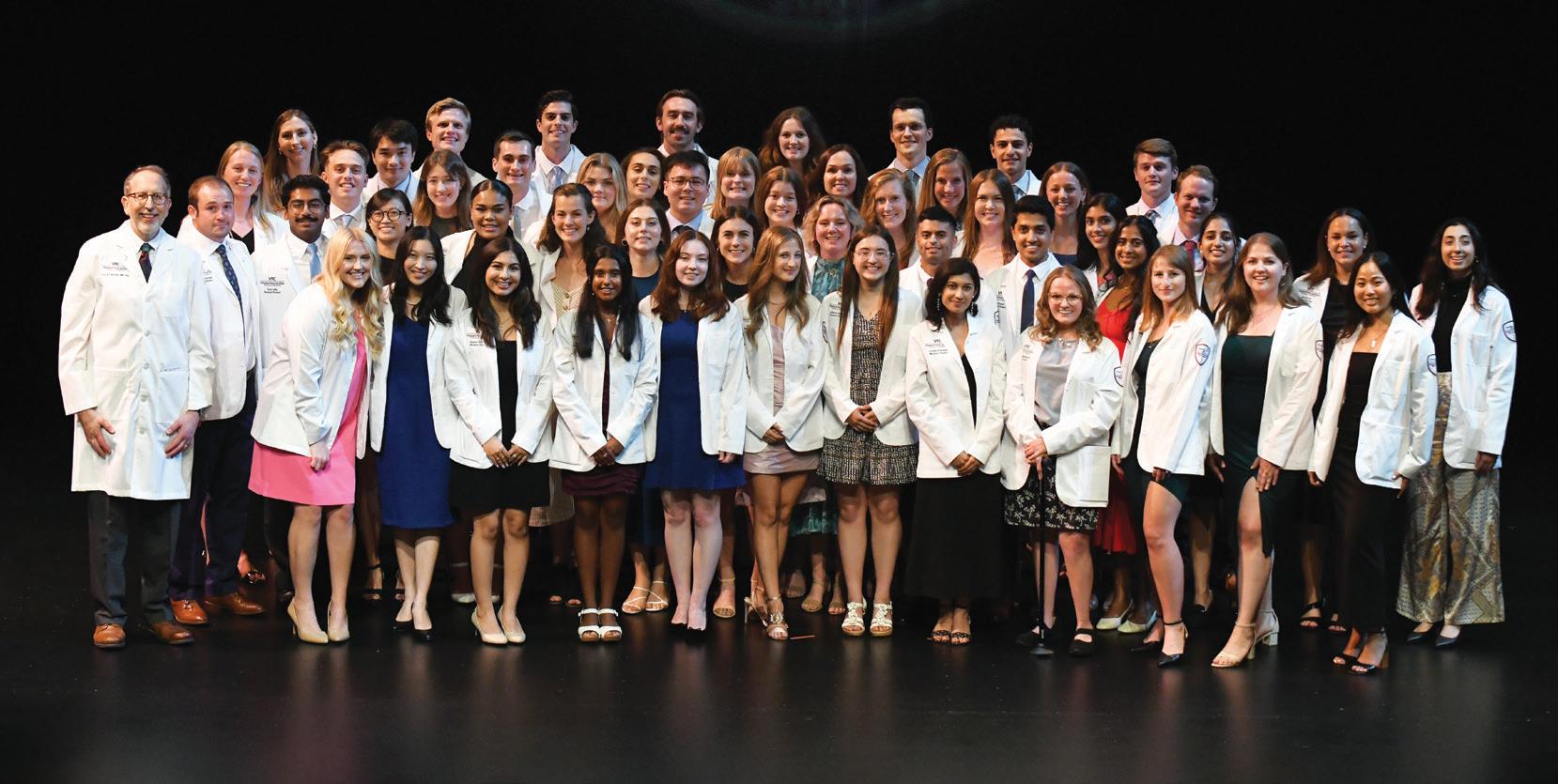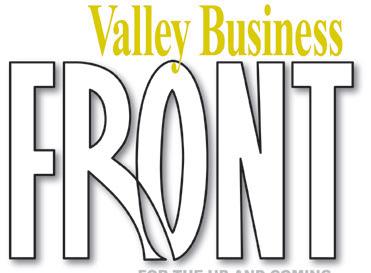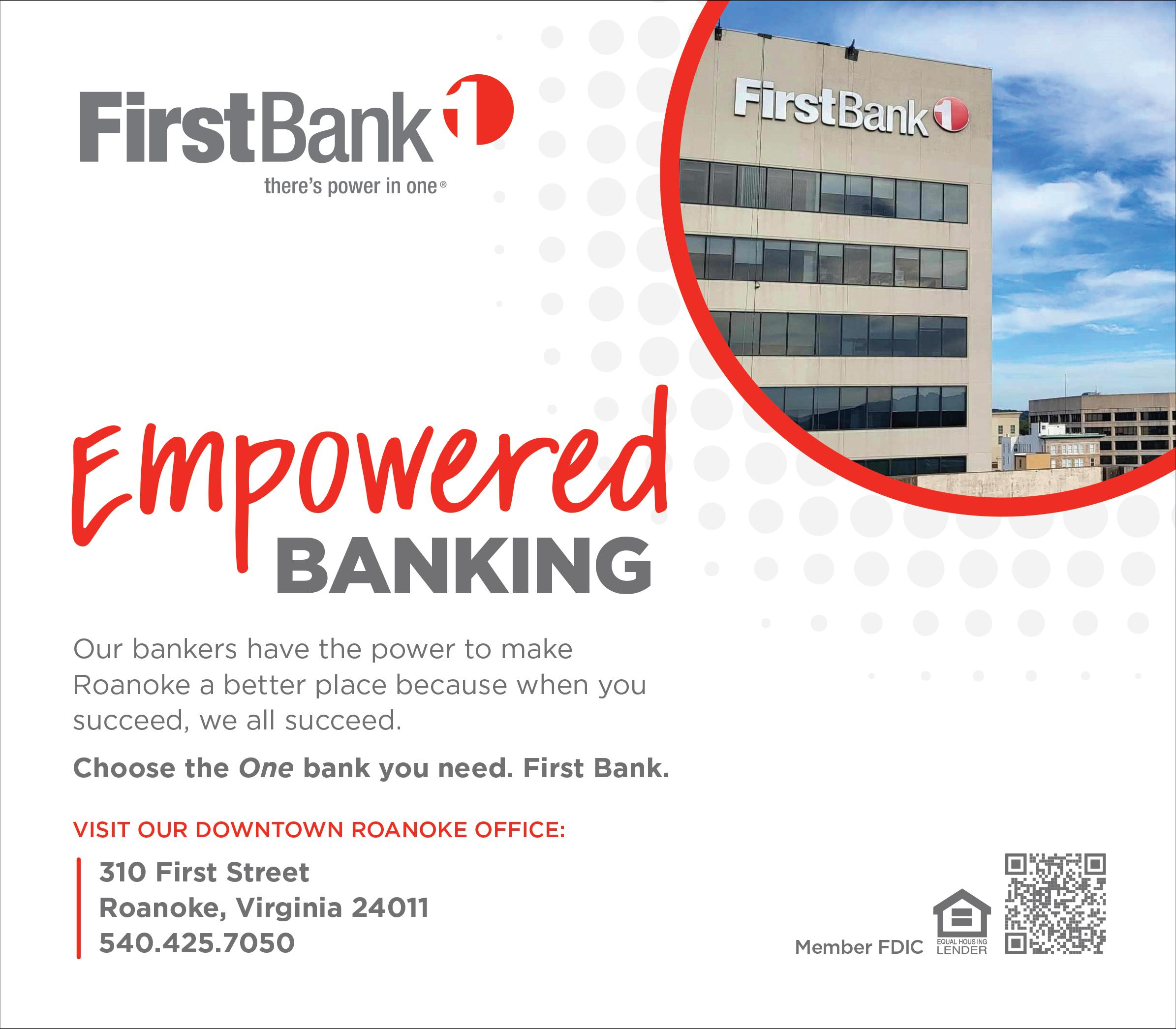




Hop in. Take a ride with us.
First, the road we’re on is Williamson Road. Everybody in Roanoke knows about it. It’s the most eclectic road around—probably in all of Virginia’s Blue Ridge. You’ll meet some small businesses. And interesting people. We’ll also drive by some research and development sites—involving biotherapeutics and bioplastics. There’s the Virginia Tech Carilion School of Medicine, too. We have to show you that expansion. And we might put it in four-wheel-drive when we pull into the Sustainability Center in Catawba. Along our road trip we’ll pass plenty more noteworthy sites—including the international student scene at Roanoke College; we’ll hit the new On RAMP program from the tech sector; oh, and there’s how-to checkpoints for real estate, bereavement leave, transparent leadership, and showing appreciation.
All in all, a good trip in store.
Buckle up. And enjoy the ride.
Tom Field
Gene Marrano Publisher Editor
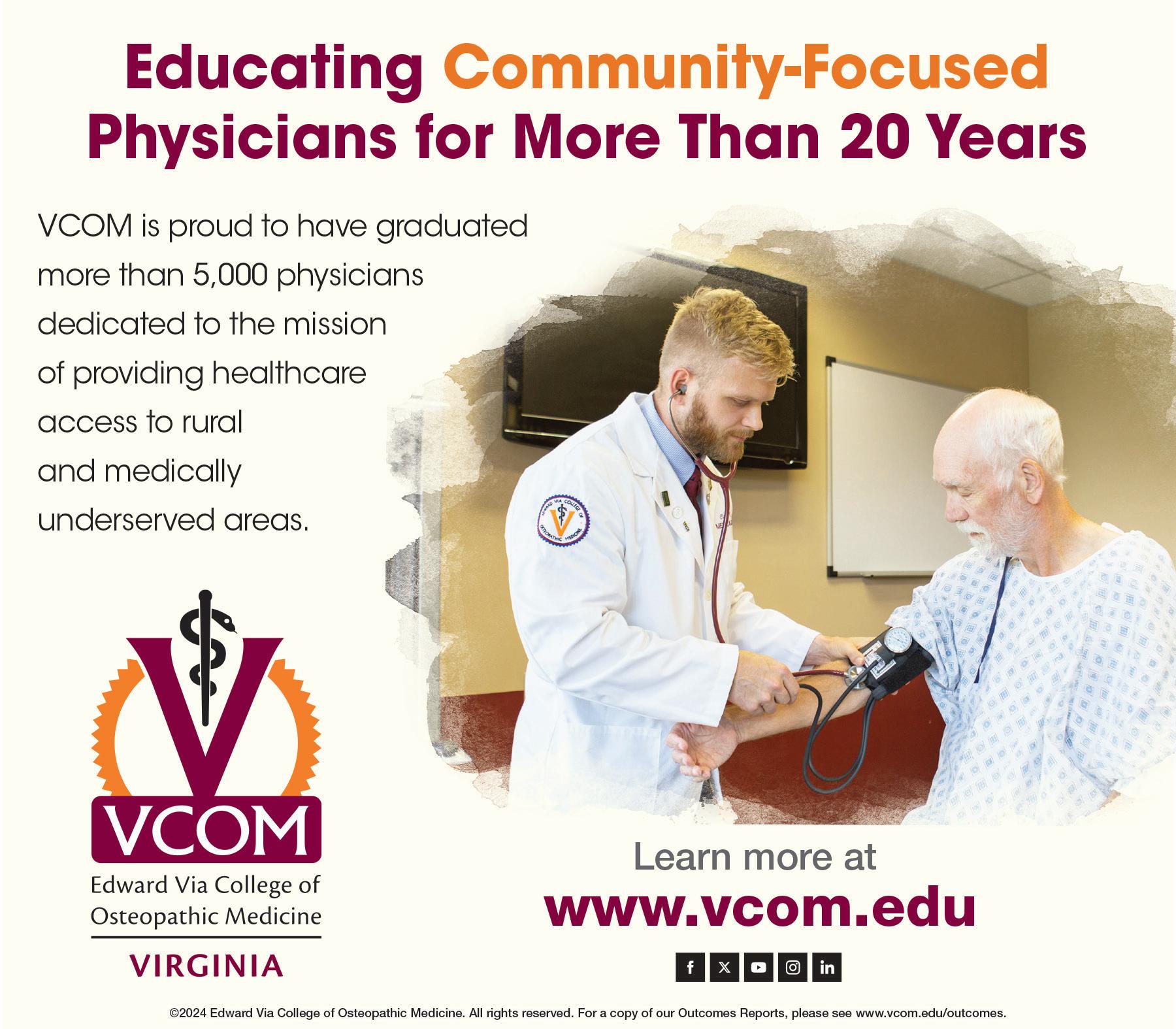

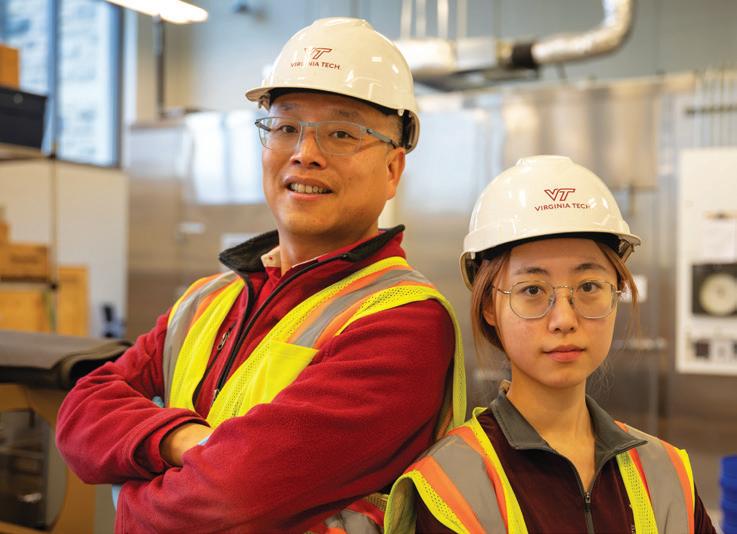
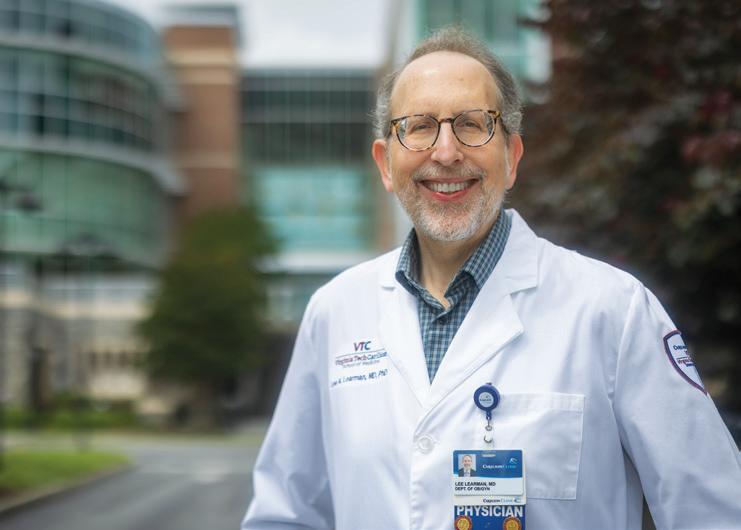

P.O. Box 1041
Salem, VA 24153 (540) 389-9945 www.vbFRONT.com
Publisher / Tom Field
Creative Director tfield@vbFRONT.com (540) 389-9945
Editor Gene Marrano news@vbFRONT.com
Advertising Dan Dowdy (540) 797-7943 ddowdy@vbFRONT.com
ads@vbFRONT.com (540) 389-9945
Graphic Design Nicholas Vaassen nvaassen@berryfield.com
Office Administration Emily Field info@vbFRONT.com
Production Berryfield, Inc. PO Box 1041 Salem, VA 24153 (540) 389-9945
Departmental Contacts
Advertising ads@vbFRONT.com
Subscriptions info@vbFRONT.com
News / Releases news@vbFRONT.com Admin / Ops info@vbFRONT.com (540) 389-9945 vbFRONT.com morefront.blogspot.com
© Copyright 2024; Valley Business FRONT, LLC. All rights reserved. Reproduction or use of this publication in whole or in part without written permission is prohibited. Information within Valley Business FRONT is obtained from sources considered reliable, but cannot be guaranteed. Opinions expressed are not necessarily those of the ownership. Valley Business FRONT is primarily distributed to subscribers by mail, digitally and select locations throughout the Roanoke Valley, New River Valley, and western Virginia.
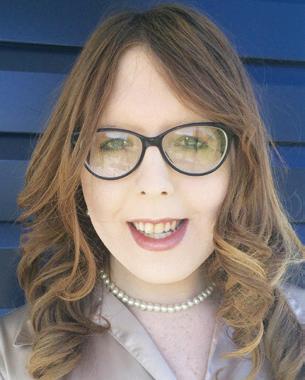
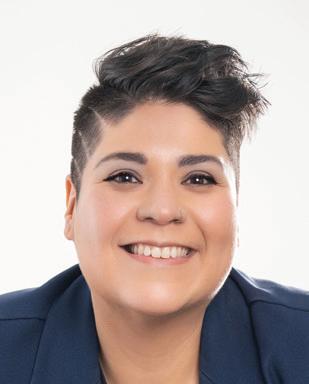
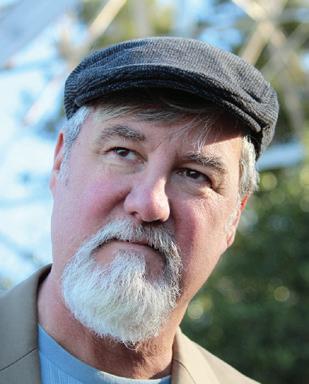

Valley Business FRONT has organized an Advisory Board comprised of a selective group of diverse business professionals who support our mission and have an interest in how our business journal best serves our local communities and region. As a sounding board throughout their term, board members have been given the task of helping FRONT understand the issues and develop coverage. You will note that the Board is comprised of experts in many different business / industry “fronts.” This is intentional, as we are reporting on all the areas that affect our regional economy and are important to you. Although the members are encouraged to keep FRONT updated on their own industries and the key players, they aren’t limited to their area of specialty, as all commercial enterprises ultimately collaborate to impact our quality of life here in this part of Virginia. An additional contribution by the Advisory Board involves direct input on the various FRONTLists we present throughout the year. In keeping with our policy of being “the voice of business in the valleys” we ask each reader to join us as an editorial partner by contacting us with your ideas. You know more than we know about your business—or you certainly should—and that inside knowledge shared with our readers will make us all better at what we do.
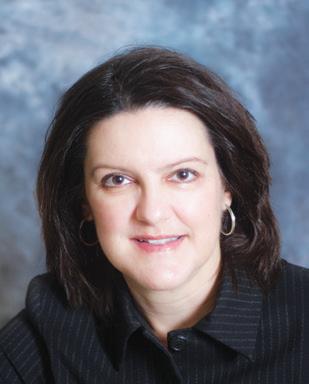
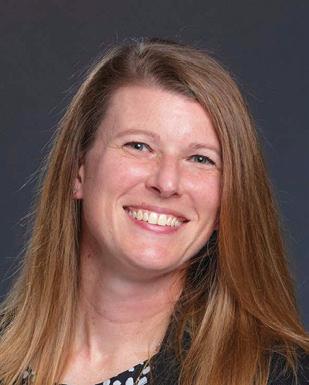
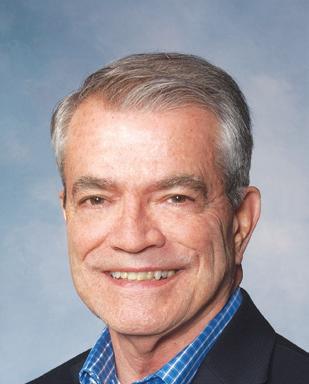
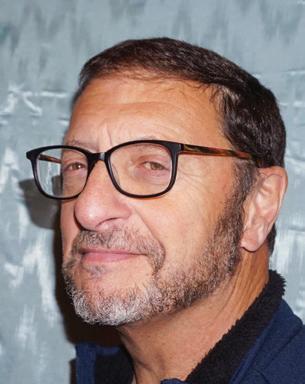

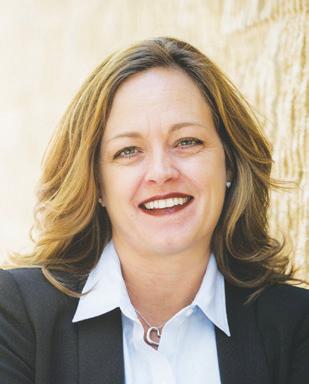
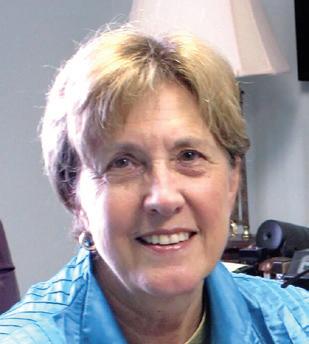
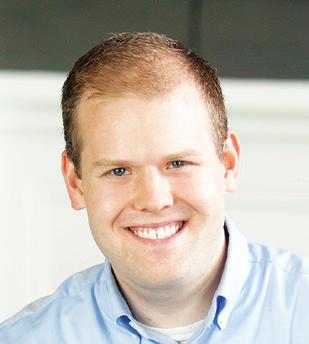
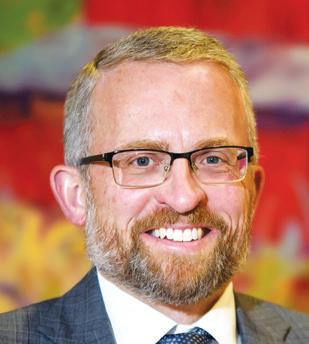
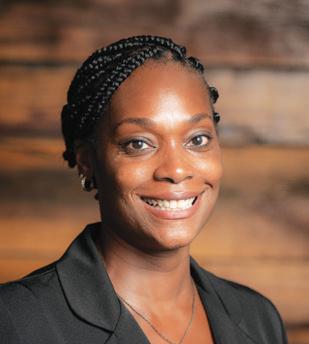

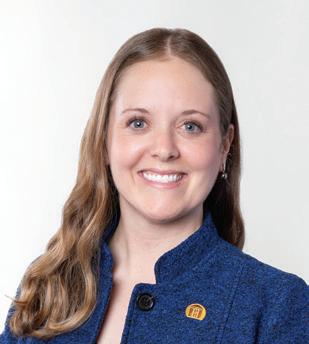
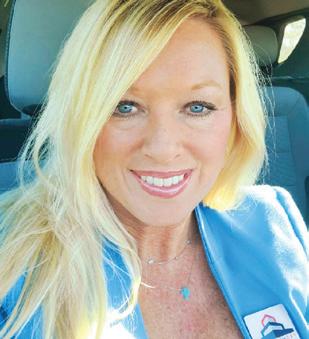

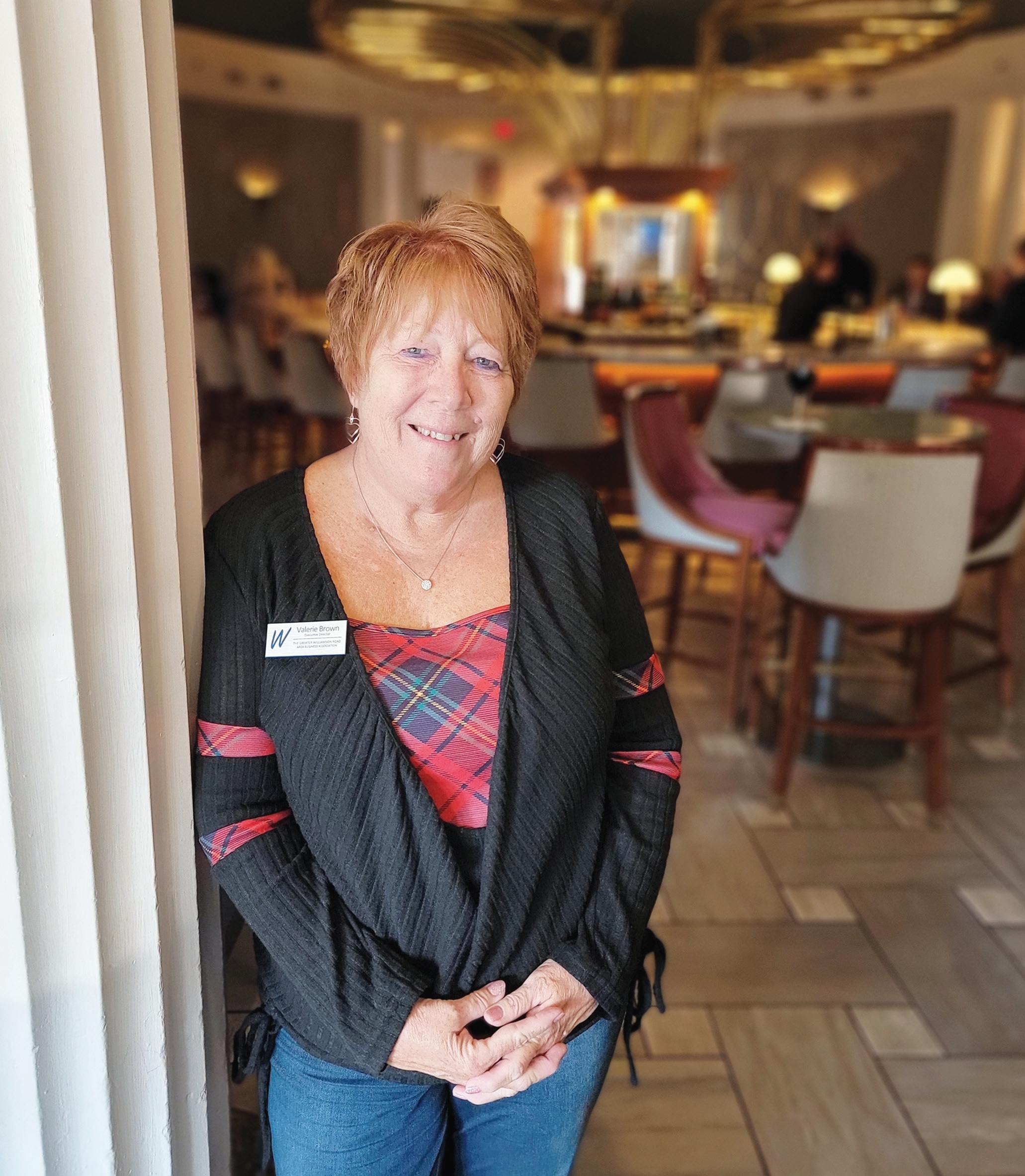
“We are all the better [with immigrant-owned businesses]” Valerie Brown, Greater Williamson Road Area Business Association
Photos and Story by Tom Field
Translation support by Tim Patterson
New York City has its Little Italy. Roanoke City has its—Little Bit of Everything.
And much of it… is along one road.
Five of the seven continents of the world are well-represented on this road (Asia, Africa, North America, South America,
Europe) and that includes at least 50 of the 195 nations.
Williamson Road.
Built in 1912 from an original early 18th century pioneer trail, the roadway’s purpose was to serve as an exit and entry route from the north to Roanoke. It quickly transformed
into a commercial district, populated by restaurants, motels, car dealerships, and other service businesses. In recent decades, it was nicknamed The Strip for several reasons, one being a “cruising” road for car enthusiasts—and most recently, some have coined it Roanoke’s “International Corridor.”
Population-wise, on the multinational front, the Hispanic and Asian communities top the list. Demographic statistics aren’t always in agreement; but the more reliable ones reveal commercial and resident communities comprised of people from El Salvador, Mexico, Haiti, India, Vietnam, Afghanistan, Somalia, Guatemala, Honduras, Nicaragua (to name a few with the highest populations). Of course, many other nationalities are represented, including those from Europe and Africa.
Williamson Road is located in Roanoke City and Roanoke County and extends near to the Botetourt County line. The primary portion where ethnic and culturally diverse businesses are located is in the four-mile section between the southern end near downtown Roanoke at US 460 (Orange Avenue) intersection and the northern end near Brookside (9-Hole golf course).
The great concentration of cultural diversity has become a draw for locals and an attraction for visitors. A ride or walk on that four-mile stretch is a multi-sensory experience, with colors for the eyes, sounds for the ears, and aromas for the nose that aren’t as commonplace in other parts of the city. It’s known that locals often take out-of-town guests to Williamson Road to experience culinary delights that aren’t as prevalent elsewhere.
Williamson Road has its own “chamber of commerce” called the Greater Williamson Road Area Business
10.
4.
Williamson Road in Roanoke, Virginia is about ten miles long. The multinational concentration of commerce, however, is primarily along a four-mile stretch.
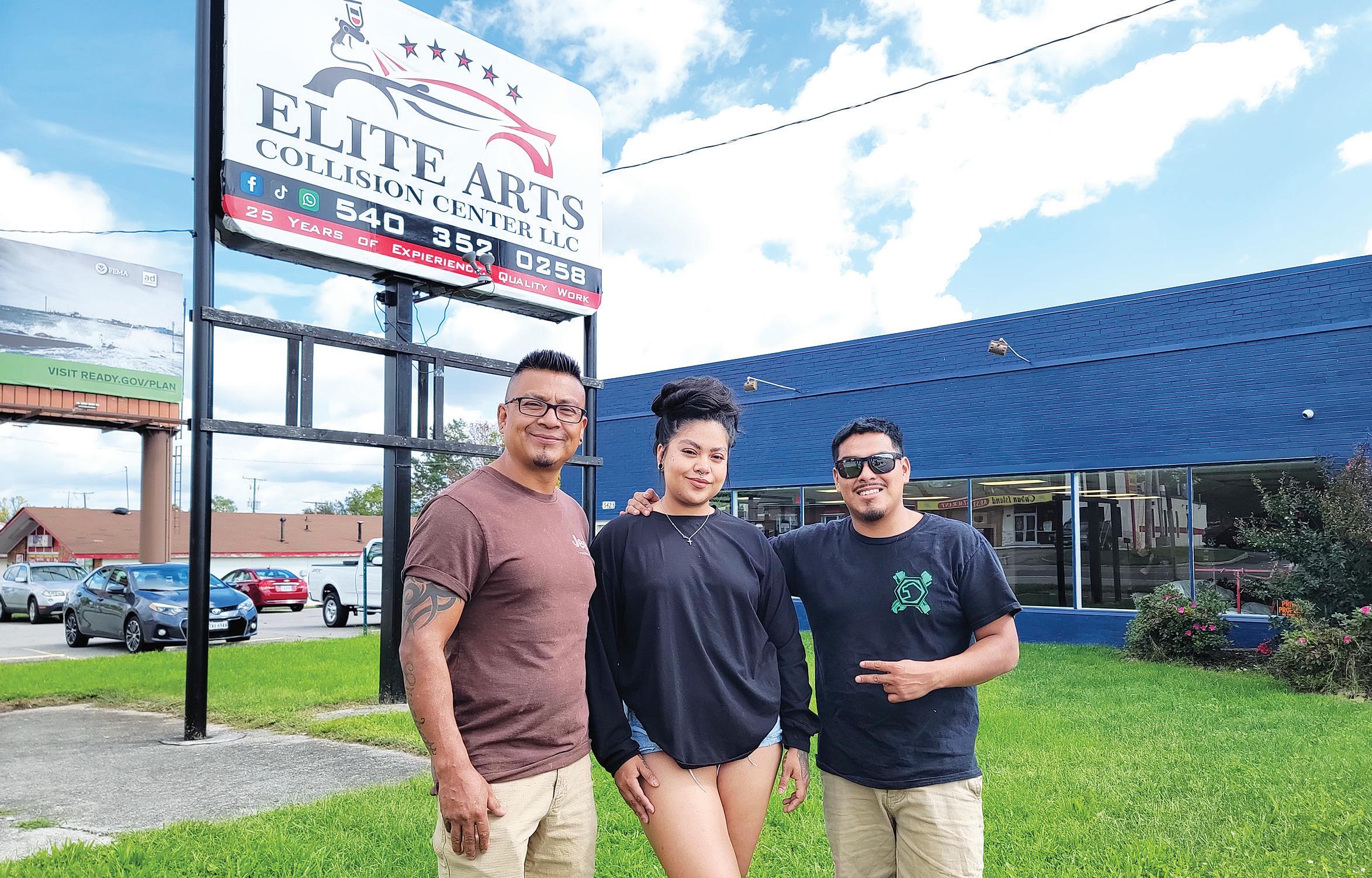

A1 Afghan Restaurant & Grocery
Hussain Ghanizada includes “chef” with his title as “owner” of this unique business. The store is divided into two parts—the grocery and the restaurant. Customers can purchase goods (including food) or dine on the same fresh products, Ghanizada says. He hopes to expand his business with other restaurants and says he is especially familiar with the Aghan families throughout Roanoke.
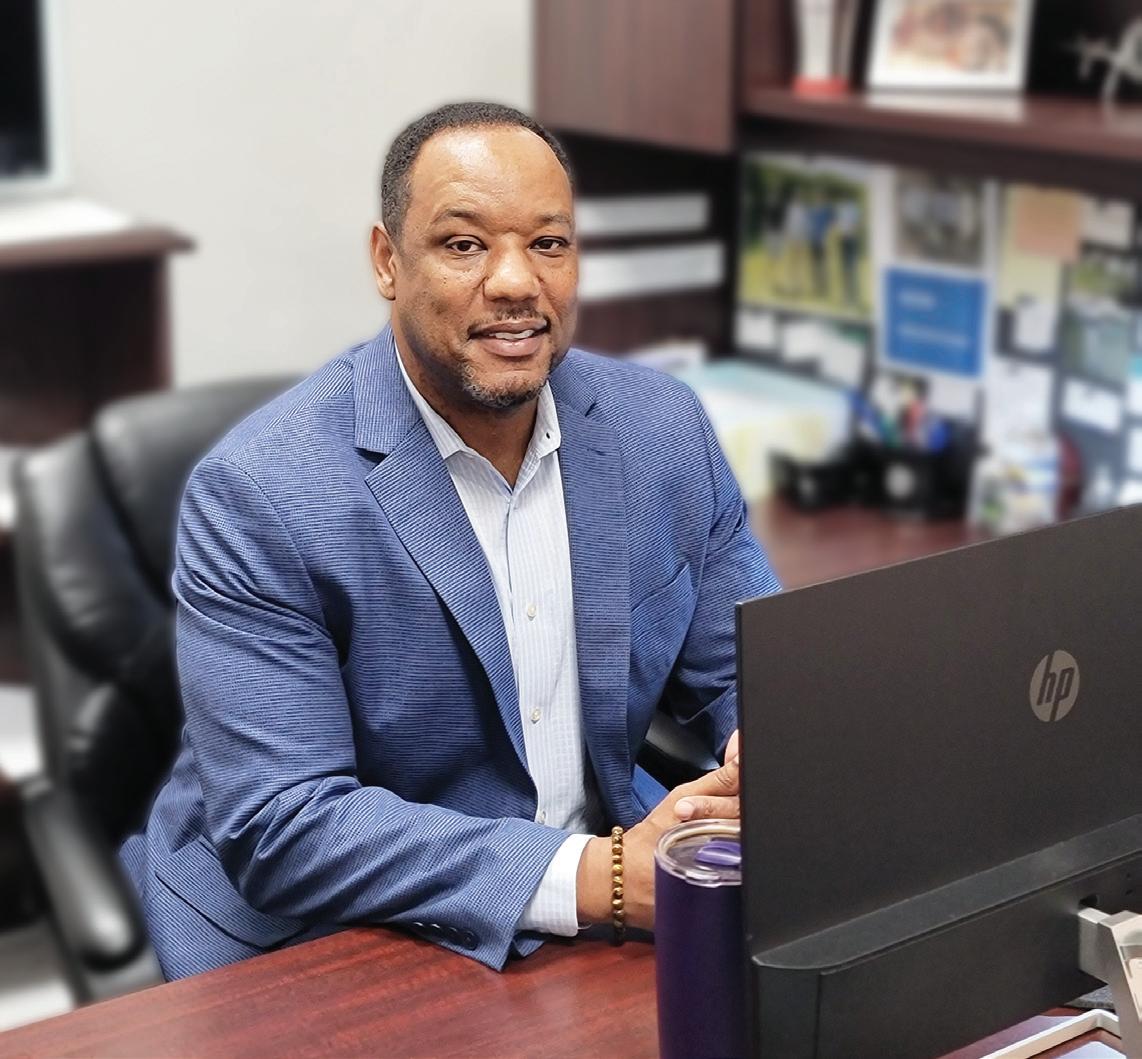
Viet Sub
Khoi (preferring to go by just his first name) runs a Vietnamese restaurant that has fresh selections like banh mi subs and bowls that have become so popular, there’s always a bustling group running in and out of the door, especially around lunch time on business weekdays.
You Show Us
Durmon Coates is “All-American,” but in this multinational showcase lineup because much of his business serves the international communities in the Roanoke area. His office is also located in the GWRABA complex on Williamson Road. Coates says many of the clients for his full-service staffing company (office, administrative, medical, clerical, light industrial) are from Haiti, Cuba, South America—and the Hispanic people represent his largest percentage. You Show Us offers temp-work-to-hire; temp seasonal; direct-hire; and success-supported employment (folks with disabilities). His operations manager is Japanese, Masahiro Aida; and his wife, Mercedes assists with Spanish translation. Three others serve the business: Savannah Wilson, Asher Woods, and Sherri Smith (Martinsville, Rocky Mount).
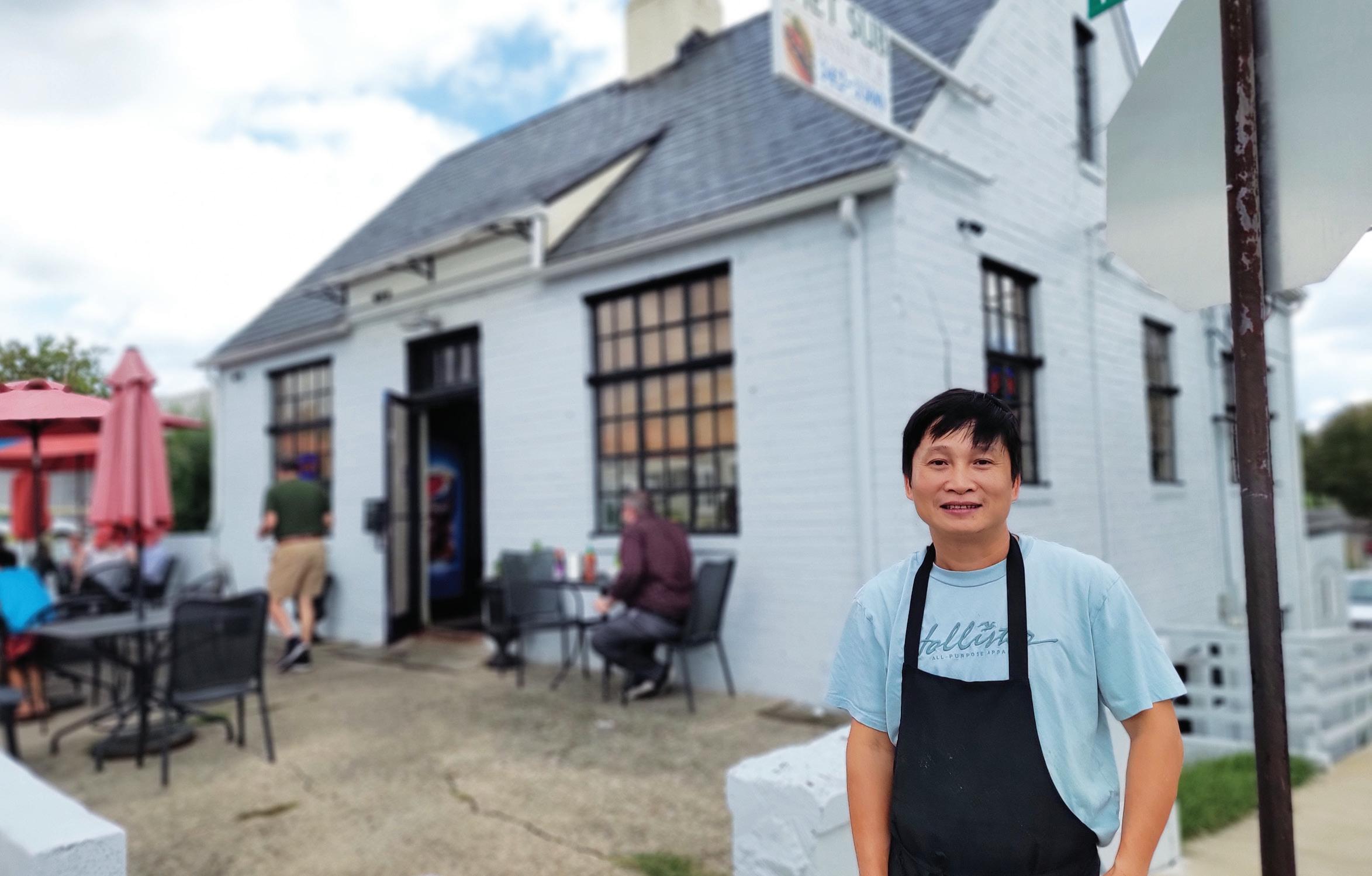
Association. As you can imagine, a significant part of GWRABA is advocating for immigrants—recent and old—who have established businesses here, as well as naturalized citizens, and succeeding generations from other parts of the world, and US citizens who provide products or services to the multinational communities that reside in proximity to Williamson Road or are frequently in the “neighborhood” for business or pleasure.
“I recently came across a statistic from 2010 that said, ‘Immigrants make up eight percent of Virginia’s population in 2000—a stunning 83 percent increase from 1990.’ That’s a staggering statistic,” says Valerie Brown, the director of the GWRABA. “But the statistic continues,” she points out. “As of April 16, 2024, about 12.6 percent of Virginia’s residents are foreign born, which is about one in eight Virginians. That growth is an amazing number for sure! And Williamson Road is all the better for that growth.”
In November, Brown and the GWRABA reintroduces its annual “Passport” campaign, which is an experiential venture where the organization’s members (and anyone) pick up a passport booklet, where they can then have it stamped at businesses they visit, all along the Williamson Road corridor. The campaign has been very popular and successful, too, in advocating for business (particularly small businesses) as it brings together merchants and customers, both new and long-time patrons.
The passport campaign naturally includes the plethora of multinational business entities—thus, the worldtraveling theme.
Brown continues with that mission: “The Greater Williamson Road Area Business Association is probusiness and very much in the forefront of supporting immigrants and what they can bring to this international roadway. Welcoming this international population— whether they be restaurateurs, business owners, or tradesmen and women—invites lucrative and creative innovation into our economy.
In case you’re wondering—from the latest AP Style Guide:
“” Welcoming this international population— whether they be restaurateurs, business owners, or tradesmen and women—invites lucrative and creative innovation into our economy.
Hispanic refers to a person from — or whose ancestors were from — a Spanish-speaking land or culture.
Latino is often the preferred noun or adjective for a person from, or whose ancestors were from, a Spanish-speaking land or culture or from Latin America. Latina is the feminine form.
Latinx is a gender-neutral term, which should be confined to quotations, names of organizations or descriptions of individuals who request it and should be accompanied by a short explanation.








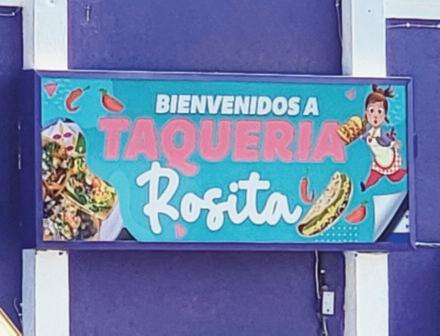

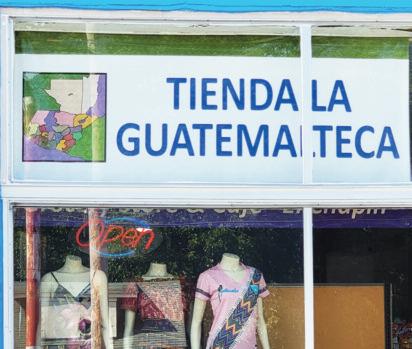
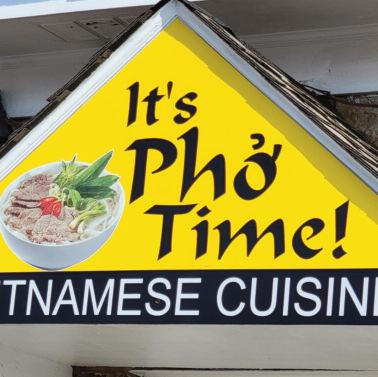
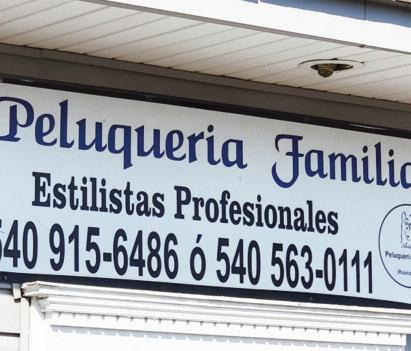


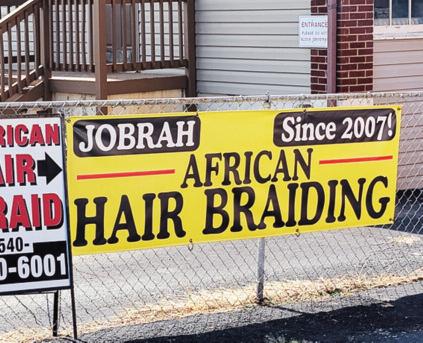



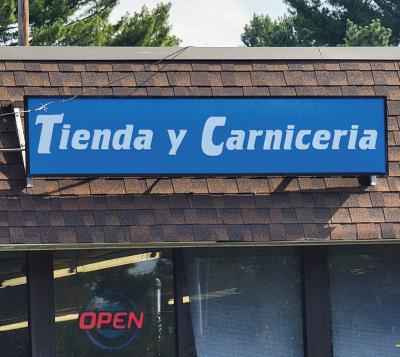

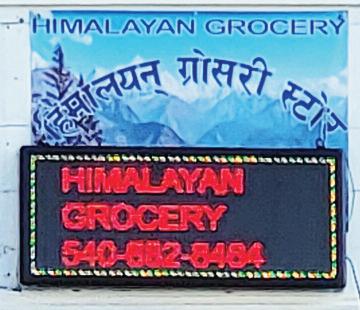



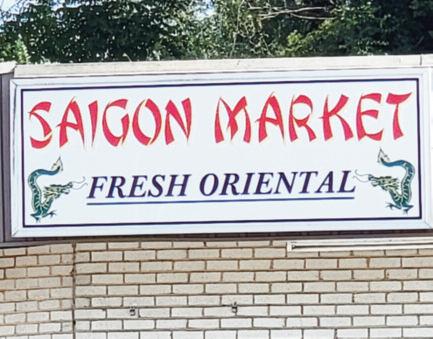

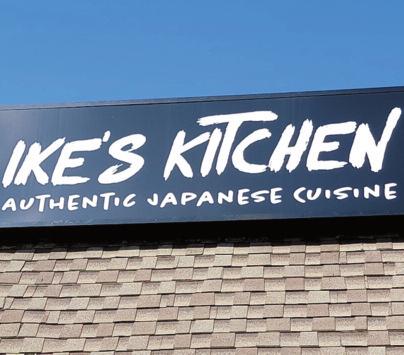

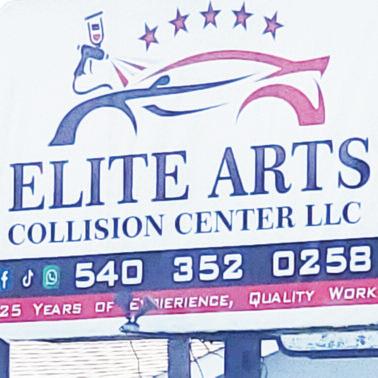
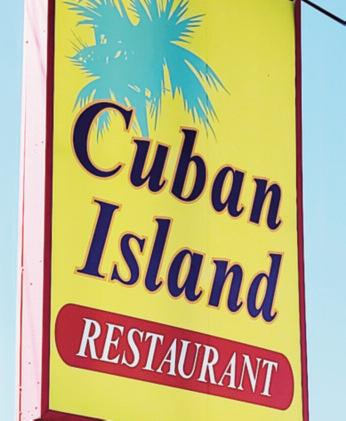



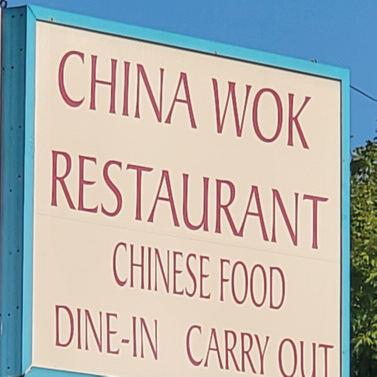



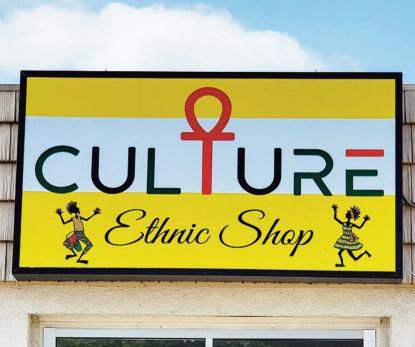

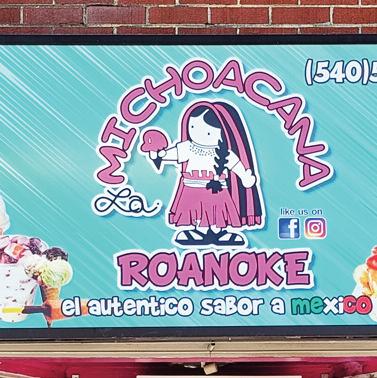





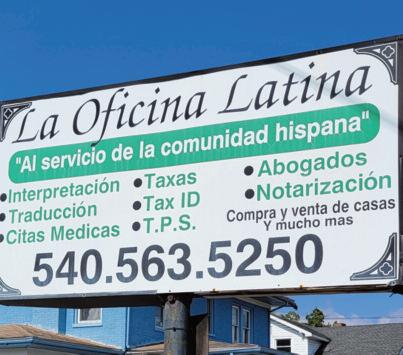




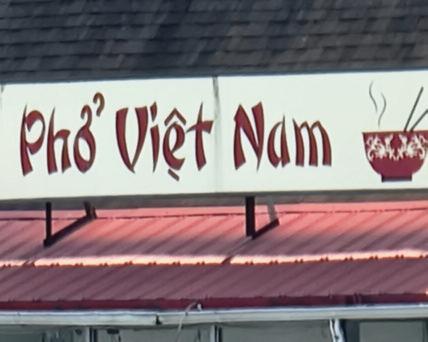
Ochoa’s Hair Salon
Neiser (shown) stays busy as a barber at Ochoa’s Hair Salon, owned by Jose Ochoa; where haircuts and trims are performed in a large, open space. The patrons are particular, who know what they like and how they want to be served by their choice barber who can best relate.

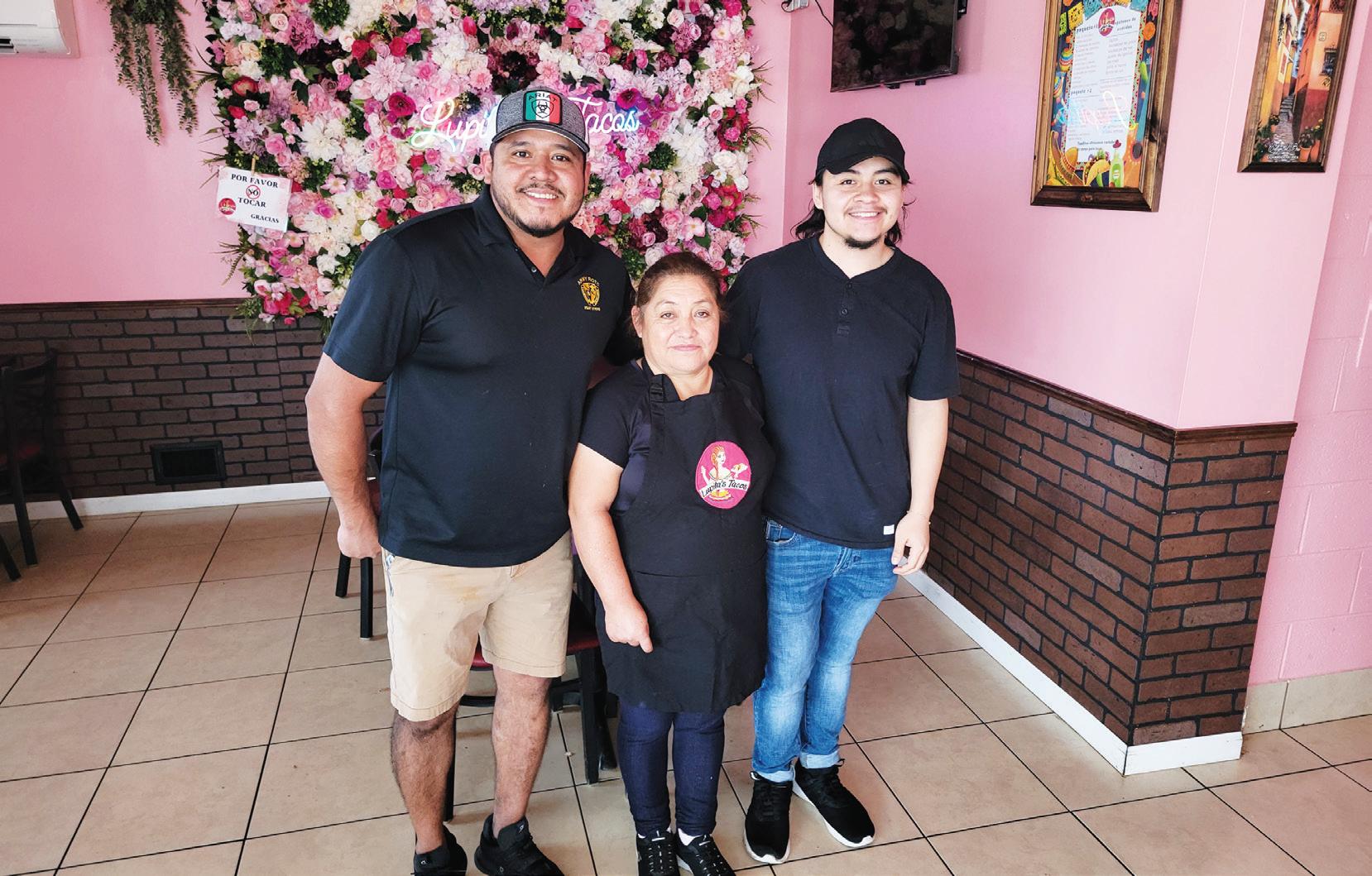
Lupita’s Tacos
Maria Guadalupe Arellano owns and operates Lupita’s Tacos, which wordon-the-street says has some of the best auténtico Mexican food around. This restaurant is easy to spot, with streetside diner-like windows and bold colors, including pink… lots of pink.
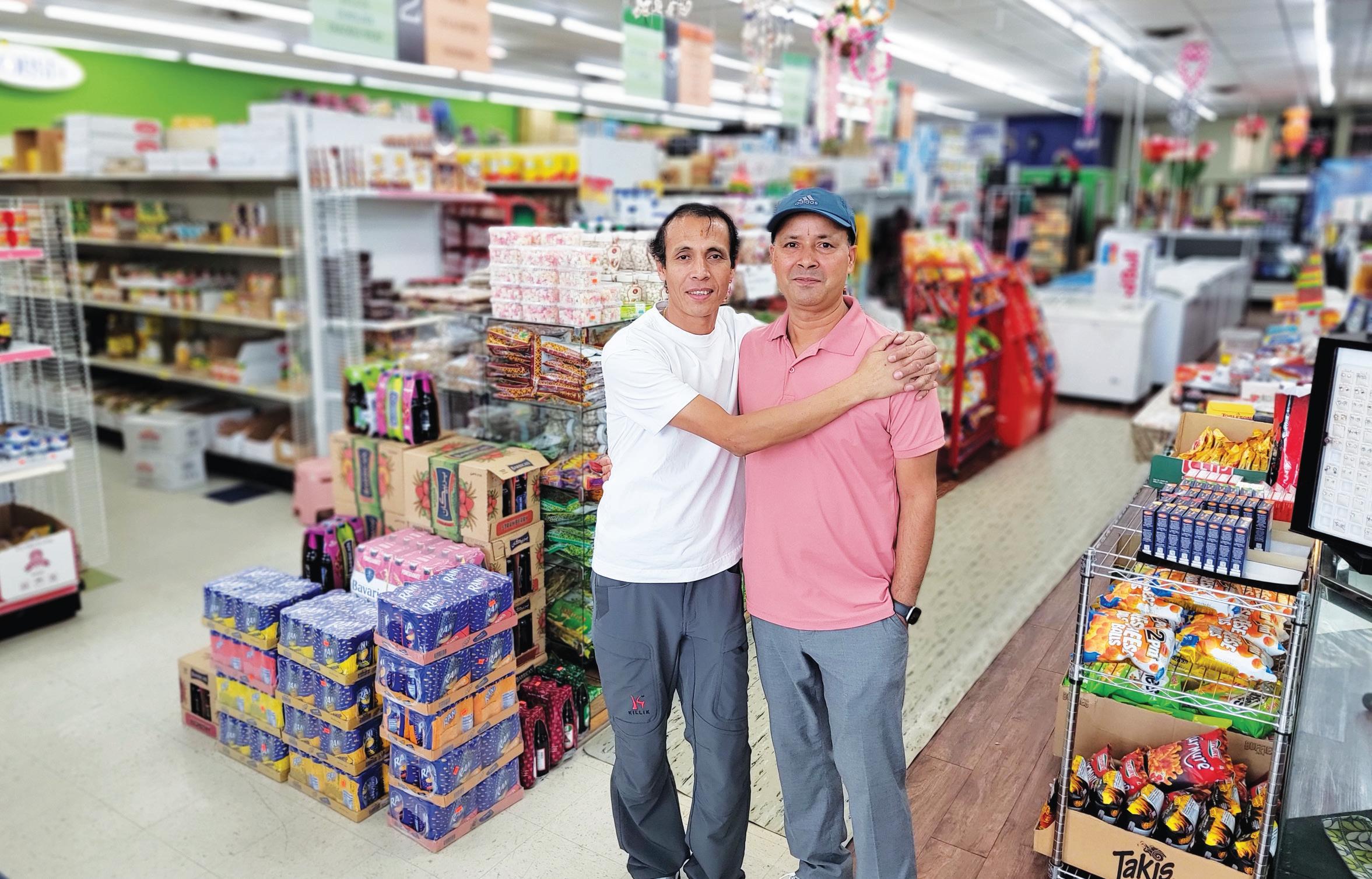
Asian-African-Middle Eastern Grocery
That’s the signage on the building, and the sign outside simply declares Asian Grocery & Halal Food. Both are straightforward descriptions; while inside, the diversity indeed jumps off the shelves. Owner Bhuwani Neopaney (right) and manager Krishna Wagley take pride in their shop and merchandise, that they say has been in place since 2011.
Williamson Road is in the enviable position to take advantage of the infusion and insight that employees and business owners from different cultures can bring.”
Brown cites a report that “cities who welcome immigrants have higher incomes, less poverty and unemployment, and greater educational attainment.”
Other organizations in Roanoke—such as the Local Colors (recreational and festival operator) and Blue Ridge Literacy—would concur that ethnic diversity positively contributes to Roanoke’s quality of life.
“Immigrant-owned businesses help to expose us to sights and tastes from around the world and demonstrate what hard work and adventurism can get one in this country as a whole, and the Roanoke area in particular. This is important for American entrepreneurism as well,” says Brown.
“Plain and simple, immigrant owned businesses are vital to the culture and quality of life. And for this, Roanoke—and in particular the greater Williamson Road area—are grateful; and it bears repeating that we are all the better for that presence.”

Diacritics: are small marks written above, below, or on top of letters to indicate something about their pronunciation, namely “accents.” They usually indicate a phonetic value different from the word in the language presented.
Due to some typesetting limitations and incomplete translation, it is likely we did not apply all the correct diacritics in this report on multinational businesses. Here are some diacritics used in other languages:
• Spanish: Uses acute marks over a, e, i, o, and u, a tilde over n, and an umlaut over u. The tilde over n indicates a blend of the sounds of "n" and "y".
• French: Uses a diaeresis/umlaut (ë) to indicate that a vowel is pronounced as a separate syllable.
• Romanian: Uses ă, â, î, ș, and ț.
• Turkish: Uses an alif breve over g, a cedilla over c and s, a circumflex over a, I, and u, a circumflex Turkish i (î), a dot above over I, and an umlaut over o and u.
“” Immigrant-owned businesses... demonstrate what hard work and adventurism can get one in this country...
• Swedish: Uses a circle above (angstrom) over a, and an umlaut over a and o.
• Portuguese: Uses a tilde over a or o to indicate nasality in pronunciation.
• Faroese: Uses acutes and some additional letters, including (á), (í), (ó), (ú), (ý), and (ø).
• Icelandic: Uses acutes and other additional letters, including {{angbrZá}}, (é), (í), (ó), (ú), (ý), and (ö).
• Danish and Norwegian: Use additional characters like the o-slash (ø) and the a-overring (å).
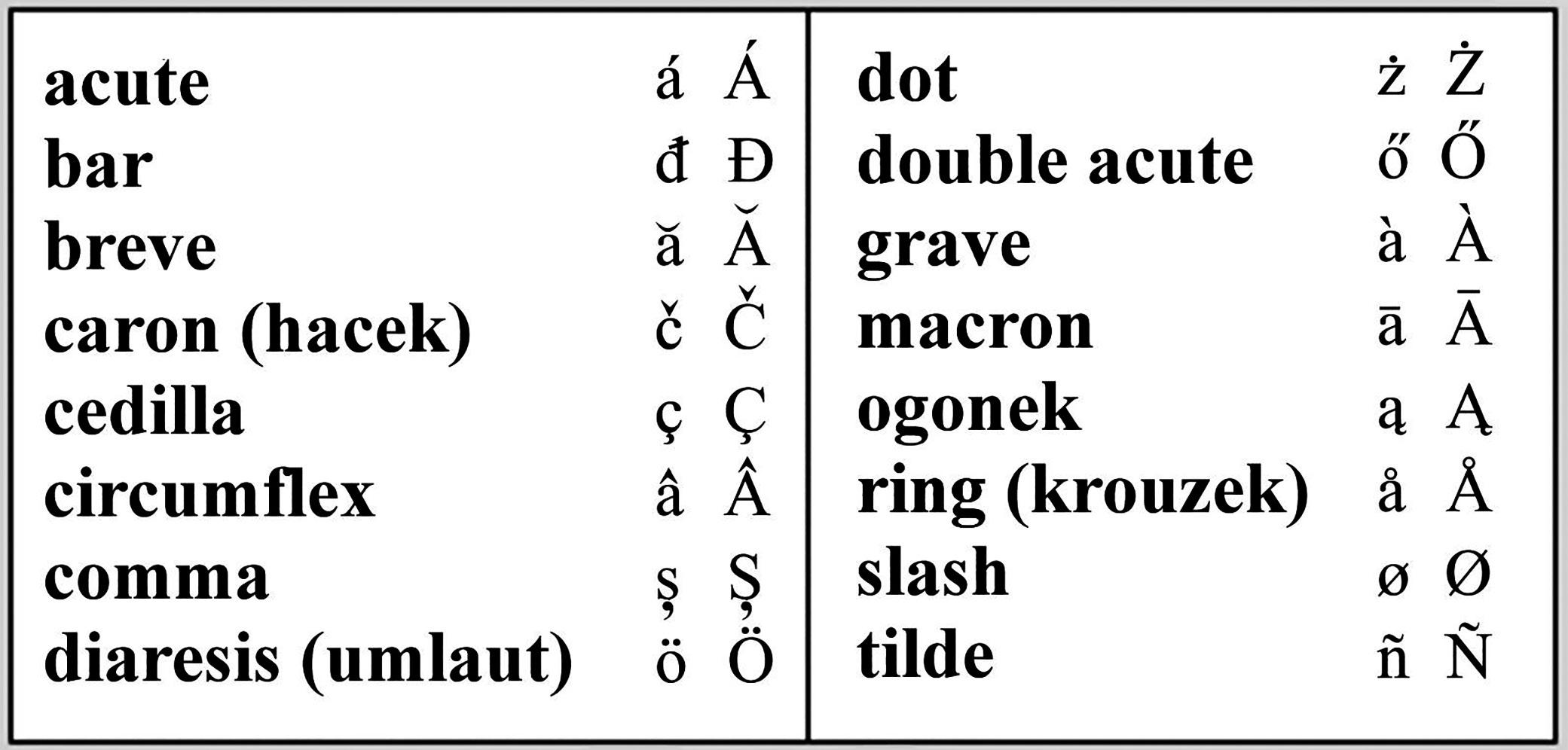

By Jennifer Poff Cooper
“There is significant value in studying the immune system,” said Dr. Josep Bassaganya-Riera. That is the common theme of the “scientific innovation ecosystem” he has created in Blacksburg.
From 2017-2021, Josep Bassaganya-Riera built Landos Biopharma from the ground up. In what he called “quite an accomplishment for my team,” it was acquired by pharmaceutical giant AbbVie. Bassaganya- Riera is now the Executive Chairman, President, and CEO of BioTherapeutics, Inc. (BTI), and holds the same titles for NImmune Biopharma, Inc. He founded both of those Blacksburgbased companies as well.
Bassaganya-Riera explained that there is synergy among the companies in the ecosystem. BTI handles the initial stages of drug development, while NImmune is a pharmaceutical company that conducts clinical trials and brings the drugs to market. The idea is to leverage the capabilities that each entity does best to gain efficiency and maximize performance. “The success of one company reverberates in them all,” said Bassaganya-Riera.
Recently, BTI was awarded $355,935 by the
National Institutes of Health (NIH) for lung disease research as it relates to asthma. “This grant for $355,935 helps Biotherapeutics identify and study potential asthma treatments,” said Congressman Morgan Griffith, who represents Blacksburg as part of his sprawling Congressional District. BassaganyaRiera said the conditions exist to make this research successful. According to the American Lung Association, more than twenty-five million Americans live with asthma. BTI will have the potential to reach a market for asthma therapeutics which will be $32 billion by 2029.
This grant is designed to support safer and more effective therapeutics to address asthma. Bassaganya-Riera was pleased that the NIH recognized the value of BTI’s research, as NIH funding is an extremely competitive process. He said applications are reviewed by a panel of twenty or thirty highly qualified researchers and medical personnel. Criteria include significance of
the research, the novelty of the scientific approach, the scientific capabilities of the investigative team, the institutional environment, and the chance for a favorable impact for patients.
The asthma grant is “one facet” in the ecosystem’s larger pipeline of inflammation and immunology treatments, said BassaganyaRiera.
Originally from Barcelona, Spain, BassaganyaRiera has a background in immunology and has been conducting research for over twenty years. He was at one time a professor at Virginia Tech, and he licensed several patents from the school. He said the university played a “very important role in the ecosystem.”
Under President Charles Steger, Virginia Tech’s research went from $100 million to $500 million, which was key in advancing the university’s research agenda. BassaganyaRiera realized the university was well set up for addressing fundamental research, but not for product development and practical applications. So, he channeled his development efforts into the private sector. In 2020, Bassaganya-Riera said, his external activities became significant enough that he needed to leave his professorship and focus on his own entrepreneurial endeavors on a full-time basis. His companies’ relationship with Virginia Tech continues through their presence in the Corporate Research Center, where the university leases “outstanding research facilities,” he said.
Bassaganya-Riera’s companies support “active innovation in drug development,” and have addressed clinical needs of patients with inflammatory and autoimmune diseases from ulcerative colitis and Crohn’s Disease, to systemic lupus erythematosus
and rheumatoid arthritis, to diabetes to, now, asthma.
“I like to focus on scientific questions that help solve problems,” said Bassaganya-Riera.
He said that twenty years ago, immunology research was trial and error, which was inefficient and slow moving. Today, sophisticated models exist to predict immune response before drugs are even synthesized in the lab. AI (artificial intelligence) and advanced computational models enable scientists to make predictions to shorten the path of drug development and reduce costs.
Bassaganya-Riera explained there are two paths available for getting drugs to market. The harder path is to go through the regulatory approval process and then begin commercializing; investing in an in-house sales team costs $150-200 million. The other path is to seek either a strategic alliance with a Big Pharma company or a merger and acquisition.
His companies’ drugs are not at the stage of commercializing, said Bassaganya-Riera, but he is confident in their prospects. At that time, he will decide which path is best for the company, the patients, and shareholders.
“I like optionality,” he said.
Bassaganya-Riera views the Food and Drug Administration (FDA) as a “helpful agency” and a partner in the process.
“The FDA is a very important part of drug development for the biotech puzzle,” he said. Bassaganya-Riera described the process. The first interaction with the FDA is about what kind of animal studies will move


the product from development to clinical testing. Companies receive feedback, then execute the recommended studies and send data to the FDA, which reviews it. If the product looks safe, it is allowed to move to clinical testing. This progression is repeated for phases one through three of clinical development.
“Challenges are there to be tackled,” said Bassaganya-Riera. His have included regulatory hurdles and hiring the right personnel. Another was “having the will to convince people of the course that was set” in terms of his companies’ location in Blacksburg. For some in the scientific or business communities, southwest Virginia was an outlier. But after conducting a cost/benefit analysis, BassaganyaRiera found there was no justification for moving outside of Virginia.
Bassaganya-Riera is excited about the future.
Companies are taking approaches in drug development that more resemble engineering processes, making sure all pieces of the puzzle work well in computer simulations early on using AI algorithms and computational models.
“This has the potential to transform and accelerate drug development,” he said.
NImmune Biopharma has promising developments in phase three clinical trials, one being an efficacious drug that is ahead of any other drug for ulcerative colitis. Bassaganya-Riera also mentioned a pipeline of therapeutics to address other indications such as lupus and the aforementioned asthma.
Bassaganya-Riera said, “Anything we can do to make the lives of patients easier, we are going to do it.”




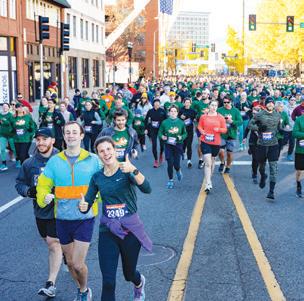

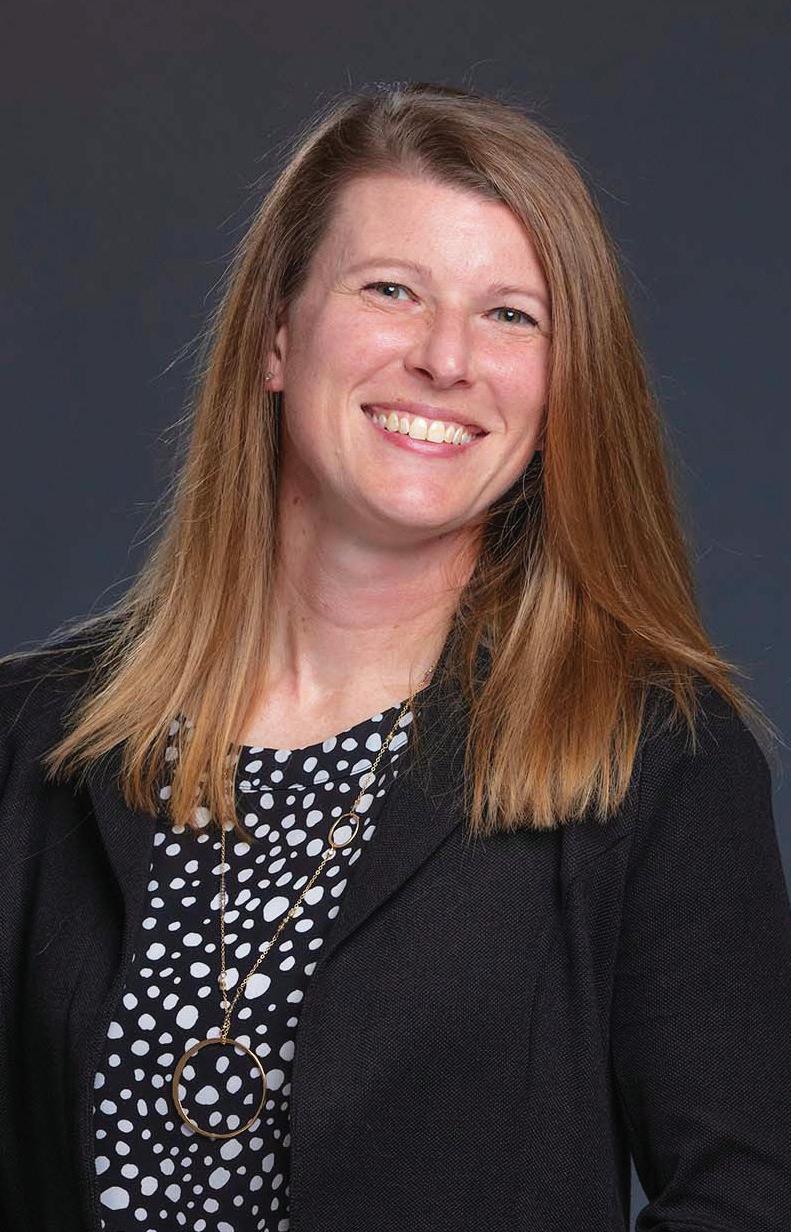
By Carrie Cousins
Executive Summary: Fall leaves, fireplaces, and football always lead me into another season – one of thanks and gratefulness. That feeling is especially strong this year and it’s heartwarming to see all of our neighbors helping those in communities very much like ours recover from the unimaginable.
The feelings of gratefulness spill over to marketing and advertising; this is the perfect time to say “thanks” to customers, clients, and colleagues. But sometimes a thanks can get tricky. Don’t overthink it. Don’t feel like you must connect it to an event. Don’t try to sell on top of sharing gratitude. Just say “Thank you.”
While it might look a little different depending on the size of your business, consider some of these activities to wrap of this season.
• Start with a handwritten note: There are few things that impress me in the way a handwritten – not email –note does. You don’t even have to say a lot, but write something, put a stamp on it, and send it. Not only does this show a next level of thanks, but it better humanizes your connection with the recipient.
• Send a gift early: While corporate gifts will be at an all-time high by the end of the year, an earlier than expected token of appreciation will stand out and be remembered. An off-schedule gift feels more thoughtful than obligatory. One of my colleagues sends Halloween cards rather than Christmas cards each year and it is one of the highlights of the season. I always remember it, and it never gets lost in the sea of other cards.
• Be specific in your thanks: Personalize your thank you with something the recipient knows is just for them. A local retailer used to send a thank you card with a gift card inside for its top percentage of customers each year. When I got one, it was an honor to be on that list. The acknowledgement that they knew I was supporting a local company meant a lot to me and made me even more loyal to their business.
• Share your personality: Business thank yous can be tough. Yes, you can buy a box of cards, but you can level up with a personalized card. Consider a thank you photo that shows your team, a piece of art that highlights your culture, anything that goes from a simple thank you to something that showcases your brand personality. A recent holiday card from LeadPoint Digital featured custom artwork from a member of our team with customized “thumbprint” reindeer for team members. This little touch added something extra by humanizing the relationship of the person who got the card to the team who has their back for their marketing needs.
• Be authentic: It kind of goes without saying, but I’m going to do it anyway. A thank you has to come from the heart. Be true and authentic, it works every time.
To that end, I’d like to thank all of you for reading this column this year. The unexpected comments and feedback have been phenomenal, and I hope some little nugget here has helped you in your marketing efforts.

An off-schedule gift feels more thoughtful than obligatory. [Little touches add] something extra...
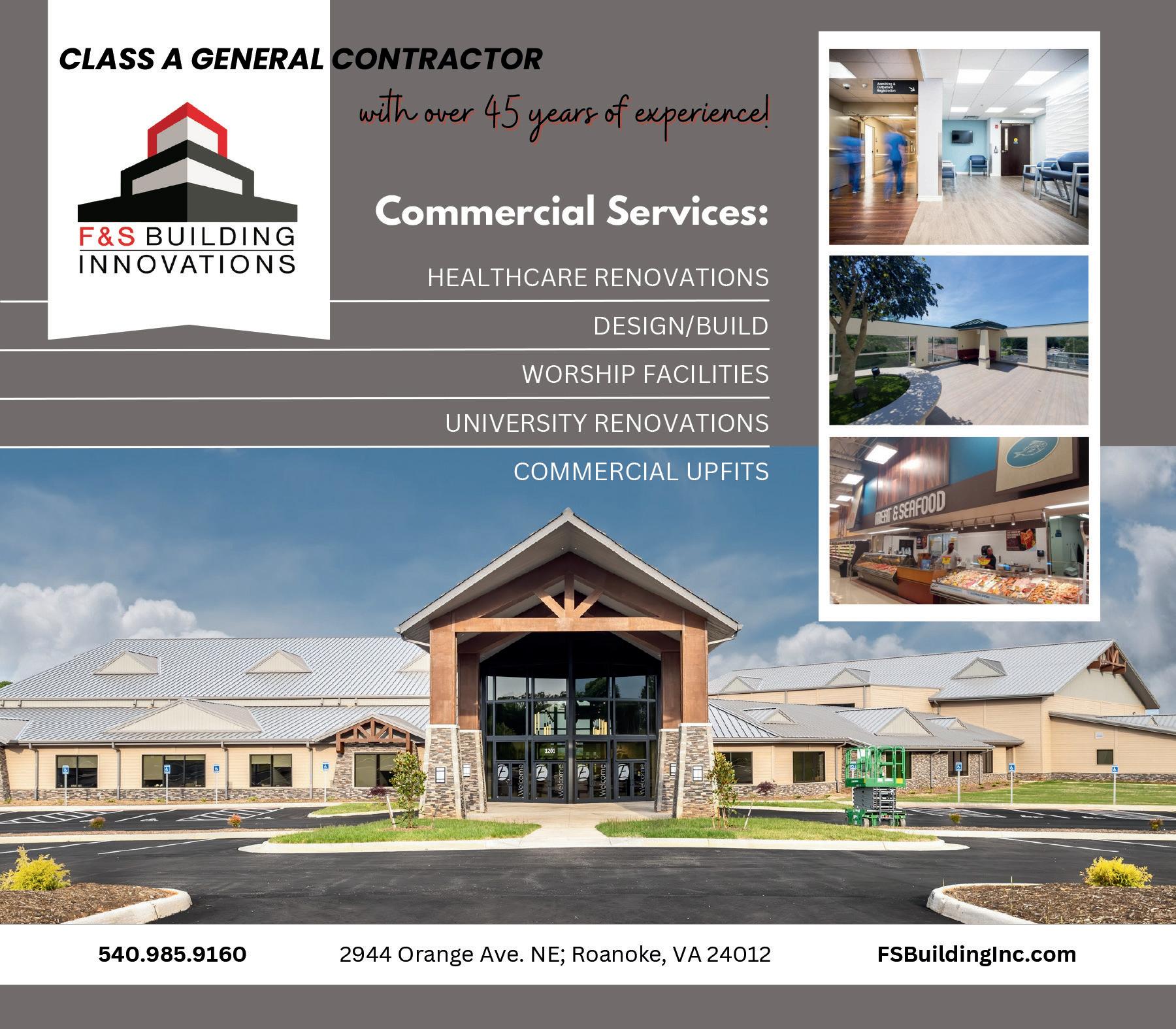
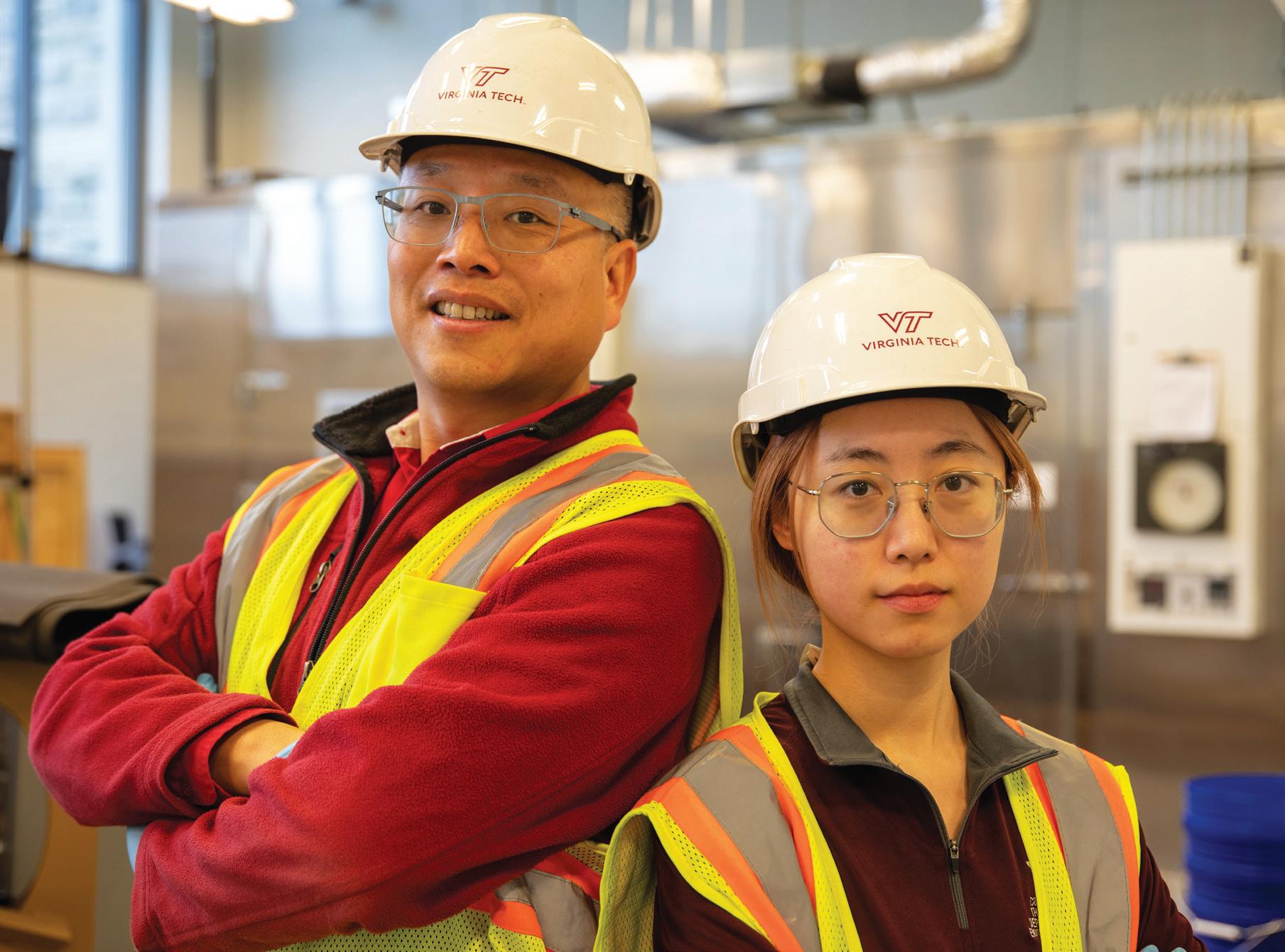
By Jennifer Poff Cooper
A shocking 30-40% of food produced is wasted. Most of that waste goes to landfills, where it will pollute groundwater. Economics losses associated with food waste total $165 billion per year. But Dr. Zhiwu “Drew” Wang is trying to change all of that.
Wang, an associate professor in the Department of Biological Systems Engineering at Virginia Tech, wants to convert food waste into something valuable. His training in environmental engineering prompted him to ponder food waste pollution and plastics pollution. “The two problems go hand in hand,” Wang said. “So, I started to think, is there an approach that addresses both?”
This led him to the technology he is developing now: creating bioplastics from food waste diverted from landfills. Bioplastics are plastic materials, such as compostable packaging, produced from renewable biomass sources. Their
advantages over traditional petroleum plastics are their tiny carbon footprint and renewability, meaning that waste will disappear in the environment. In other words, “our plastic is better in terms of sustainability,” said Wang.
One reason these environmentally sustainable plastics are valuable to companies is they contribute to a better public image by lowering the company’s carbon footprint. To that end, Wang’s team is “branding our bioplastic as a ‘true green’ bioplastic.”
Current bioplastics made of human food cannot compete with cheaper petroleum plastics in the short term.
Key to profitability, said Wang, is the cost of raw material used to produce the final product. That means switching the raw material, or feed stock, from food to food waste in this unique industry where a substantial 50% of product cost is from feed stock.
Bioplastics are new, whereas the petroleum plastics industry is fully commercialized with mature technology. In the long term, Wang said, the emerging bioplastics industry needs help from regulations or tax policy to compete. Also, “all production has to do with scale,” so potential for mass production or scalability is important in determining profitability. Said Wang, “The larger the site, the larger the profits become.”
To turn this research into a commercially viable product, the first step is to do a techno-economic analysis (TEA). A TEA uses real-world data to produce a calculation of profitability. Then follow the studies. At this point, Wang’s research is at the pilot scale study stage, which is not preliminary but neither is it close to a full-scale study. He is hopeful this work will come to fruition in the “near future.”
Wang emphasized that researchers working with industry is critical to the success of commercialization. Currently, there are private companies interested in Wang’s technology. They could either buy license to the technology or become partners in the technology development. By coming in earlier in the process, a company would assume more risk.
One interested party is a traditional petroleum company that wants to add bioplastics to its portfolio, and another is an agricultural products company that produces a lot of waste as it makes different products from agricultural materials, like crops, and that would like to “look better” by producing less waste.
Wang’s applied research has been funded by a $2.4 million grant from the United States Department of Agriculture. He feels his project received the grant for two reasons. One is structure. Few universities do pilot scale studies to
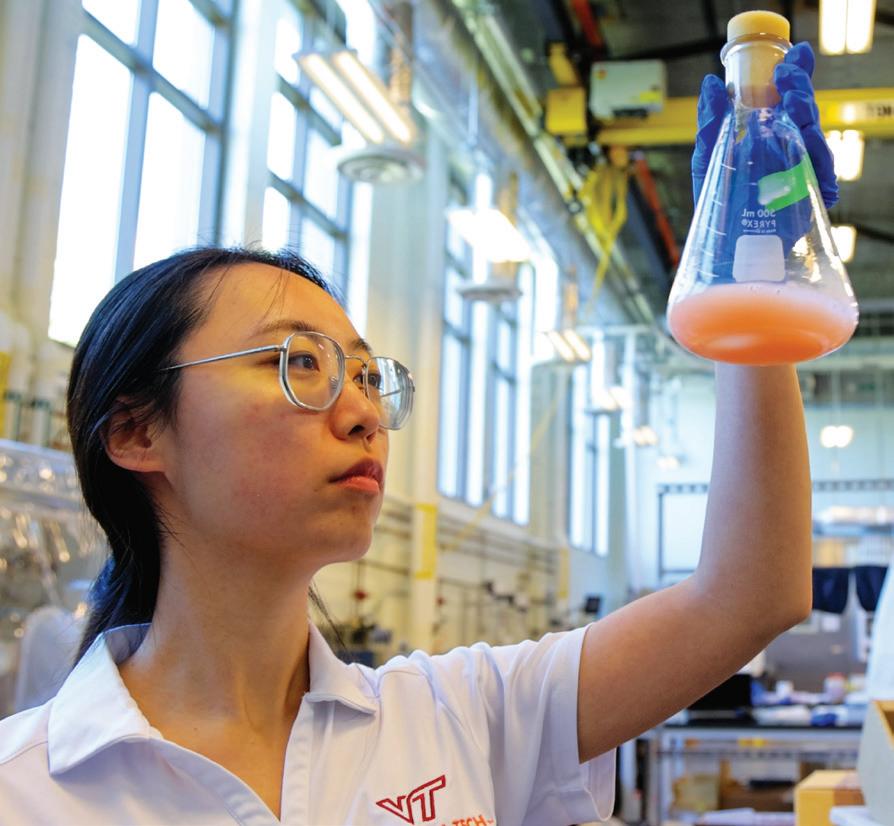
estimate cost and profitability, but we are “fortunate to have a pilot lab at Virginia Tech.”
The other reason, Wang said, is having a “very good team” that works together to move the process forward. This includes people in both upstream and downstream processing, in which food waste is, respectively, collected and ground into a homogeneous paste and then purified; a materials science professor who knows how to fabricate the final product; and collaboration with an expert at Iowa State University who conducts TEA and life cycle analysis (a systematic analysis of environmental impact over the course of the entire life cycle of a product).
There have been challenges along the way, said Wang. One is that food waste has high variability, lacking consistency. He said, “One food waste is different from another, one truckload is different from another.”
The more difficult challenge, Wang related, is the “human perspective”: if people realize plastic is made from food waste, they may not want to use it. “This psychological aspect is hard to address,” he said. Wang said there are many ways to produce bioplastics. “My way is not the only way,” he said, and he doesn’t know which way will win out. But “we will do our best to make an impact.”

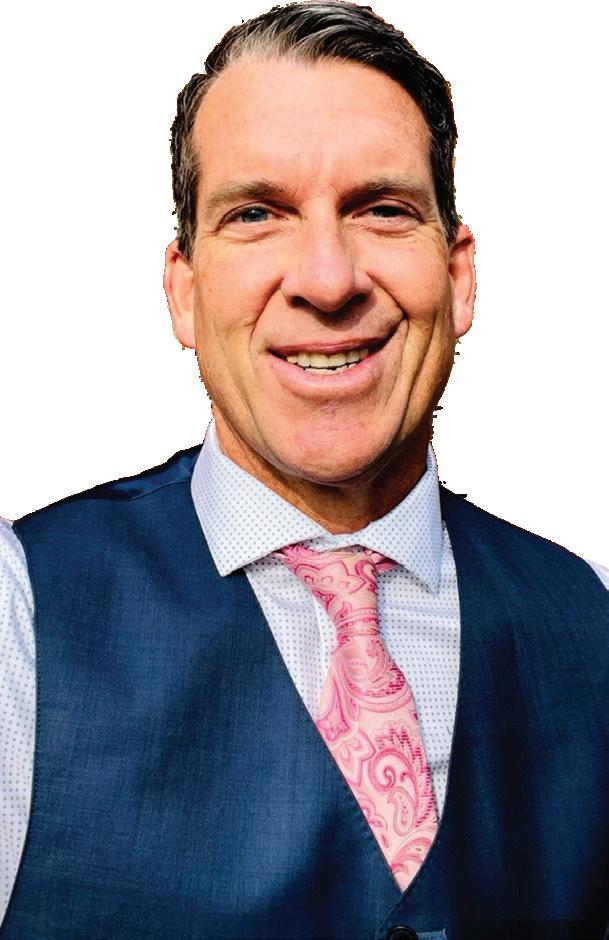
By Frazier Hughes
Executive Summary:
Well, the new real estate laws are in full effect and a lot has changed - but not a lot has changed either. At least for now.
Here is what is happening with sellers and buyers in our market. Most people are not realtors and are only getting this information from the news and do not really know what they are talking about and here are a couple of the changes. To be clear, the biggest part of the new laws are that during a transaction a conspicuous statement that broker fees and commissions are fully negotiable and not set by law is in writing for all parties. Here are a couple of the new changes. You can see the rest on the National Association of Realtors website, at www.nar.realtor/the-facts
Here are what the new changes are for the buyers. Gone are the days of just showing a home without an agreement. Before August 17 if someone wanted to go look at a home a realtor could just open the door and show them the house. Now, buyers MUST sign an agreement before touring a home. If not a $100 fine could be imposed for the realtor up to $750. The great thing about this is that it vets buyers that are not serious or just looking. It is not required to attend an open house. There is a new compensation form when making an offer on a home the buyer’s agent fills out and both parties sign.
Here is what the new law means for sellers. As your agent, I can no longer post what the seller compensation is for a home on the MLS and previously you may see, for example, 3% for the buyer's agent. This is no longer allowed. From the NAR, “‘you still have the choice of offering compensation to buyer brokers. You may consider doing this as a way of marketing your home or making your listing more attractive to buyers.” Most sellers I have dealt with are offering 6%. I had one buyer’s agent tell me that if the seller is not offering, her buyers said do not show me the house. Some sellers want to pay less, and the buyers are expected to pay the difference - but this is negotiable too. Many realtors I speak with argue “commissions have always been negotiable.’”
I don’t see the landscape of real estate changing much, just more transparency, which is a good thing.

Frazier Hughes is with Keller Williams Realty. Reach him at frazierhughescom@ gmail.com
Now, buyers MUST sign an agreement before touring a home.
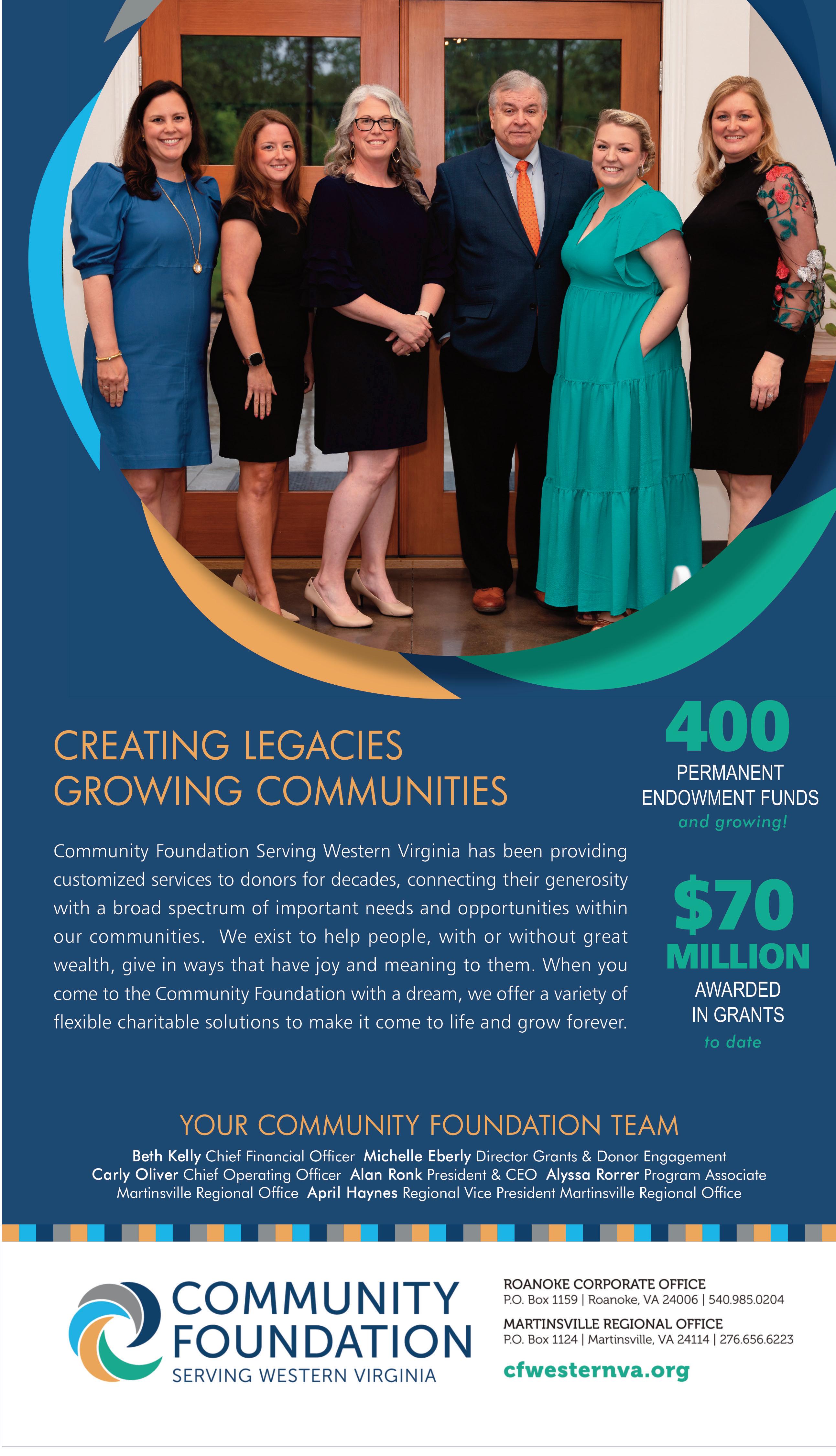
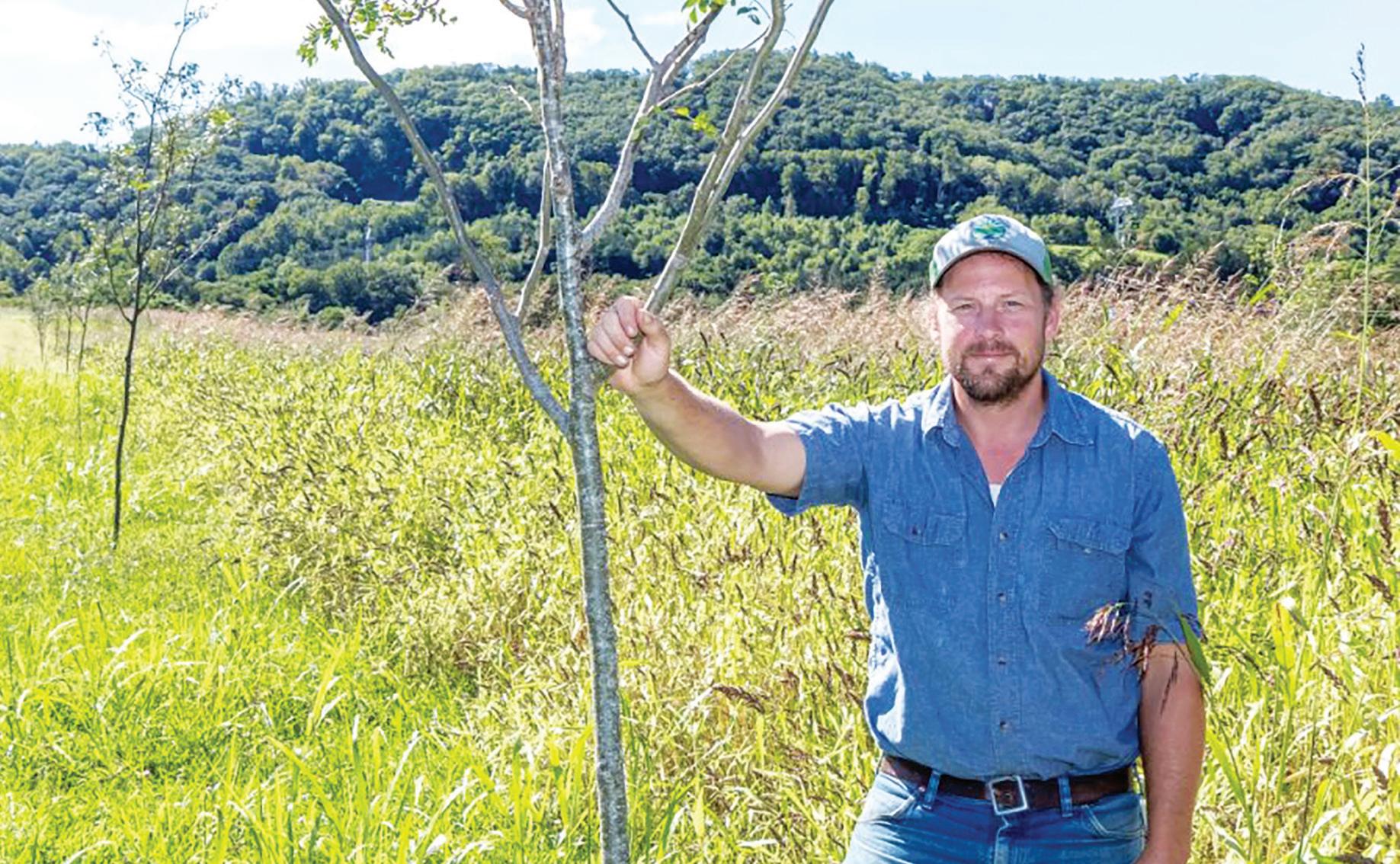
By Aila Boyd
As consumers become increasingly mindful of where their food comes from, the demand for sustainably raised meat has grown substantially.
In Virginia’s Catawba Valley, the Catawba Sustainability Center is leading efforts to meet that demand through sustainable beef production. While sustainability has become a buzzword in agriculture, the center goes beyond the trend by focusing not only on regenerative practices but also on the business skills farmers need to thrive in today’s market.
For farmers, the center provides the chance to learn about environmentally responsible beef production while gaining crucial business knowledge to ensure their operations are financially sustainable. Managed by Virginia Tech, the 377-acre facility serves as a model for how agricultural systems can operate in harmony with the environment, with beef production playing a key role in those efforts.
The center’s director, Adam Taylor, is committed to teaching farmers how to produce beef that is both eco-friendly and profitable. “The
goal here isn’t just to raise cattle, but to do it in a way that works for the environment and provides farmers with a sustainable business model,” Taylor said.
One of the main techniques used at the center is rotational grazing, a practice that involves moving cattle between different pastures to prevent overgrazing. This approach preserves the health of the grass, improves soil quality over time, and allows the center to raise cattle in a way that’s in balance with nature. “Rotational grazing is essential for maintaining pasture health, and it’s one of the most effective ways we can manage the land while producing high-quality beef,” Taylor explained.
The beef produced at the center is entirely grass-fed and hormone-free, aligning with the growing consumer preference for healthier, more natural food options. Unlike conventional cattle operations, where livestock are often confined to feedlots and
fed grain-based diets, the center prioritizes raising cattle in a pasture-based system. By following this model, the center produces leaner, more flavorful beef than grain-fed alternatives, which appeals to today’s increasingly informed consumer.
“People care about where their food comes from,” Taylor said. “At CSC, we’re showing that you can meet that demand without compromising on environmental sustainability or animal welfare.”
While environmental sustainability is critical, Taylor understands that it’s only part of the equation. Farmers who come to the center are also taught the business side of agriculture. In addition to learning about beef production, farmers are provided with business training that includes marketing strategies, financial planning, and supply chain management.
“You can have the most sustainable farm in the world, but if it’s not financially sound, it’s not going to last. We focus on giving farmers the skills they need to make their businesses profitable,” Taylor said.
Workshops at the center cover a wide range of topics, from pricing products to developing relationships with buyers, whether it’s restaurants, grocery stores, or direct-to-consumer sales. Farmers learn how to position their products in the marketplace, ensuring they can sell their beef in ways that reflect its value.
“We make sure farmers know how to communicate the value of their product,” Taylor added. “That’s crucial when you’re competing in a market with bigger, more commercial farms.”
A key partnership with LEAP (Local


Environmental Agriculture Project) allows the center to further support local farmers while also providing quality beef to the wider community. LEAP works to make fresh, local food accessible to all, and its collaboration with the center brings sustainable beef directly to consumers.
Kyra Crawford, LEAP’s food hub manager, emphasized the importance of the relationship: “Through our successful partnership with the Catawba Sustainability Center, LEAP is able to purchase whole beef cows affordably, which have been raised using environmentally regenerative methods. As such, we're able to offer premium quality beef to customers of the LEAP Mobile Market and the LEAP Community Store who may not often have the opportunity to purchase it otherwise. This aligns with LEAP's vision to provide a holistic approach to meeting the needs of our community and environment.”
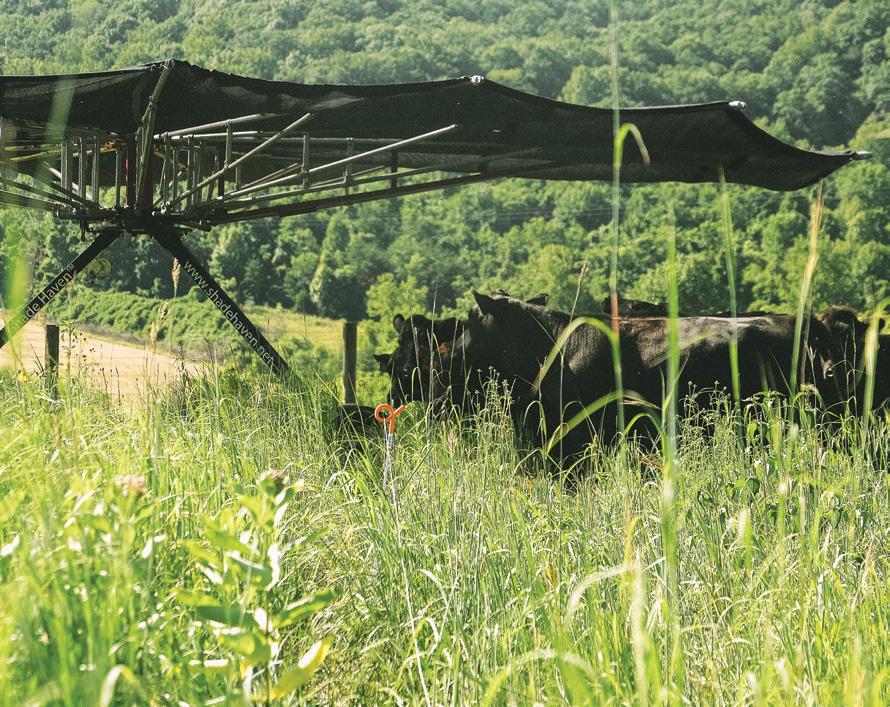
For many farmers in Southwest Virginia, beef production offers an opportunity to diversify their income streams. The training provided at the center helps these farmers integrate sustainable beef production into their broader operations, allowing them to create new revenue sources while adhering to sustainable farming practices.
“The Catawba Sustainability Center isn’t just a place for learning about sustainable farming,” Taylor explained. “It’s about creating opportunities for farmers to build resilient, profitable businesses that can support their families and communities for generations to come.”
By working with the center, farmers gain access to resources that might otherwise be out of reach, including advanced technology, mentorship, and collaborative networks. The support system provided by the center levels the playing field for
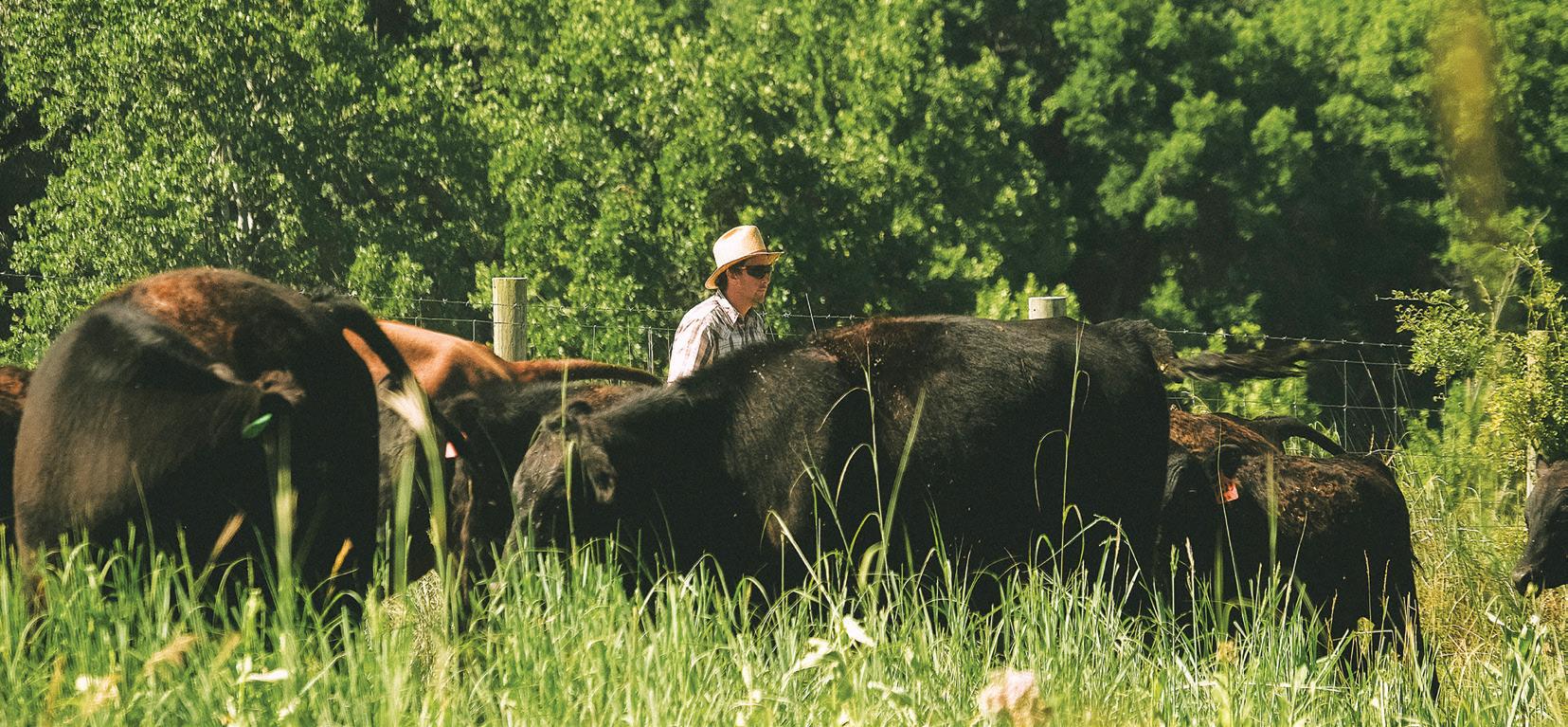
smaller producers who may lack the resources available to larger commercial farms.
Roanoke County also works with the center on the Grass-Fed Beef Partnership. Megan Baker, director of Roanoke County economic development, said, “This program supports our local farming community by purchasing calves from area farmers and advancing research into sustainable cattle management for high-quality beef production. It also bolsters our local economy, providing residents with access to locally produced, sustainably sourced beef.”
Roanoke County Board of Supervisors Vice-Chair Martha Hooker, who represents the Catawba District, added that the center not only supports local farmers and increases food availability, but also delivers important environmental benefits. “Through its focus on sustainable agricultural practices, the center strengthens our community while
providing education opportunities for everyone,” she said.
As the center continues to grow, Taylor is optimistic about the future of sustainable beef production in Virginia. The center’s success has shown that it’s possible to produce high-quality beef in a way that benefits both the environment and the local economy.
Looking forward, the center plans to further develop its educational programs and refine its sustainable farming practices. The center hopes to serve as a blueprint for other regions aiming to balance agricultural productivity with environmental responsibility.
“Our mission is to show that sustainability and profitability aren’t mutually exclusive,” Taylor said. “With the right practices and the right business strategies, farmers can have both.”


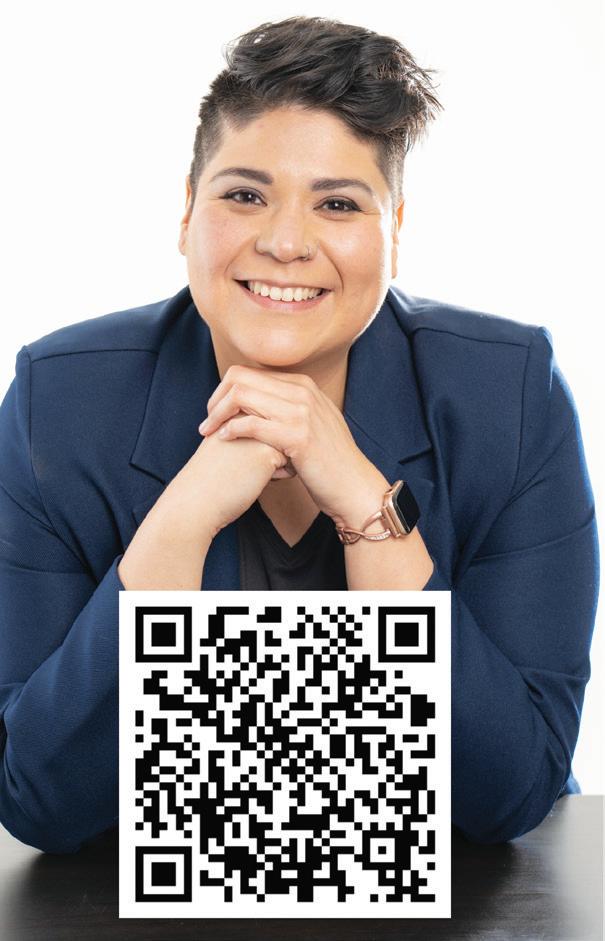
By Bonnie Chavez
Executive Summary:
When we experience the loss of someone - it brings a mix of feelings, opening and closing of wounds, and is usually complicated. The standard for bereavement leave is three days.
Three, that's it. What can you accomplish in three days when you are emotionally charged and exhausted?
Let’s reframe this. What if we treated everyone like human beings and allowed them to grieve, participate in rituals, and reconnect with loved ones? I propose we make two weeks the standard for bereavement leave - per occurrence. But Bonnie, they can use PTO days! PTO is for resting and recharging; bereavement is a different beast.
Unfortunately, this year, three of our team members experienced the loss of loved ones. The time needed was different but realistic.
• One person took time off to travel multiple times to visit their family while in hospice. Taking the time to reconnect, say goodbye, and prepare.
• While another’s days were filled with hospital visits, surgeries, recovery, and ultimately loss.
• Another traveled across the country and helped with odds and ends while navigating elderly parents.
None of these sound particularly restful, so why use PTO?
Also, the aftermath. The humbling, “How are yous?” sadness, stories of the departed, maybe even a few tears. The expression and journey of grief are non-linear and individual. Why do we think it can be buttoned up in three days?
How do you handle the passing of your employees' loved ones? How do you support them today and in the future?
• Empathy - Express your care for them. We spend years with folks; let them know you are thinking about them.
• Hold Space - Ask them how they are doing, no, REALLY, how are you doing? Invite them to talk, offer to sit and listen, or allow them to react however needed. Some will share, others won’t.
Bonnie Chavez is the CEO of Building Beloved Communities, a local consulting firm specializing in community-centered business solutions. bonnie@building
• Don’t Assume - Our lives and relationships can be complicated and messy. The recently departed may have been beloved by all or… not. Let the surviving person be authentic and never judge.
• Send a gift - flowers or donations and allow the staff to use the company card for a DoorDash delivery or two.
• Time Off - Again, consider two weeks, which can be taken intermittently or consecutively. Let people tell
you what they need. Sometimes, it's a half-day when they return, two solid weeks of spending time with their family, or six months later on the deceased’s birthday.
• Employee Assistance Program/other benefits - Some organizations have access to an EAP line (that can provide resources from therapy to estate planning). Send regular benefit reminders.
As business leaders, we understand the importance of our team. Without the team, there is no organization. We have an opportunity to go to HR today and propose a more realistic and reasonable policy to support our folks. Let’s do better than three days!

“”
The expression and journey of grief are non-linear and

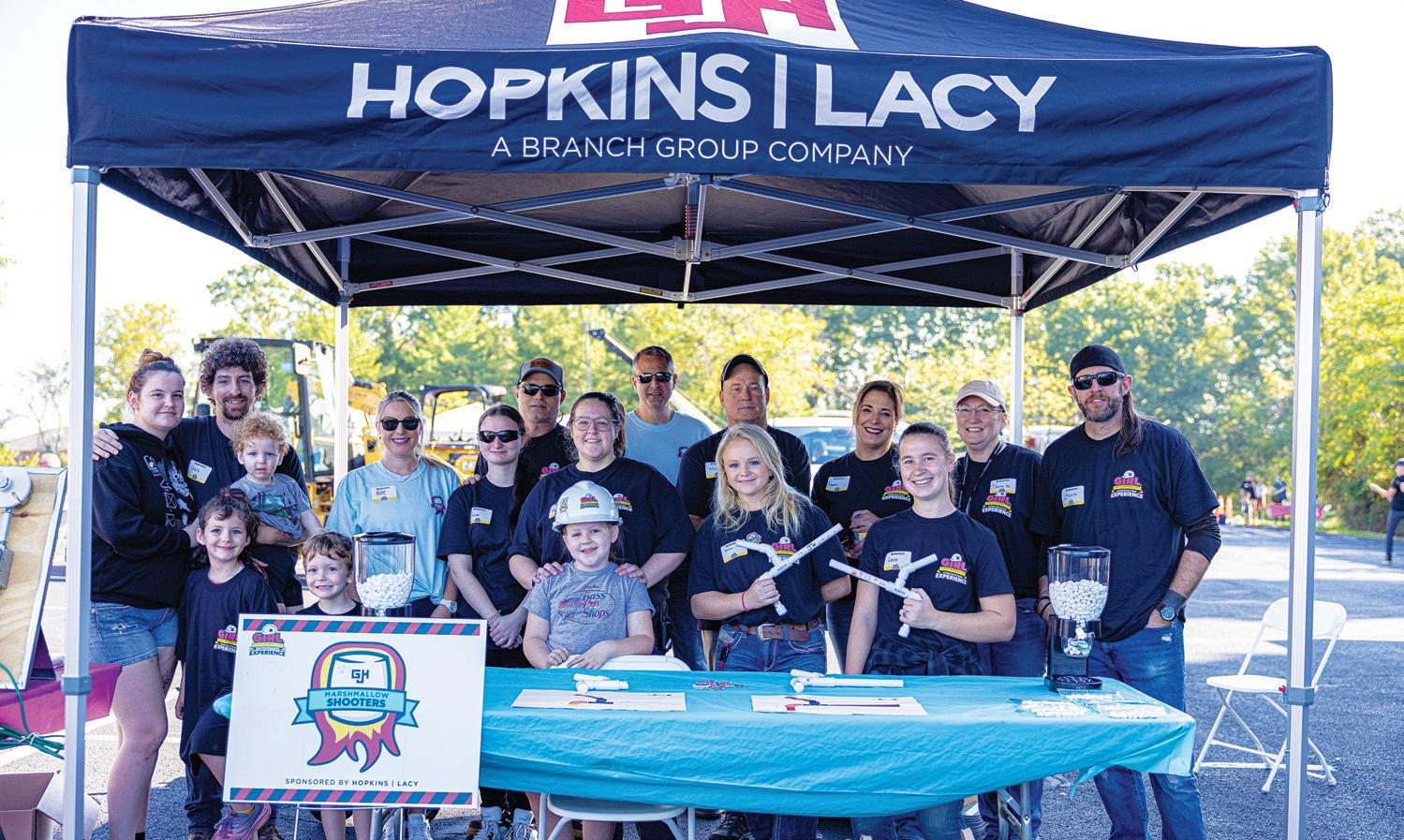

Hundreds of girls experienced life in the construction industry last month at the Branch GIRL Construction Experience
The GIRL Construction experience gave girls ages 5-18 the opportunity to experience real-life construction, engineering, and STEM construction concepts.
Armed with specially designed PPE and a punch list, (and their own hard hats) girls recruited from local schools and Girl Scout troops visited over 50 hands-on constructionfocused exhibits, activities, and displays.

“We want girls to know that they can build great careers in the construction industry,” said Cathy Underwood, Branch corporate business development officer at the Roanoke-based commercial construction firm. “We want girls to expand their thinking about this industry and realize that it isn’t just for boys.”
Underwood points to why girls should consider STEM careers in the construction industry. “The earning potential and career opportunities are wide open for women,” she said. “Women experience near-equal pay to their male counterparts and can rise quickly through the ranks.”
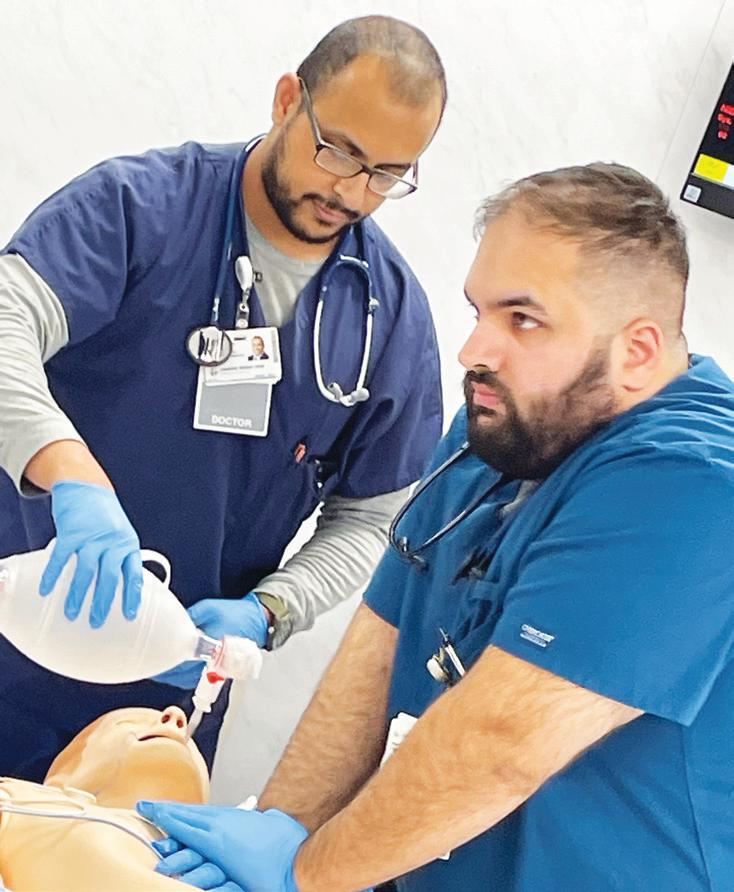
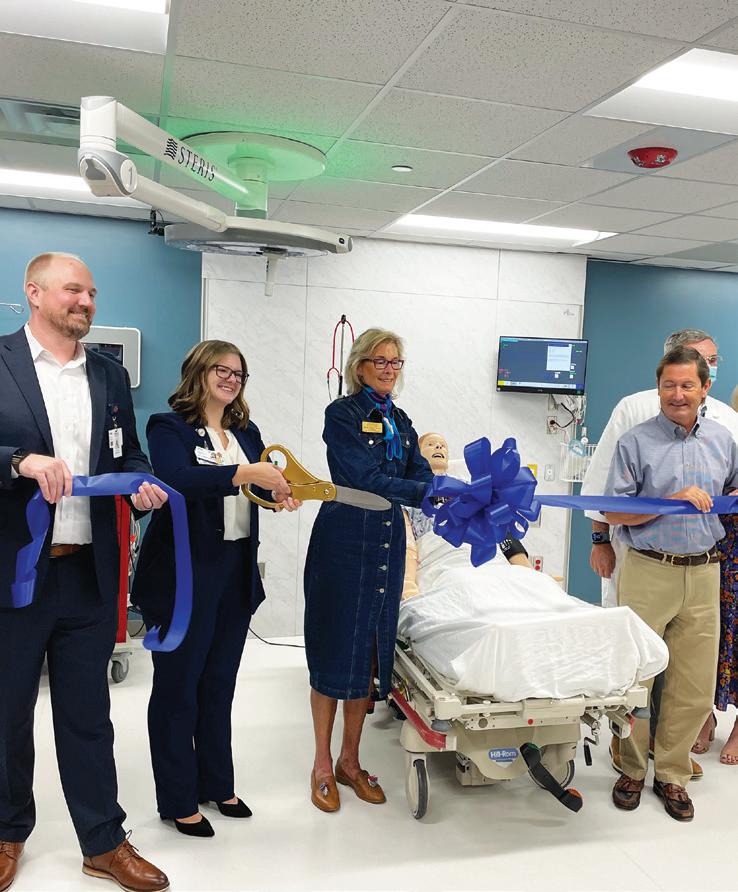
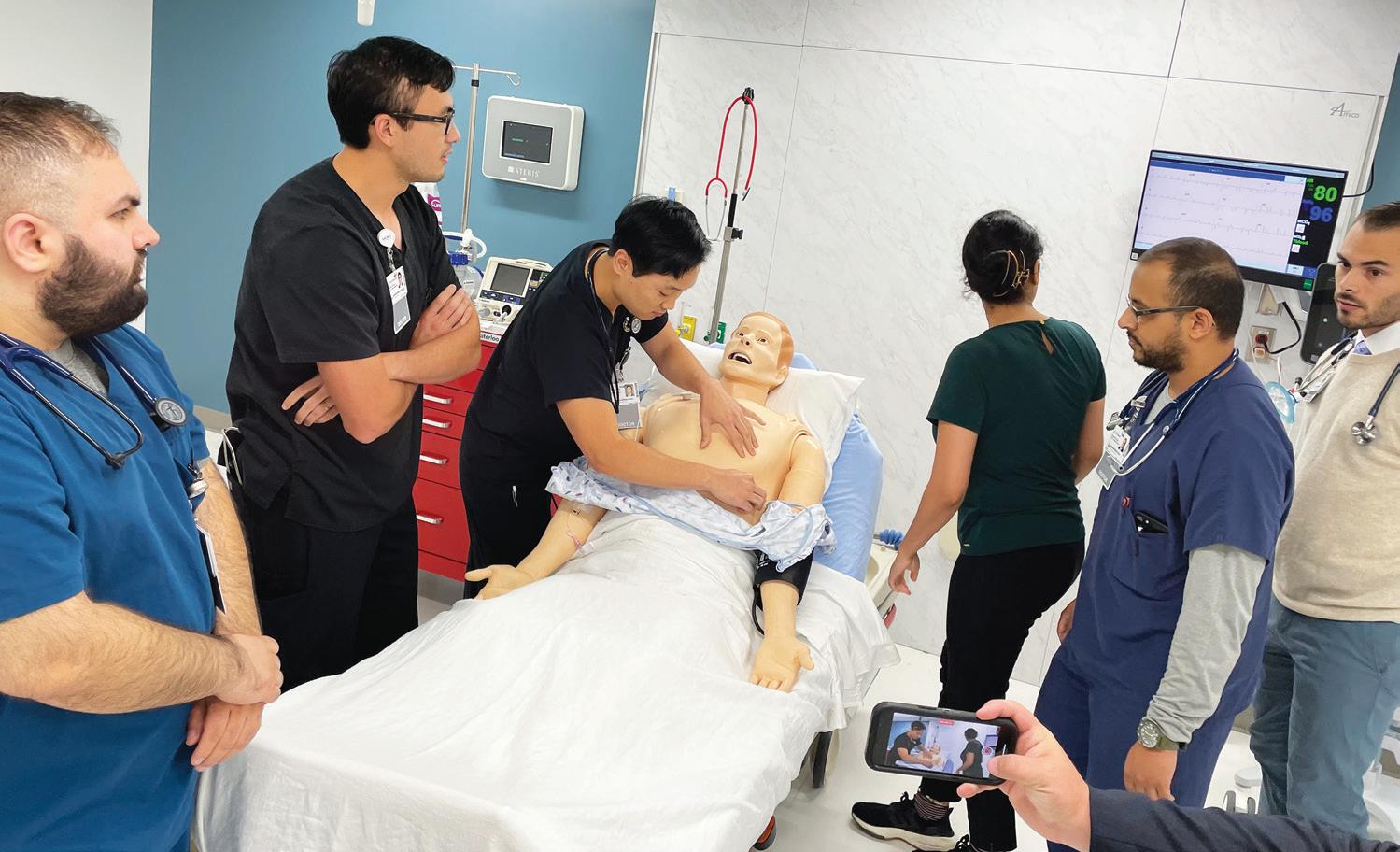
A new training tool now officially launched at LewisGale Medical Center in Salem makes it easier for residents and other medical professionals there to simulate real-world conditions - before those skills are needed on real patients in crisis. LewisGale's parent company HCA Healthcare has been installing more of these Graduate Medical Education Simulation Labs at various HCA Hospitals. Greg Samuelson is a corporate director of simulation: “we may include nurses and other hospital physicians but the focus of our space here is resident education.”
After a ribbon cutting last month Dr Stuart Hargrove and a team of residents, nurses and other personnel demonstrated how the 1,500 sq. ft. SIM center would work, by way of an interactive mannequin that was programmed for shortness of breath and possible cardiac arrest. (It even gave verbal cues.) Hargrove said practicing these real world situations can be invaluable. A team of LewisGale residents worked to revive the patient. “I had this in med school, it was brand new, so we had all the top of the line equipment, but once I finished med school, I didn’t have this. Getting this level back is extremely important. It’s really cool. You can’t practice on normal people all the time. This is as close to a human as possible.”

By Sherri Winesett
Executive Summary: "In the absence of transparency, suspicion thrives." – Sheri Winesett. For women entrepreneurs and leaders, embracing transparency is not just an admirable trait—it is a necessity in today’s world.
Transparency builds trust, drives collaboration, and creates a positive work culture, all essential for thriving in a rapidly changing environment.
What is Transparency in Leadership?
Transparency in leadership goes beyond simply sharing information. It involves openness, clarity, and accessibility in communication and decision-making. A transparent leader shares relevant information, explains the reasoning behind decisions, and encourages feedback. This approach builds trust and empowers teams to engage meaningfully with the company’s vision.
Why is Transparency Crucial?
In today’s world, employees seek more than direction; they expect authenticity. Millennials and Gen Z, in particular, are driving this demand, with studies showing that these generations value purpose-driven work and ethical leadership. For instance, Deloitte's 2023 Global Millennial and Gen Z Survey found that nearly half of these workers would consider leaving a job that doesn’t align with their values. When leaders embrace transparency, they foster an environment where teams feel empowered to share ideas and learn from mistakes, boosting morale and productivity.
1. Show Your True Self: Authenticity is the foundation of transparent leadership. Leaders must be open about their experiences and values. Sharing your true self creates deeper connections, allowing your team to see you as real and relatable. This openness encourages others to do the same, fostering trust.
2. Give Credit Where It’s Due: Recognizing your team’s accomplishments is crucial. Publicly acknowledging contributions boosts morale and reinforces collaboration. When team members feel appreciated, they are motivated to perform and support each other.
Sheri Winesett is Chief Operating Officer at John Mattone Global, a premier executive and leadership coaching boutique, Author of Transparent Leadership for Women Who Mean Business
3. Own Your Mistakes: Transparency involves sharing not just the good, but also taking responsibility for mistakes. Admitting when you’ve fallen short shows humility and a commitment to growth. This vulnerability strengthens your credibility and sets a powerful example.
4. Communicate About Decisions: Keep teams informed about significant changes and developments. By sharing the "why" behind the "what," you reduce uncertainty and help align efforts with the organization’s goals.
5. Foster Open Dialogue: Seek feedback and create opportunities for the team to share perspectives. Employees who feel their opinions are valued are more engaged and committed. Open communication encourages continuous improvement and innovation.
When leaders fail to be transparent, mistrust and disengagement follow. Employees may feel disconnected from the company’s mission and unsure about their roles. Embracing transparency, even during challenges, addresses issues constructively, strengthens resilience, and builds shared accountability.
Embracing Transparency for Success
Transparency is essential for effective leadership. By leading with openness and authenticity, women entrepreneurs and leaders can inspire trust and create a culture where everyone feels valued. In today’s ever-changing world, embracing transparency is not just an option; it is a pathway to sustainable success.



By Tom Field
Executive Summary: Pondering about the remote work model.
“I’m here. I’m here. Already at work, my dear.” (Sung to the tune of Disney’s “Hi ho. Hi ho. It’s off to work I go.”)
Yeah. The new iteration isn’t all that catchy.
And that’s kind of what’s been trending recently with remote working.
Interestingly, I’ve been a “remote worker” for a big chunk of my small business ownership years. I was most definitely in the minority, if you can believe it. “Oh, that’s your office?” visitors and guests would say. “That is so neat. I would love to work at home.” My “studio” is a separate building from my house; but indeed, I’ve been “working from home” since I started my business in 1993.
I love it. I agreed with my visitors, and acknowledged the envy from many of them as I confirmed how grateful I was for my unique model. “It’s nice,” I’d say. “The commute is super easy. And free parking.”
Today, my model is no longer unique. Even in my own household, for example, of the eight of my immediate family circle (wife and I; three children and their spouses), five us work remotely.
So, no one bats an eye about my working arrangement; and in fact, I’ve set up a few satellite offices at times just to maintain a more public presence. The whole reason for building the separate 1,300 sq. ft. studio on my property was to keep my business independent. A separation of professional and personal, if you will.
Forbes just recently reported that one in five workers in the US are working remotely. By next year, about 33 million Americans will work remote. A top advantage, Forbes says, is flexible hours. Disadvantages include “digital burnout” and “feeling disconnected” to coworkers.
Still, most people prefer to work remotely, the reports say—at least some of the time.
What gets me, is when you DO venture out—say, at a coffee shop—what do you see? All of the people gathered in the shop are… looking down at their mobile phones or tapping away on their laptops/tablets. Are they part of the para-remote workforce?
About the only time you see actual physical interactions are at physical work sites, networking events, pubs after hours, and festivals and recreational activities.
Interesting observations. I know I’m guilty of being too far removed for too many hours of the work week—from my customers, from my associates, even from my own staff.
I don’t need to sleep in the same room with everyone else, like those seven dwarfs did in Snow White. But I could do better.

Several new grants from GO Virginia and the federal government will be employed to provide additional help to local business startups and entrepreneurs - by way of an "Ecosystem Navigator Program." The alliance known locally as Verge, includes the well-established RAMP program, the regional accelerator for startups. That was joined this Fall by ON RAMP, where five entrepreneurs not quite ready perhaps for the RAMP mentoring process are part of that new program. John Hagy is the RAMP director: “We wanted to be able to help folks who are too early for our main RAMP residence program. ON RAMP would be the earliest stage, where you’re just at an idea and trying to determine whether that idea [is] something [the owner] actually wants to put time and money into.”
In the ON RAMP program mentors will work with that cohort on initial business plans and refining their company pitch. It does NOT guarantee them a spot in a future RAMP cohort, notes Hagy. It does however “make it more accessible to access entrepreneurial programs and strategies, by making it a lower time commitment and shorter before you get to our core program. That was another piece.”
Meanwhile the new Ecosystem Navigator Program could send startups elsewhere says Hagy – even to more “Main Street” programs like The Gauntlet. “If there is a Richmond-based company and they’re positioned to go through another accelerator we can always introduce them to other partners, whether they are accelerators or state-run programs, or if it’s more of a kind of main street business, we can direct them to the right kind of organization for that as well.”
The US. Economic Development Administration's Economic Adjustment Assistance Grant is helping to fund the Ecosystem Navigator program. The first ON RAMP cohort includes three startups from Roanoke and one from Pulaski.
RAMP will also invest some of that funding to provide additional attention and resources for historically underserved communities across Southwest Virginia. This new initiative supports rural, minority, and immigrant populations in accessing resources for technology and biotechnology startup ventures.
Meanwhile the newest RAMP cohort this Fall includes local startups Drivingo (Blacksburg) which pioneers customer experience with touchless interfaces; Accordium.AI (Blacksburg) which is developing a large language model platform to revolutionize the way users negotiate; and Portcullis Research (Blacksburg) working to improve supply chain and lifecycle security for physical documents, trusted supply sources, and other routine business processes. Each RAMP graduate will leave with $20,000 in funding.


THERE’S SOMETHING HAPPENING HERE
By Gene Marrano
Executive Summary: Not ready for prime time? Roanoke’s regional accelerator has another program in place now.
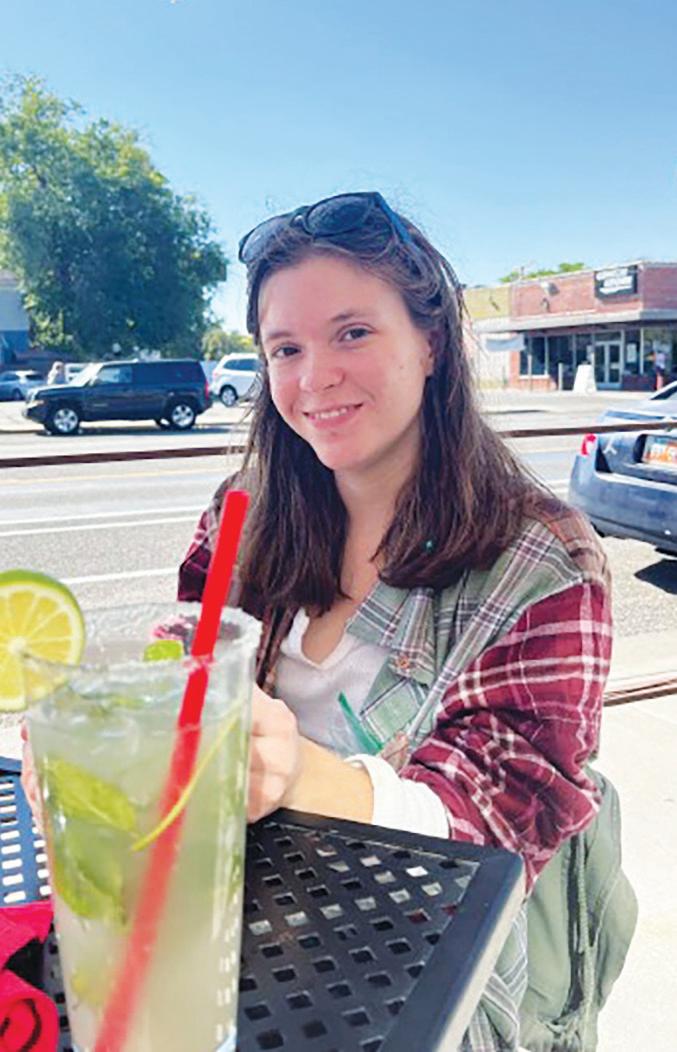
By Amelia Huggins
Executive Summary: A senior college student shares her perspective with the international scene.
Education is more than just learning numbers and letters; it’s about discovering yourself and figuring out what you like. Education doesn’t have to be limited to a classroom either. In my opinion, the greatest adventures and learning opportunities come outside in nature and culture, anyway. This summer, I went to Japan with Roanoke College. While it wasn’t a study abroad, but one of their May terms rather, I still learned a lot. Did you know that Fushimi Inari-taisha temple is all the way at the top of the mountain, and that you have to climb ten thousand steps to get to the structure? All of these steps have Torii over them (the orange gate we often associate with Japanese culture), which thankfully makes the walk cooler, temperature wise. I made it to the top and it was absolutely beautiful, one of the greatest experiences of my life, and I would love to do it again. (I also saw someone doing it in stilettos—don’t do that).
My time in Japan wasn’t long, only a little over two weeks, but it was worth it. I’ve adored Asian and Japanese culture since I was ten; and being there was so surreal. Imagine if I did that for a full semester. Luckily, I had the opportunity to exchange messages with another student who is studying abroad here, at Roanoke College. Arpna Rassani is originally from Pakistan, however, she’s doing an exchange program here for one semester. So far, she is loving Roanoke College and all the students and teachers as well. She says that the teachers act like friends to the students; and that motivates them to keep going.
Back in Pakistan, Rassani says, teachers tend to act more like an authoritative figure than a friend. She also says that in her
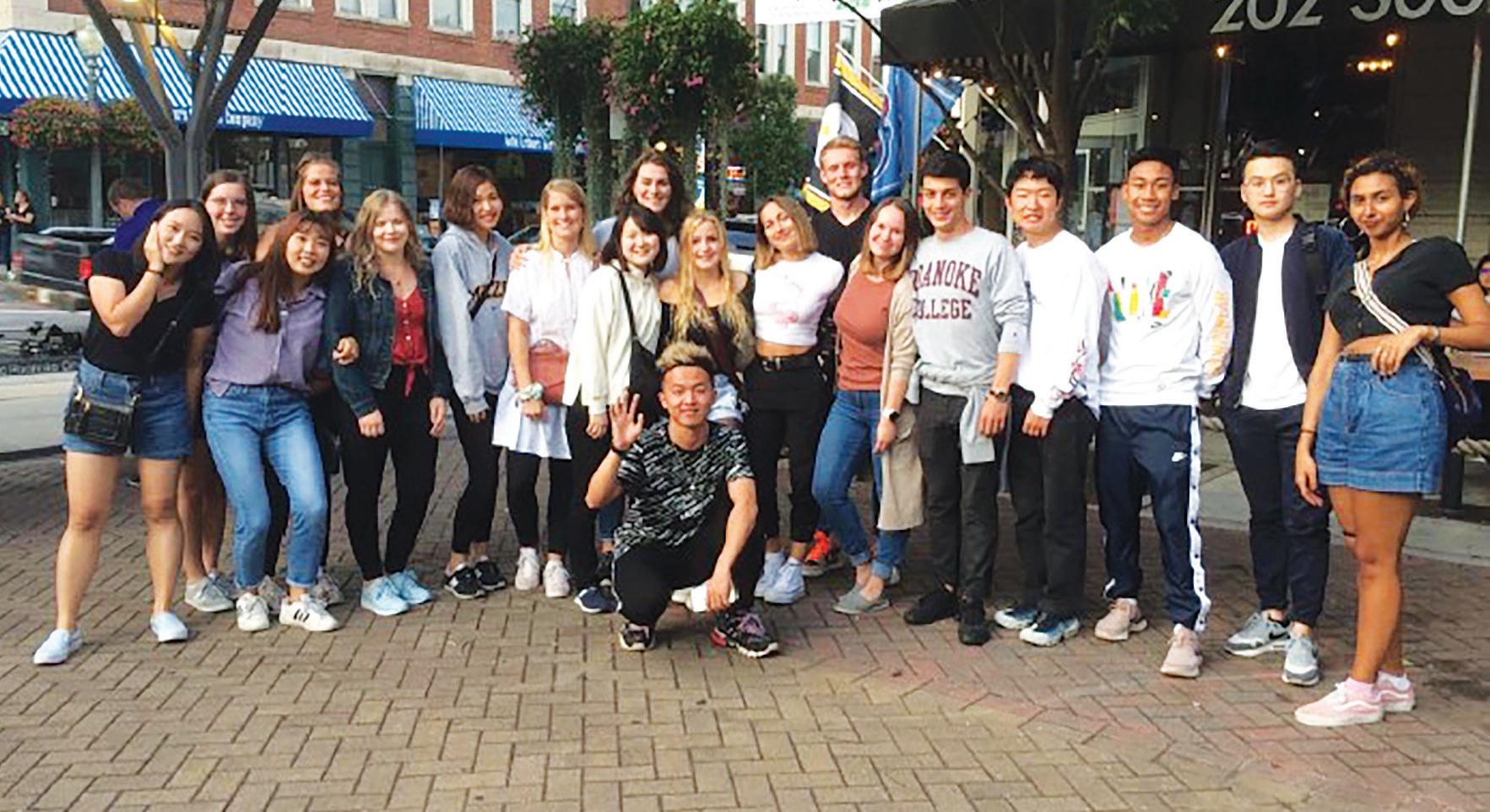
country there is no such thing as a minor, only a major, which is something I find interesting. I just automatically assumed every country in the world had majors and minors in college, but in hindsight it does make sense that every country does things differently and has their own education systems in place.
Every country differs from one another, not only in learning, but in views and landscapes. Rassani says that's one thing she loves about this place is the views. Roanoke College is surrounded by mountains, and that is one of many international students’ favorite features. In my opinion, Roanoke is one of the prettier colleges I’ve seen and even gives off an Edgar Allen Poe vibe. All over the globe, there are beautiful sights like this just waiting for you to find them. Some have already found them here, at Roanoke.
Roanoke College is always welcoming new students from all over the world, and has for over a hundred years. I hope it will continue to do so for a hundred more.


Readers and patrons of the business journal are invited to submit reviews (along with an optional photo) to news@vbFRONT.com. We’ve expanded our reviews to include books, music, art, performances, culinary—with a preference for local productions. Reviews must be original, include the author’s name and location, and should be brief, under 350 words.
After reviewing books for decades, on a few occasions, I’ll step out and claim a book as the best one I’ll review for the year—before the end of the year. This one is likely it for 2024. Valeria Luiselli’s Lost Children Archive (Vintage/Penguin; 2019) is a masterful creation on several levels. But first: the storyline. A blended family of four take a road trip (as they record the sounds of displaced peoples). It’s so deep, so illustrious, so revealing, I refuse to divulge a shred of description—only to say, you will be with them every step of the way. And get this… you might never know their names.
Now, the literary devices. Masterful, indeed. Yes, you’ll read this entire novel and may never learn the names of our mother, father, son, daughter. If that’s not a comment on the immigrant perspective, you’ll certainly miss all the other points. Then, there’s the shift in narrative point of view. When we leave the mother (big, chunky, first part of the novel), I was upset I now had to hear the story from the young boy. Her voice was mesmerizing. But our young lad came through, and I got it (though he talked a little advanced for his age). Yet another masterful literary device was the use of allusions. So many! Books and art and dance and music and reference sources (real and fabricated). No worries about overplaying this; all the allusions contributed to the story, like threads in a colorful quilt. I don’t have space to describe the voluminous

literary tools; but there is a 20-page run-on sentence (both annoying and brilliant); social commentaries (that don’t read as such); and even visual components (both written and shown) that include maps and guides and polaroid pictures.
Here is a story you won’t forget—both beautiful and poignant. Regardless of your view on the “immigration crisis” (or what kind of crisis it truly is)—if you don’t possess empathy at least for the children when experiencing stories of journeys like these—may God save your soul.
—Tom Field
He spent about a decade being Arthur Fonzarelli, the bad boy if there ever was one for Happy Days. Henry Winkler was an established and respected stage actor and a Yale theater grad before Garry Marshall cast him in Winkler’s signature role. After that, Winkler has spent the past 30 years trying to break free of being so tied to one role. He battled insecurity, dyslexia and an emotional disconnection from his family. And he tells the story vividly and personally in Being Henry: The Fonz … and Beyond (Celadon, 2023).
Winkler has gone on to land several notable roles in film and TV productions, and became a successful producer, much of that with
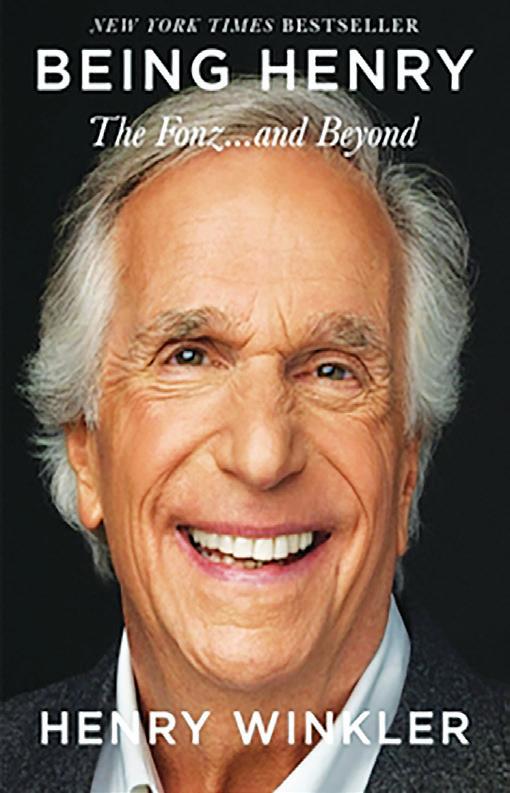
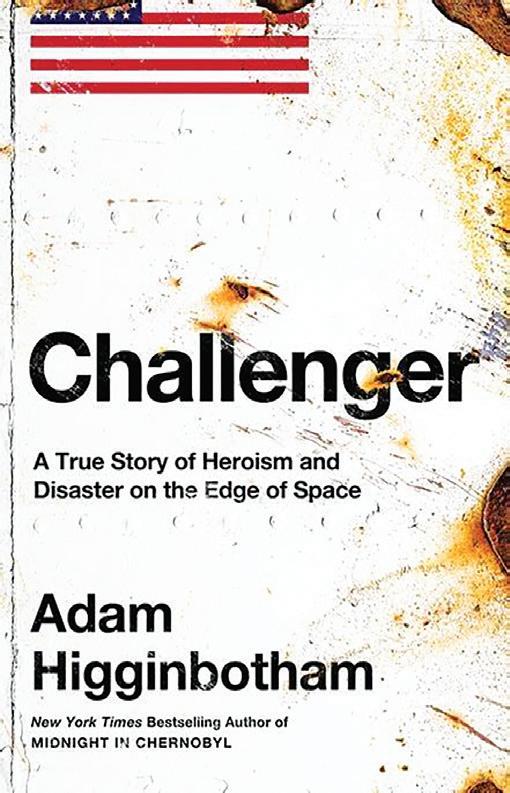
John. There are family and business partner troubles, fear of an unknown future and the like, but it’s told with honesty and sweetness. A nice easy read and a walk down memory lane for many of us. Ayyyy!
—Gene Marrano
So is getting there, especially when there is an inherent risk in every manned space flight ever sent into the heavens. But there are also tragic decision chains, group think, and contractors being bullied by NASA, as that storied agency is pressured by Congress to stay on schedule or see its funding cut. Adam Higginbotham lays it all out in great detail and almost as a detective novel, in Challenger: A True Story of Heroism and Disaster on the Edge of Space (Avid Reader Press, 2024), which begins with the poor design and the shoddy workmanship of the Apollo 1 capsule that caught fire on the launch pad during a test and killed three astronauts.
Higginbotham, who knows disasters (he also wrote a bestseller about Chernobyl) dug through the archives to craft a compelling book centered on the space shuttle era, especially the solid rocket boosters, which had to be built in sections, sealed with putty and double O-rings. The Challenger shuttle had several flights before it blew up less than two minutes into its historic and fatal
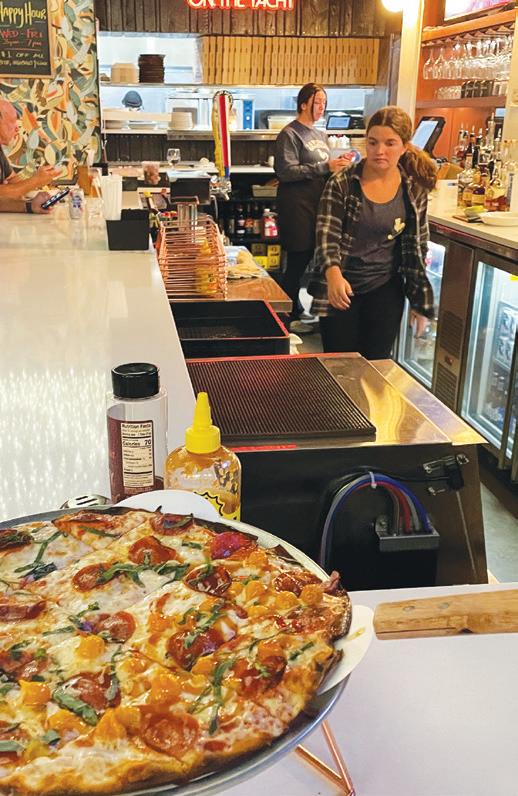
January 1986 launch that included teacher Christa McAuliffe as a member of its crew. There were whistle blowers and booster rocket contractor Morton Thiokol telling NASA that Challenger should not have launched on that abnormally cold Florida morning. The rest is history.
—Gene Marrano
Jason Martin has a nice little foodie empire going on downtown Roanoke, first with Martin’s on 1st Street, also a late night hang out and busy live music venue. Then he opened the upscale Sidecar right next door. Now comes Jaybird, in a space on Luck Avenue formerly occupied by several other restaurants after it was remodeled from its former industrial space, with loft apartments above. The flatbread-like crust on the pizza I had (less carb guilt) was really good, with a concoction called hot honey and a small, sweet pepper of some sort. Nice cool, casual atmosphere and plenty of TV’s tuned into sporting events. Hope it fares better than its predecessors, it seems to be off to a good start.
—Gene Marrano
The reviewers: Tom Field is a creative director and also publishes FRONT; Gene Marrano is a news reporter and also editor of FRONT.
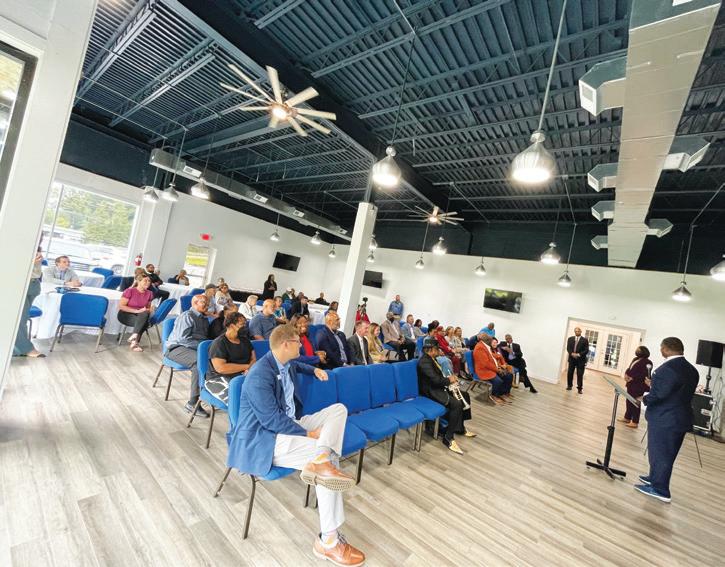
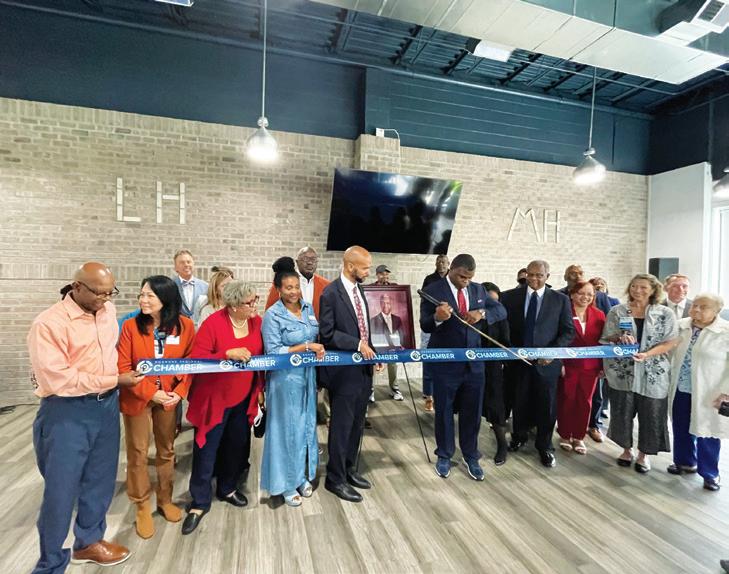
A ribbon cutting last month at an event rental space on Melrose Avenue in northwest Roanoke that’s two thirds of the way through re-imagining a building where they used to fix cars. It’s been open since late last year for weddings, Sweet Sixteen and birthday parties, faith groups and the like but last month’s open house also celebrated a new live music space complete with a stage. Michael Hamlar Jr. is president of the Hamlar-Curtis Funeral Home and Crematory.
The Reverend Bill Lee offered that the LH Event Center (named for Hamlar’s uncle that founded the family business) could signal a “tipping point,” that spurs redevelopment in that corridor. “It could be, and I was very humbled that he said that,” Hamlar noted, “hopefully other people will invest as well.” He is also helping to form a Melrose Business Association: “we’ve talked to the City of Roanoke. They are definitely behind it, the Chamber as well. We’ve talked with some businesses up and down the corridor, from 11th Street all the way to the Salem line.”
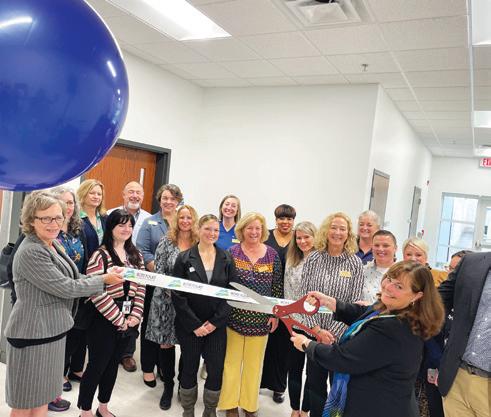

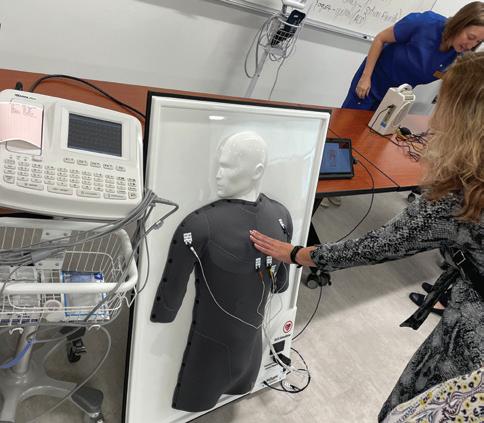
Virginia Western Community College has moved some of its healthcare courses to the Greenfield Education and Training Center - its EMT program, Phlebotomy classes, as well as the certified clinical medical assistant program to the Greenfield Education and Training Center in Botetourt County. Brittany Boltinghouse is the course coordinator for the workforce healthcare and business programs at Virginia Western. She says the Colonial Avenue campus didn't have the appropriate space for these programs. “We found that there was unutilized space [at Greenfield].” She says students taking those courses were “crammed,” at the Colonial Avenue main campus for Virginia Western.
Boltinghouse says students are enjoying the larger classrooms. She adds that a certified EKG technician program at Greenfield is also in the works. The 40,000 square foot training center in Botetourt County has been a hub of workforce training offering welding and commercial air conditioning and refrigeration. Boltinghouse says the move is best for both the instructors and the students. “They love that they have all this space to [practice] their skills, you can see everything set up versus trying to share classrooms and having to move equipment constantly – its already there – available to them.”
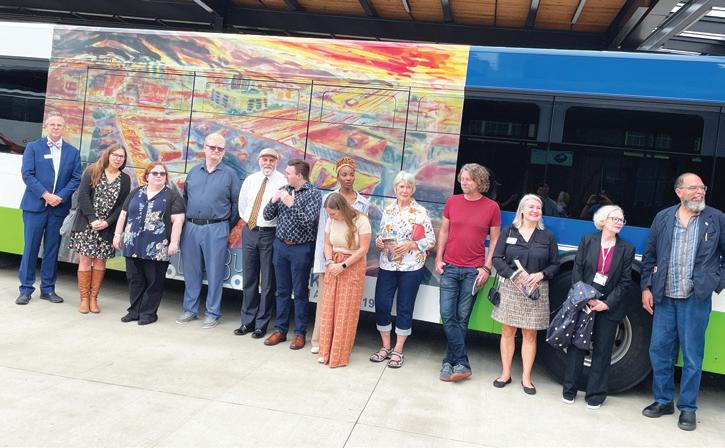
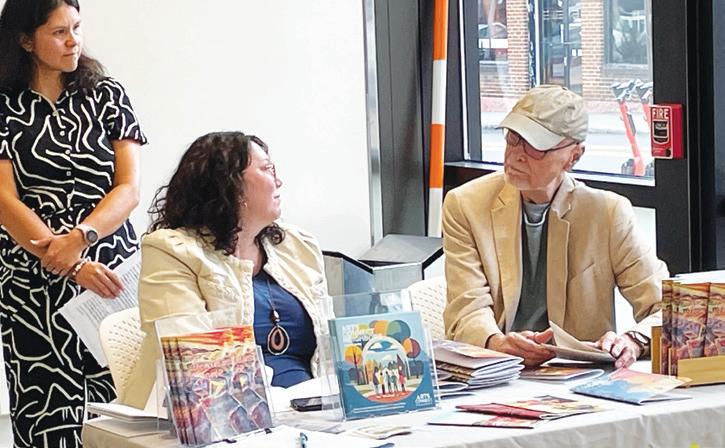
Poems inspired by public transportation have been created by the newest Art by Bus writer. Lindsey Smith Hull, a Roanoke native and freelance writer, took up the task of creating poems inspired by riding the bus during the 2024 Art by Bus program, making her this year's Writer by Bus. The program began a decade ago and aims to promote public transportation via the arts, which Valley Metro officials say has been rising in recent years. Hull’s book of poems, titled The Mountains Rumble, was released in September at the Salem Avenue bus station.
Hull says she took inspiration from the past and the present. “When I was a child I rode the bus with my Granny, she would bring me downtown – she didn’t drive.” Hull also rode the bus as a teen to a job downtown – and then as a young mother took her own kids on bus rides “as a diversion.” The Mountains Rumble will be available at various public venues around town. The painting that adorns the cover of the book by Ray Kass, is now also wrapped around a Valley Metro Bus.
The Roanoke Higher Education Center (RHEC) hosted a Portrait Unveiling Ceremony on September 26 to honor the legacy of John S. Edwards, who served as Chair of the Roanoke Higher Education Authority Board from 2000 to 2023. The ceremony provided an opportunity for Dr. Tom McKeon, former Executive Director, and Dr. Kay Dunkley, current director, to share many examples of how John’s leadership has played a role in the success of the Center. The Center commissioned artist Lisa Richards to paint the portrait which will be displayed at the front entrance of the main building.
During his campaign to occupy a seat in the Senate of Virginia, he worked hard to convince both political parties to approve funding to create an institution of learning that would provide access to educational opportunities for the citizens of this region. John was successful in his efforts to be elected and effectively served our region from 1996-2024. Prominently displaying the painting in the front lobby is a small way to thank him for his vision, support, and hard work. RHEC salutes Edwards as a leader who believes in putting people and community first.
Currently the Center hosts nine college and workforce partners who deliver programs that help individuals receive a GED, earn a degree, or achieve an industry certification close to home. Over 15,000 degrees, certificates, and endorsements have been awarded during the twenty-four years of the Center’s existence. The recent economic impact study indicates the Center contributes over $10 million annually to the Roanoke region and another $8 million in student spending.
Courtesy of RHEC
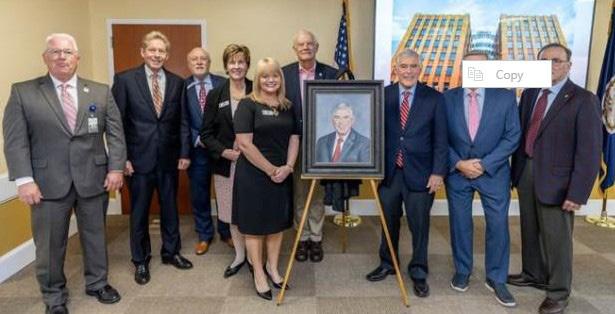
The Community Foundation Serving Western Virginia awarded a $395,000 grant to Roanoke City Public Schools (RCPS) to improve accessibility and provide resources for students with visual impairments. The grant was the second largest ever given by the foundation and the first from the Emil and Emma Lang Fund for the Visually Impaired. The grant will be used to: Purchase vision screening devices, Provide white canes, update braille signage, and establish a pool of funds for mobility and orientation equipment.
“We are thrilled to partner with Roanoke City Public Schools in awarding this milestone grant,” said Alan Ronk, President and CEO of the Community Foundation. “It represents our beginning efforts to put this community ‘on the map’ over time as a leader in how it supports and values its visually impaired citizens. Focusing on our youth was the natural point to begin this work, and engaging with RCPS leadership and staff offers us, as a grantmaker, the perfect opportunity.” Submitted
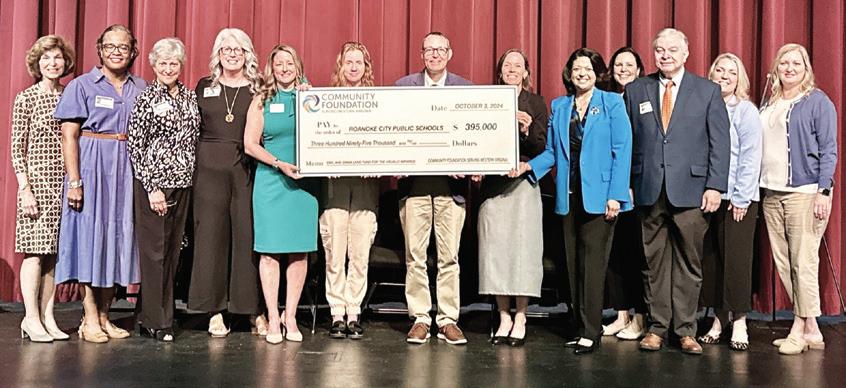
Virginia Credit Union and its Member One division in Roanoke have provided $25,000 to support Southwest Virginia communities devastated by the remnants of Hurricane Helene. The donation to the United Way of Southwest Virginia's Disaster Relief Fund will support local residents, with 100 percent of the donation helping individuals and families in need. "Our thoughts are with those impacted by Helene because we know that for many in our credit union family and our neighbors in Southwest Virginia, this will be a long road to recovery," said Member One Market President Tim Rowe. "We are privileged to be a part of this community and proud to help address the urgent need during this crisis."
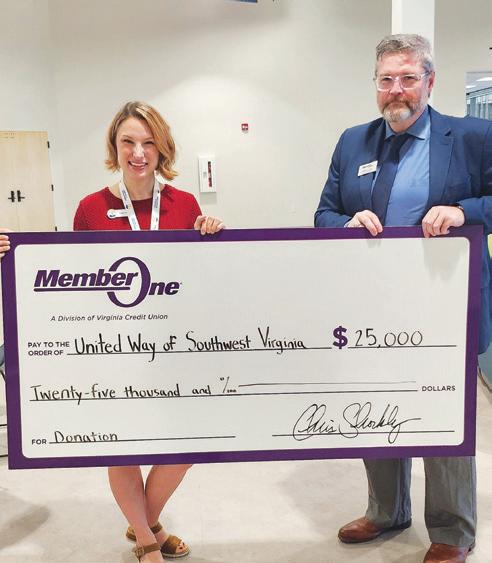
The Virginia Tech Carilion School of Medicine has been recognized with the 2024 Health Professions Higher Education Excellence in Diversity (HEED) Award from Insight Into Diversity magazine, a national honor recognizing U.S. health colleges and universities that demonstrate an outstanding commitment to inclusion — the medical school will be featured, along with 70 other recipients, in the November/ December 2024 issue of Insight Into Diversity magazine. This is the seventh straight year the medical school has received the HEED Award. The Virginia Tech campus in Blacksburg was also chosen as a Diversity Champion and bestowed with the 2024 Higher Education Excellence in Diversity (HEED) Award from Insight Into Diversity magazine, the oldest and largest diversity-focused publication in higher education, the 9th time in has been recognized by Insight Into Diversity.
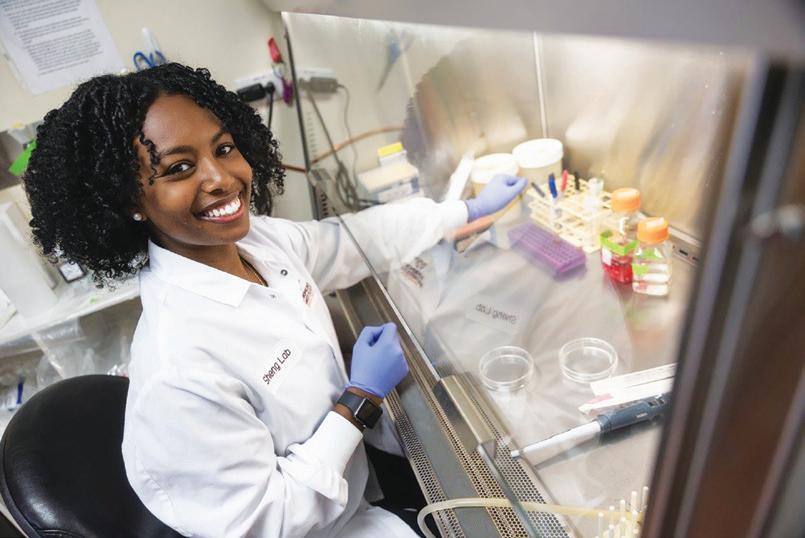
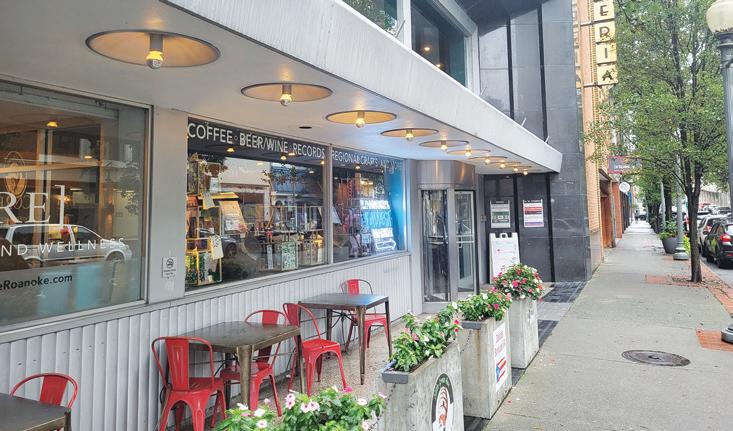
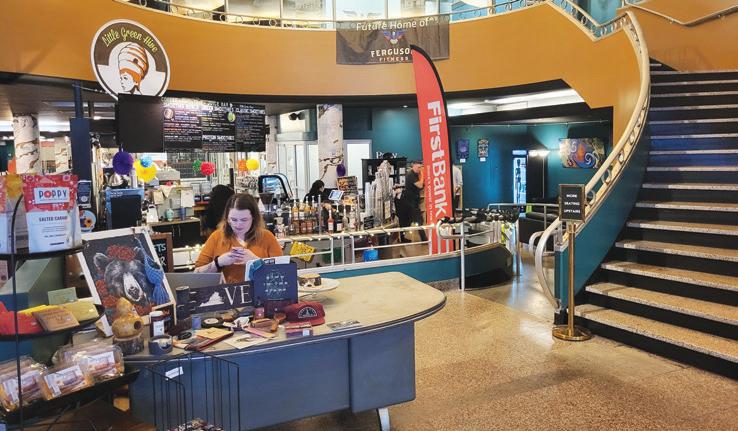
The Garland Companies’ Crafteria on Church Avenue in downtown Roanoke has been many things over the past few years and now it is becoming something more: a fitness and wellness center. The hub is home to fitness and wellness-focused businesses of various sizes under one roof, creating an environment for those seeking a healthier lifestyle, including: Ferguson Fitness; Fleet Feet; Roanoke Mountain Adventure; Core Chiropractic; Little Green Hive—a mix of permanent tenants and “pop-up” merchants.
"We're thrilled to see how these fitness-minded groups have coalesced in recent months," says John Garland at Garland Properties. "Their collective presence inside Crafteria is fostering a vibrant, health-focused atmosphere in downtown Roanoke.”
The hub encourages those interested to engage in personal and small group fitness training at Ferguson Fitness; get running/walking gear, advice and fittings at Fleet Feet; plan outdoor adventures and look at bikes with Roanoke Mountain Adventure; receive chiropractic care at Core Chiropractic; buy healthy beverages and snacks at Little Green Hive.
For more information about Crafteria and its resident businesses, contact Garland at: jgarland@garlandpropertiesva.com (540) 537-4581.
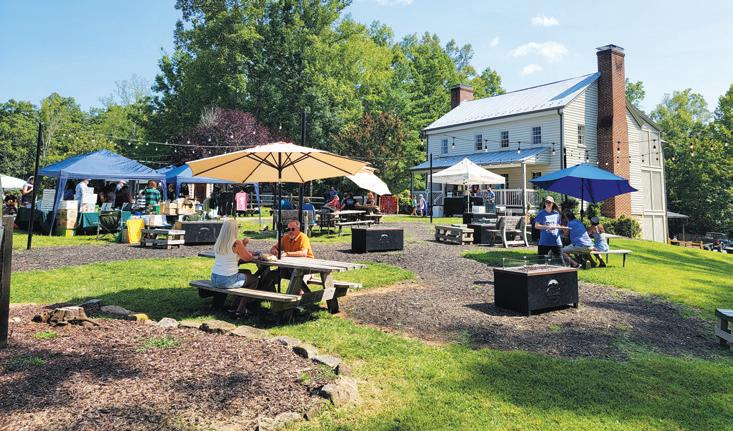
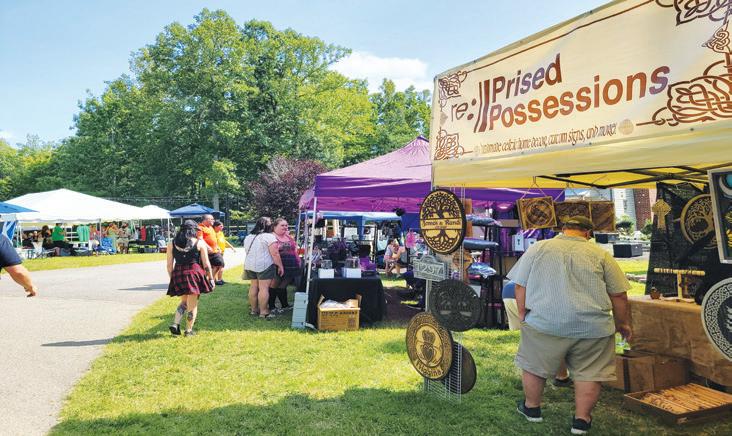
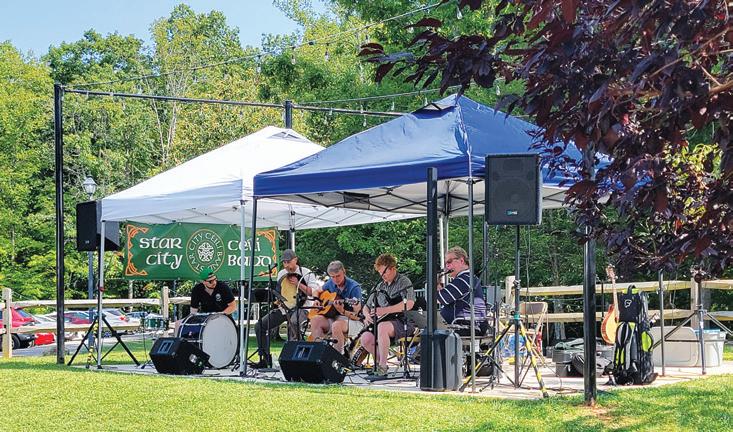
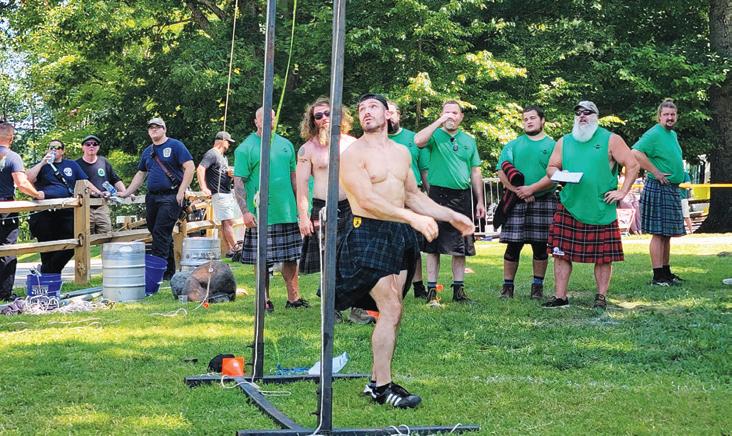
A “Mini-Celtic Festival” was held at Roanoke County’s Explore Park on Aug. 24. Twin Creeks brew pub, Kinfolk band, a band of men and women competing in traditional Highland games, and culturally-related vendors were all part of the fun.
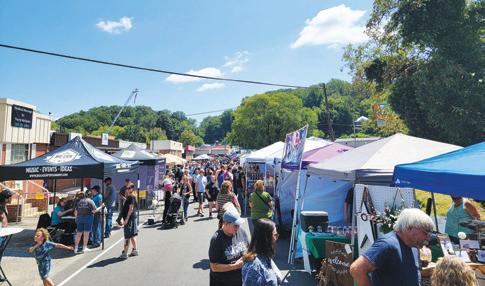


The Town of Boones Mill held its annual Apple Festival on Aug. 24 to the most attended event to date. Dozens of vendors and an engaging lawn “tractor pull” contributed to the fun, sponsored by local nonprofit Healing Strides (that uses horses and its farm to provide mental health, education, and coaching to serve the community).

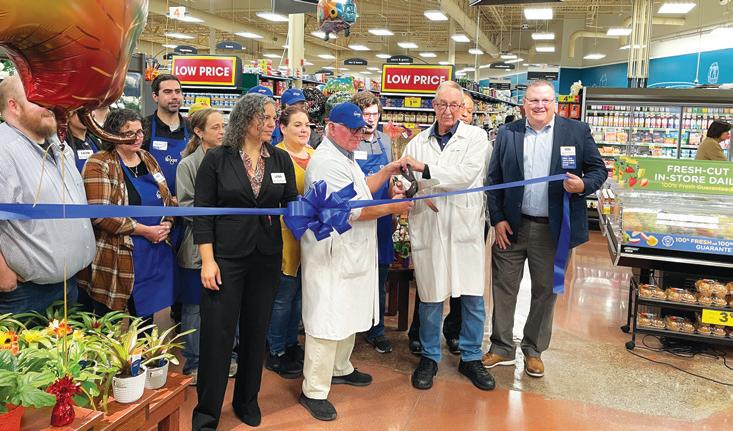
A two-million-dollar remodel of a busy Kroger store on Brambleton Avenue (the former Harris Teeter as many recall it) was celebrated with a ribbon cutting in mid-December. Bob Davis, Kroger Mid-Atlantic’s Vice President of Merchandising, called it a “great day to be on Roanoke at store number 401. These aren’t always easy – I think everyone will agree the end product is really good.”
An expanded produce department is one centerpiece, as is an expanded cheese selection. To mark the occasion, Kroger Mid-Atlantic also presented Roanoke Rescue Mission CEO Lee Clark with a $1500 check for its Manna Food Pantry. Clark says Kroger is a major player in supplying the mission with food - around a million pounds every year.
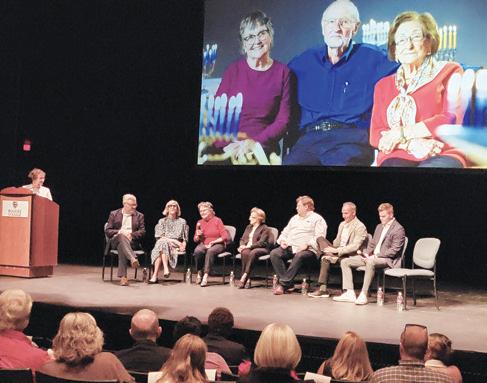

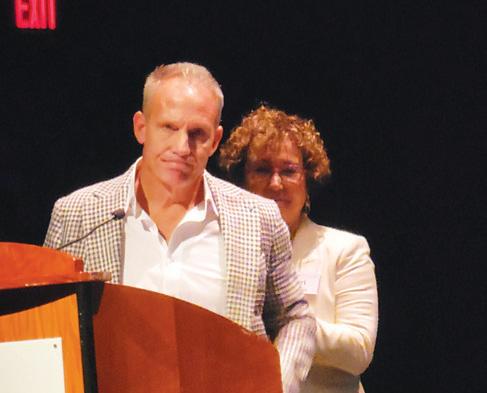
An amazing evening and experience on Sept. 18 at Roanoke College with the screening of “Triumph of Hope”—a locally-produced documentary on three Jewish hidden-child-survivors of the Holocaust: Arye Ephrath (b. 1942, Slovakia); Helga Morrow (b. 1938, Netherlands); Regine Archer (b. 1924, Poland). Lori Strauss, producer; Steve Mason and his Red Velocity production; Jim Dudley, direction, their teams and funding sponsors (Roanoke Jewish Foundation, Roanoke College, Carilion Clinic).
The stories: captivating. The takeaway: press on. The ask: never give up. The effect: inspiring.

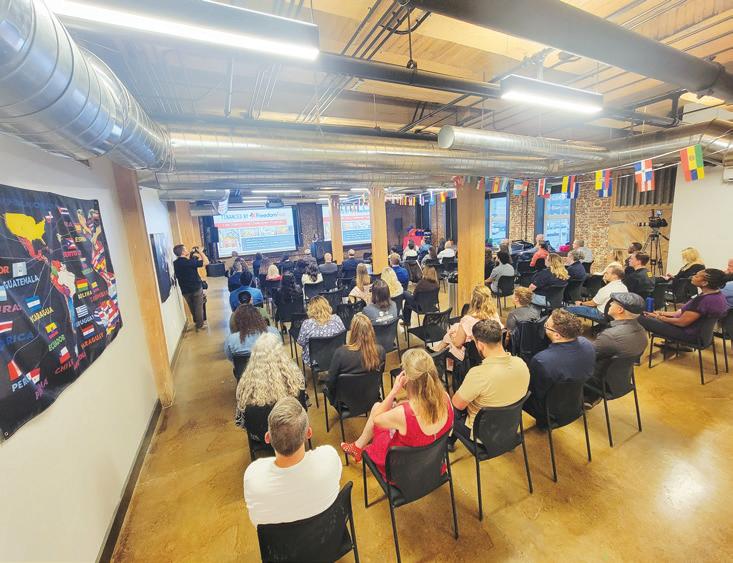
Freedom First Credit Union celebrated its Juntos Avanzamos (“Together We Advance”) designation on Sept. 27 at its main office in downtown Roanoke. The designation requires an extensive application and track record of initiatives that demonstrates a commitment to serving Hispanic customers. This includes resources such as Spanish-speaking staff, interpretation and translation services, financial wellness counseling, special loan and depository services, outreach, marketing, and education materials. Freedom First is the first credit union in Southwest Virginia to get the Juntos Avanzamos designation.
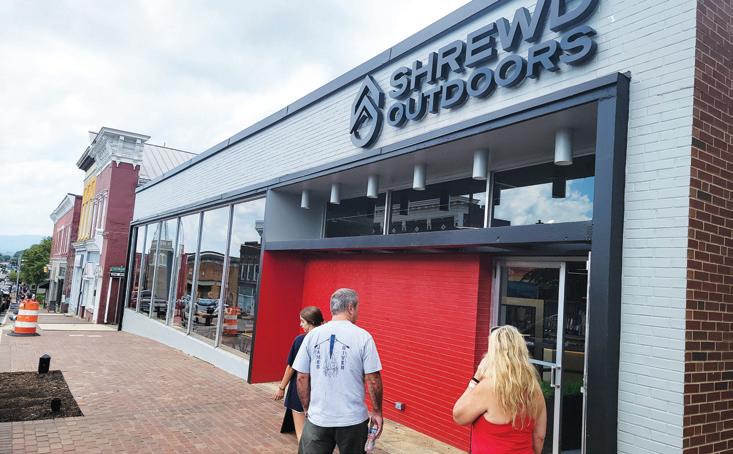

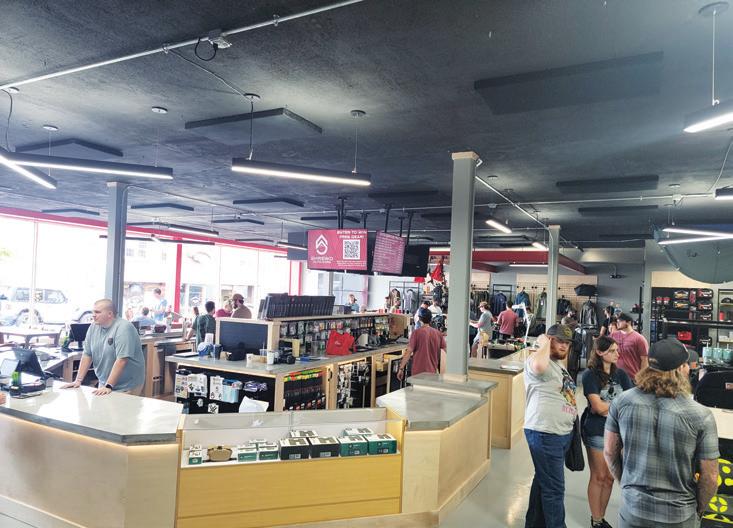

Shrewd Archery has opened in Salem and held its first open house on Sept. 28. The everythingarchery store includes retail sales of gear, equipment repair and maintenance, training, and an archery range (shown above, prior to finished state). The Newsom family of Salem own the business (since 1964) and third generation brothers Laven and Riley operate the new showroom and sport / recreational facility here. Products include a Shrewd-manufactured line that has garnered quite a following of archery experts (including a Shrewd team). Shrewd is in multi-state dealer locations and its extensive eCommerce site; but this new Salem facility is quite the showroom and was built quickly from completely renovating the old Easter Seals office building on Main Steet in a high foot traffic spot.
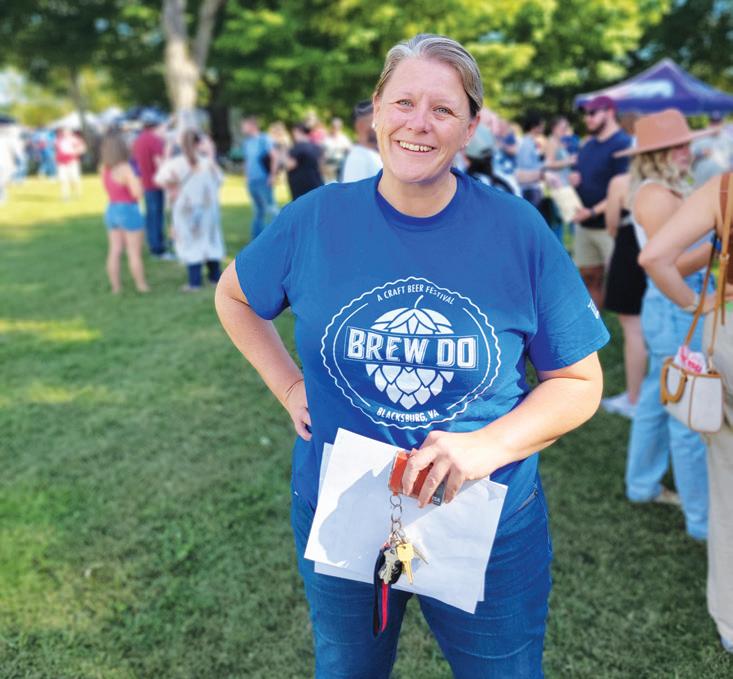

Since 2009, The Blacksburg Partnership has orchestrated the Brew Do craft beer festival (featuring regional breweries); and this year’s event on Oct. 5 was on a most perfect day (though the beginning of Fall, temperature hit 80 during high sun). Executive director Ann Cassell agreed that the Historic Smithfield site on Virginia Tech campus provides a fantastic venue for the 30+ breweries (over 60 beers, ciders, seltzers); 16+ merchandise vendors; food trucks; organizational sponsors; and live music—serving a diverse mix of people, including college students, families, and individuals old and young. Valley Business FRONT has been a sponsor for all 15 festivals.

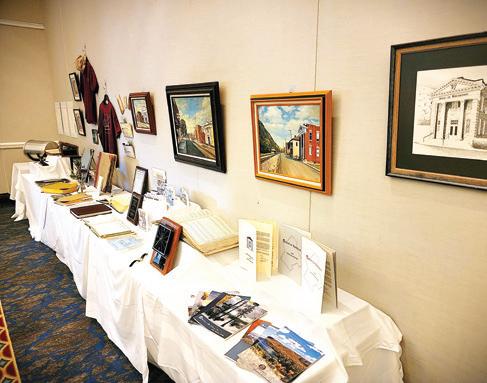
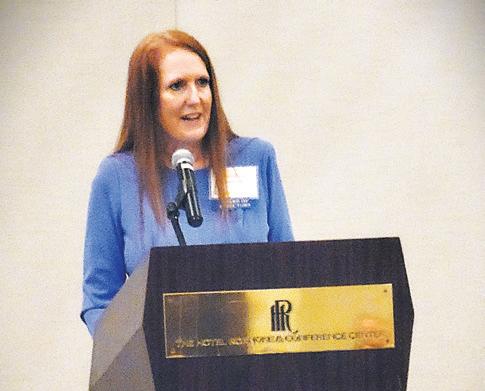
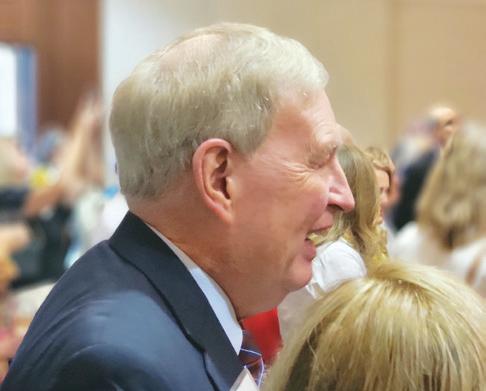

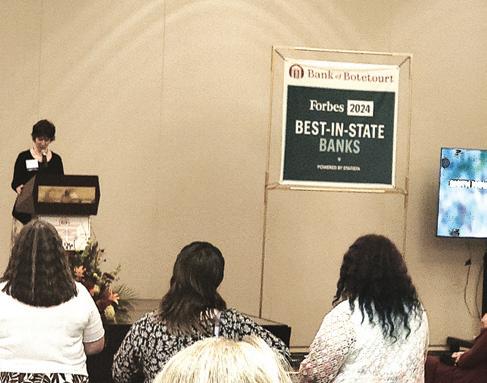
Bank of Botetourt celebrated its 125th anniversary (can you say, “Quasquicentennial”) on Oct. 1 at Hotel Roanoke with a large gathering. The Bank has been celebrating for much of the year, but this night was the grand recognition. Two interesting notes were also shared: The Virginia General Assembly actually chartered the Bank (not the SCC); and only six such chartered banks still exist. Also, Forbes declared Bank of Botetourt the #1 Bank in Virginia in its “America’s Best-In-State-Banks” ranking for 2024. Sixth president Lyn Hath, III; 7th president Michelle Austin; chair Joyce Kessinger; and Delegate Terry Austin all addressed the packed ballroom full of employees, customers, partners, and many other stakeholders. “[Bank of Botetourt’s] strategic leadership has ensured our longevity and success over 125 years, and we look forward to building on this foundation as we continue to grow,” said Kessinger.
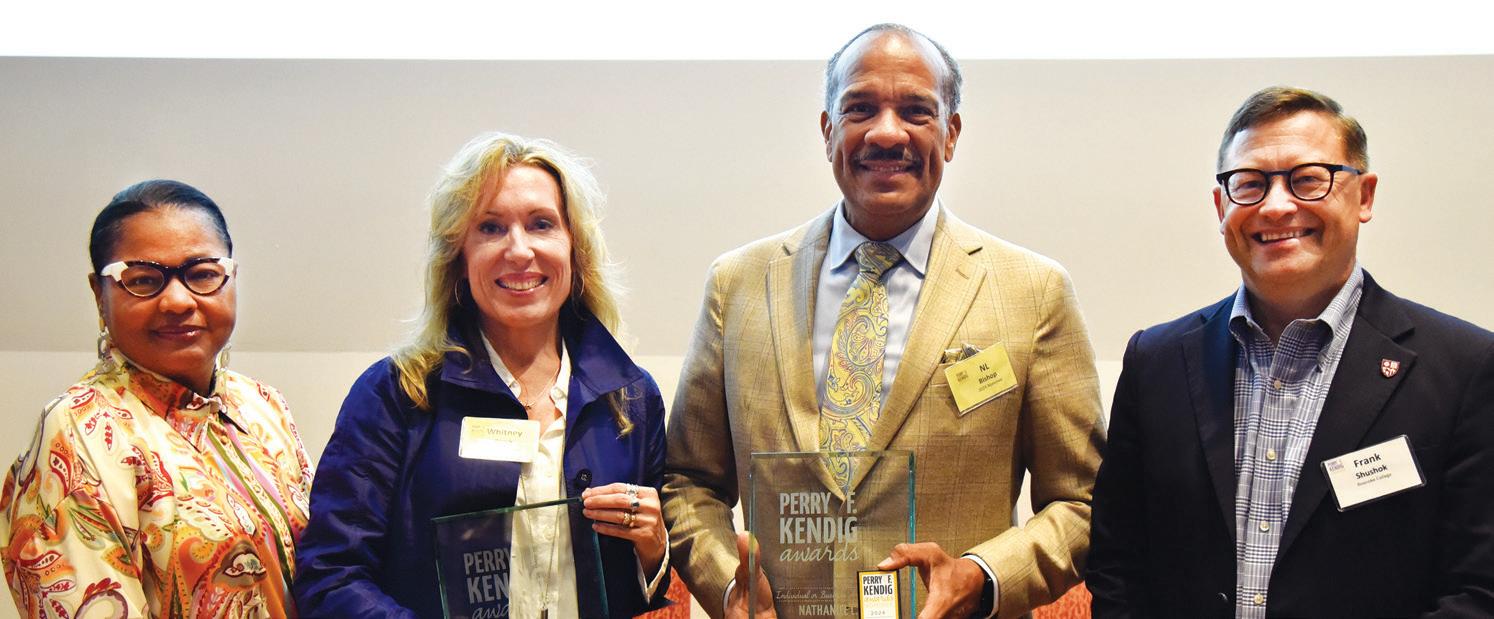
Artist Whitney Brock and Dr. Nathaniel L. Bishop are this year’s recipients of the 39th Annual Perry F. Kendig Awards. The awards, which are cosponsored by Hollins University and Roanoke College, celebrate the people and organizations that support excellence in the arts in the greater Roanoke Valley region. Mary Dana Hinton, president of Hollins University, and Roanoke College President Frank Shushok, Jr. honored the 2024 winners during a ceremony held at Hollins’ Richard Wetherill Visual Arts Center on October 1. Brock’s latest endeavor is A Thread Through Roanoke: Celebrating Contemporary Traditional Portraits of the People that Make Roanoke Matter.
Bishop, a long time Carilion who retired this summer as the senior associate dean for diversity, inclusion, and student vitality at the Virginia Tech Carilion School of Medicine, led the creation of the Henrietta Lacks statue in downtown Roanoke to commemorate the African American woman from Roanoke whose cancer cells are the source of the first immortalized human cell line in medical research. Bishop has also served as a leader on the boards of Mill Mountain Theatre and the Taubman Museum of Art.
Virginia Credit Union’s data engineering and analytics team continues to earn recognition for its industry-leading and future-focused initiatives that are helping the credit union better serve members, supporting staff and operations, and providing insights for strategic business decisions. Member One Credit Union in Roanoke is now a division of VACU. In the past several months, the team has been recognized with three honors, including two awards from global software provider Informatica and recognition from CULytics, the nationally recognized data analytics consultancy,” said Lee Brooks, VACU’s senior vice president of data analytics.
VACU was recently recognized with Informatica’s Rapid Data Pipeline Development Award. Over the course of a year, Phillip Hillis, Jason Kropka, and Sandhya Sajja helped transitioned the credit union’s data environment from on-premises data servers to a more efficient and future-ready cloudbased system, according to VACU.
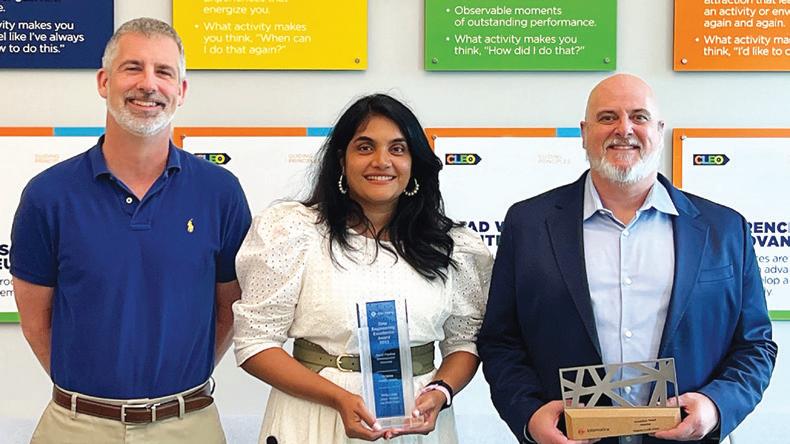
Valley Business FRONT is FRONT’n About at many events each month. Check the social media links at www.vbFRONT.com for more coverage.
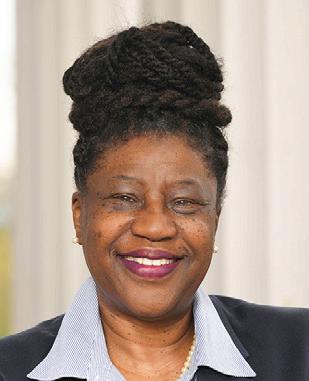
Cheryl Hilton has been announced as the new director of TRIO Student Support Services at Virginia Western Community College. She has worked at VWCC for 18 years in various capacities. Hilton experiences with TRIO began as a TRIO student, attending Patrick Henry High School in Roanoke and Roanoke College. She holds a BBA degree from Roanoke College and an MALS degree from Hollins University, as well as certifications in Teaching and Learning.
Jamal Jackson has been selected as the community services officer for the Virginia Tech Police Department.

Jackson has served on the Virginia Tech Police Department force since December 2019.
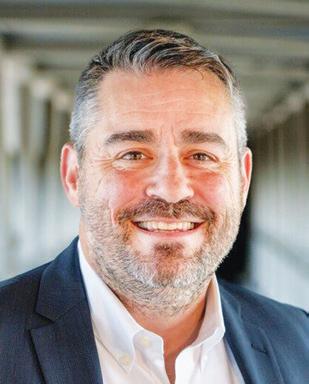
Virginia Tech recently promoted Dan Cleveland to associate vice president of advancement. Cleveland, who had served as assistant vice president for colleges and programs, will help direct the university’s overall fundraising strategy while continuing to oversee the advancement offices of multiple colleges and programs. Cleveland joined
Virginia Tech in 2018 as assistant dean of advancement for the College of Liberal Arts and Human Sciences.
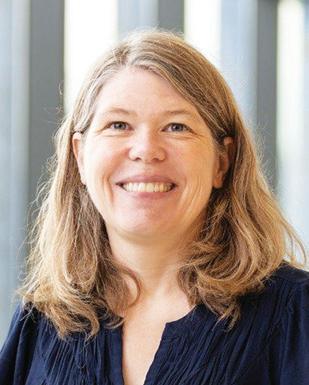
Kirsten Nielsen arrives at Virginia Tech as a new professor of microbiology and immunology at the Virginia-Maryland College of Veterinary Medicine, and is assembling a laboratory in the Center for One Health Research. Her principal area of research, the invasive fungus Cryptococcus neoformans, very much fits into the veterinary college’s One Health focus that links human, animal, and environmental health. Prior to coming to Virginia Tech, Nielsen served at the University of Minnesota since 2007 in the Department of Microbiology and
Immunology at the medical school.
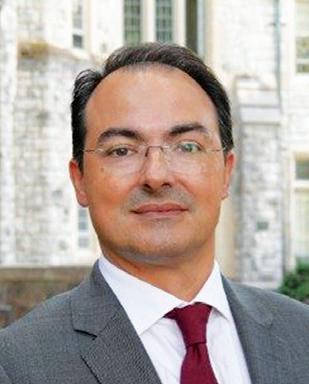
Mario Ferruzzi has joined Virginia Tech’s College of Agriculture and Life Sciences as its 12th dean on Oct. 15, bringing to the role more than two decades of experience in agriculture, food and nutrition science, leadership, and collaboration. He most recently served as a professor and section chief in the Department of Pediatrics at the University of Arkansas for Medical Sciences and director of the U.S. Department of Agriculture Agricultural Research Servicefunded Arkansas Children's Nutrition Center
Hollins University has named Professor of Gender and

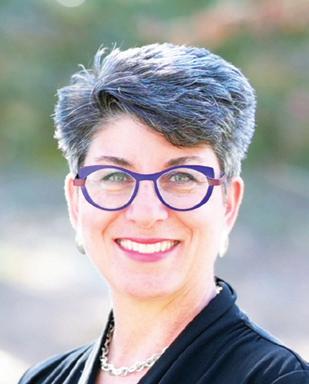
Women’s Studies and Anthropology LeeRay Costa as executive director of leadership studies and the Batten Leadership Institute. As executive director, Costa is responsible for program development, assessment, crossdisciplinary collaboration, recruitment, outreach, and leadership teaching and mentoring. In 23 years at Hollins, Costa has served in multiple leadership roles.
Nathan Walker has joined the Roanoke team of Pinnacle Financial Partners as financial advisor. Walker has 13 years of financial experience and worked previously at Atlantic Union Bank
Send announcements to news@vbFRONT.com Photos should be color, 300dpi. A contact / source must be provided. Inclusions are not guaranteed and all submissions are subject to editing.
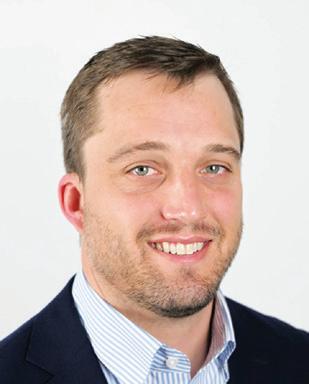
and American National Bank & Trust. He graduated from University of South Carolina with a BBA degree, and spent six years in the finance department of a regional construction firm.
Christy Bennett joins Pinnacle as a financial advisor assistant with 32 years of experience, most recently at American National Bank & Trust, and prior to that, Bank of North Carolina and Valley Bank. She has multiple

appraisal certifications through the American Bankers Association and the Risk Management Association.
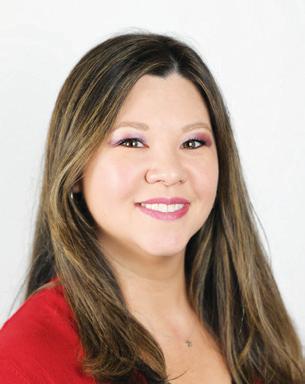
Jenna Nelson joins Pinnacle as a financial advisor assistant with 27 years of experience, from Atlantic Union
Bank, Bank of North Carolina, and Valley Bank. She is well-known to Pinnacle’s clients and the Roanoke commercial real estate community for her extensive experience and expertise.
Tiphanie Rasnick has been appointed commercial office manager and will lead the team at the new headquarters of Ride View Bank in Roanoke. Other appointments at the Headquarters SMART Center include: Jacob Thomas, assistant bank manager; Stephanie Lawrence, Sarah Sloan, and Sydney Perrington
Roanoke-based Member One, a division of Virginia Credit Union since August, has

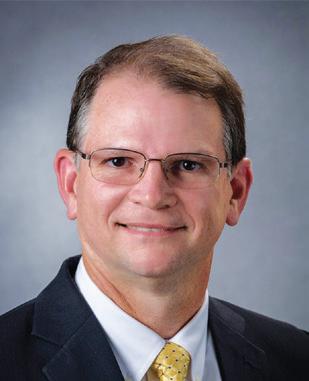

announced its regional leadership team for the combined Roanoke Valley, New River Valley and Lynchburg markets. Tim Rowe is the Market President for Member One; a 38-year veteran of Member One and a lifelong Roanoke-area resident, Rowe will lead regional efforts in member services, employee engagement and community
involvement. Jean Hopstetter is the Senior Executive Vice President & Merger Integration Executive, with almost 30 years of experience in the credit union industry, including 16 years at Member One. She will lead regional efforts related to the organization’s integration goals and objectives.

Betty Bridges has been appointed Wellness Director at the Kirk Family YMCA in Roanoke. A US Marine Corps veteran, Bridges has many years of experience
in fitness, including expertise in Les Mills programming and yoga.
Karie Geiss has joined ESPN Blacksburg and the Blue Ridge Media Partners Group as vice president and market manager. She has over 20 years of experience in radio; and has worked as station manager for WHFI-Lindside, WV; senior account executive for Cumulus Broadcasting; and most recently worked for WSLS-10-Roanoke.
Jeanne Bollendorf has been named the new president of Roanoke Kiwanis. She has managed much of the club communications, from website to email and newsletters, and has
served on the board of directors for two 3-year terms.
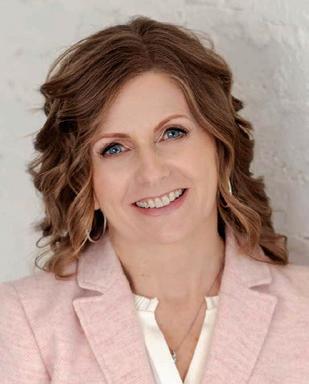
Terri Mitchell has been named Montgomery County’s Chief Financial Officer. She will partner with county leadership to plan, forecast, and achieve optimal financial outcomes, manage budget and investment decisions and execute strategic business plans. Mitchell has more than 30 years of experience in finance and administration, in private industry and education.
Compiled by Gene Marrano and Tom Field.
I saw someone doing it in stilettos—don't do that.
Page 40


Linda Balentine is a Roanoke entrepreneur, founder, and owner of Crowning Touch Senior Moving Services as well as its transport, consignment, auction, and real estate portfolio. The business caters to the high growth senior citizen demographic and has been serving our regional market since 1996. [ linda@ crowningtouchusa.com ]
Aila Boyd serves as the editor of “The Fincastle Herald” and “The Vinton Messenger” and coordinates social media for the Botetourt County Chamber of Commerce. She holds an MFA in writing from Lindenwood University.
Bonnie Chavez is the CEO of Building Beloved Communities, a local consulting firm specializing in community-centered business solutions. Her driving force is to help all organizations overcome business barriers with a lens focusing on smart solutions that benefit the community. Bonnie is a proud lesbian, Latina woman who values her family, roots, heritage, and culture. [ bonnie@building belovedcommunities.com ]
Jennifer Poff Cooper is a senior correspondent for FRONT, and a graduate of the RB Pamplin College of Business at Virginia Tech with a Master of Arts in Liberal Studies from Hollins University. She is a native of Christiansburg, where she lives and writes in her family’s home place. [cooperjp91@gmail.com]
Carrie Cousins is the Director of Digital Marketing at LeadPoint Digital in Roanoke. For 15+ years, she has helped businesses tell their stories and get better results online with practical digital marketing strategies. She also an active leader in
AAF, serving on the local and district boards, and is an adjunct professor at Virginia Tech.
Dan Dowdy is the business development director for Valley Business FRONT and owner of The Proofing Prof proofreading services (proofingprof.net). His background includes service in the U.S. Air Force and an extensive career in education, including teaching college-level writing competency and business courses, and working for a Fortune 100 company. [ddowdy@vbFRONT.com]
Tom Field is a creative director, marketing executive and owner of Berryfield, Inc. in Salem, and owner of Valley Business FRONT magazine. He has written and produced programs and materials for local and international organizations for 40 years. [tfield@berryfield.com]
Micah Fraim is a topreferred Certified Public Accountant and business finance strategist who is well-connected in the regional business community and nationally recognized. Publisher of The Little Big Small Business Book, he also publishes a blog at www.fraim.cpa/blog and is frequently interviewed as a business financial expert in national media channels. [ micahfraim@fraimcpa.com ]
Kevin Holt is a partner at Gentry Locke’s Roanoke office where he has worked since 1998. His specialty practice area is commercial, real estate, intellectual property, and ERISA (Employee Retirement Income Security Act) litigation. He enjoys supporting and attending games of his two sports-active daughters and enjoys traveling (visiting 27 countries and 38 states).
Shatenita Horton serves as the Senior Vice President of Retail Banking
at Freedom First Credit Union. As a member of Senior Management, Shatenita directs the sales and service efforts through creation, coordination and management of companywide Retail, Private, and Business Banking programs. She hails from Columbia, Missouri and has lived in Roanoke for the past 3 years. [ shorton@freedomfirst.com ]
Amelia Huggins is a transfer student in her second year of Roanoke College. She has always had a passion for the creative and weird. She has a tendency to be a bit of a perfectionist as well as someone who just loves staring off into space and coming up with story ideas. Due to her disability, SCA 29, she has always had an interest in disability studies which is why she decided to major in it along with creative writing.
Frazier Hughes was recruited by the CEO of Keller Williams Realty after being named 2017 salesman of the year at Berglund Luxury of Roanoke. He also hosts The Roanoke Real Estate Podcast, is Dale Carnegie Trained, a former radio personality, and is a Social Media Influencer. [ frazierhughescom@ gmail.com]
Gene Marrano is FRONT editor and an award-winning anchor and reporter for WFIR Newstalk radio. "Best one on one interview" award from Associated Press of the Virginias for his interview with former Roanoke County Chief of Police Howard Hall. [gmarrano@cox.net]
Jeff Merritt is vice president of Roanoke operations for Cox in Virginia. He is responsible for leading employees and the day-today operations across the Roanoke market. He holds leadership roles in a variety of organizations including Boys & Girls Clubs of Southwest Virginia, Western
Virginia Foundation for the Arts and Sciences, and Virginia Cable Telecommunications Association. He resides in Roanoke with his wife and two children.
Mary Ann L. Miller is vice president of business banking and community relations at Bank of Botetourt. A graduate of Bridgewater College, she has been in the banking industry for more than fifteen years and currently serves on the board and executive committee as past-president with the Botetourt County Chamber of Commerce, a board member with the Daleville Institute, and is vice chair of the board of with the Botetourt Family YMCA. A native of Botetourt County, she resides in Daleville with her husband and two children.
Alicia Smith is vice president of F&S Building Innovations in Roanoke. She grew up in the construction business and has served in multiple capacities, currently managing all sales, design, production and marketing of the residential division. She's also the president of Build Smart Institute and serves on several boards, community and church organizations. Alicia enjoys lake-life living and fun times with her family (husband and two daughters) and friends.
Nicholas Vaassen is a graphic design specialist with over 27 years experience. His design projects include logos, magazines, web design, signs, newsletters, postcards, business cards, and any other marketing materials you can think of. [ nicholasvaassen@ gmail.com ]
Sheri Winesett is Chief Operating Officer at John Mattone Global, a premier executive and leadership coaching boutique, Author of Transparent Leadership for Women Who Mean Business.
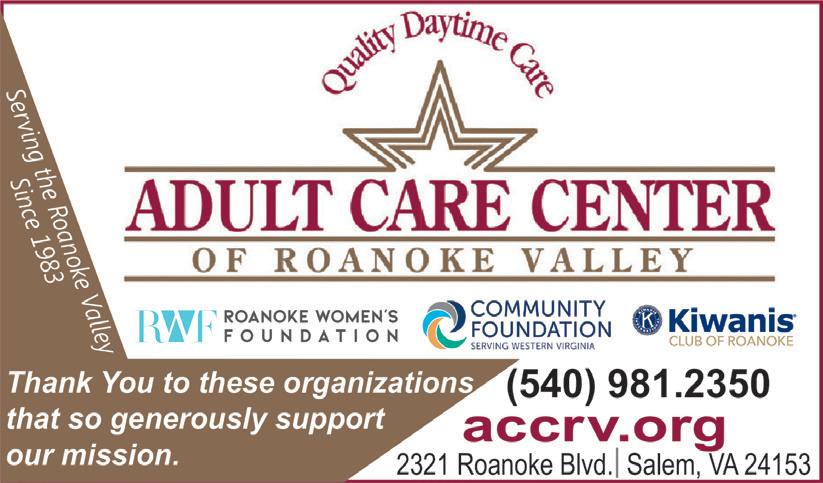


That’s serious, Jack
Sinkland Farms in Christiansburg made the USA Today’s “10 Best Reader’s Choice Awards” for 2024. Sinkland won third best pumpkin patch and sixth best corn maze in the national recognition, which was compiled and ranked by USA Today readers and editors.
Honey of an opening
Atheling Meadworks is opening a merchant boutique location in downtown Roanoke at 123 Campbell Avenue. The shop will feature the local meadery’s award-winning meads and limited run meads. Atheling was recently awarded the Gold Medal by the Mead Crafters Competition for its flagship mead, Shield Maiden.
Lily faded in Salem
Jersey Lily’s Roadhouse restaurant in Salem closed on Oct 1, after eleven years in business; the restaurant in Roanoke also closed after a fire in January.
Hooray for Valleydale
That headline will probably be used A LOT with the opening of the much-anticipated Valleydale Apartments in Salem. The slogan and jingle were super popular in the long-time advertising campaign for the former Valleydale meat packers business, located on the same site (1936—2006).
Management has announced the pre-lease phase of the luxury development; units range from about $1,500 to $2,000.
Biz broker on Inc list
Bundy Group—a business broker and investment bank for business sales, acquisitions, and raising capital—founded in Roanoke 35 years ago, and also in Charlotte, has been listed on the Inc 5000 “Fastest Growing Companies in America.”
New minimum wage
The minimum wage for Virginia increases to $12.61 per hour, effective January 1, 2025. The adjustment represents a 3.4% increase and is based on the 2020 amendment to the Virginia Minimum Wage Act. (Virginia does not exempt tipped workers from the state mandated wage; those employees are to receive the same wage as other employees, plus earned tips.)
Southside celebrity
Television celebrity chef Gordon Ramsay will have one of his restaurants at the new Caesars Virginia casino in Danville—possibly before the end of the year. Arguably, the top and most popular TV chef currently, Ramsay is known for multiple shows, including “Hell’s Kitchen” and “Master Chef,” where his surly
demeanor is on full display.
Raiders get money
North Cross School in Roanoke received a $150,000 Education Improvement Scholarship from Globe Life Liberty National Division. The donation will be used to expand financial aid offerings to eligible students.
Small biz pole
According to the Small Business Index by MetLife and the US Chamber of Commerce, small business owners are much more interested in the 2024 presidential election than previous election cycles (71% more interested; 42% much more interested). “The economy” is the top concern; and nearly nine in ten say it is very important to not raise business taxes. The Q3 2024 survey was conducted July 18 –August 2, 2024 and has a credibility interval of plus or minus 4.4 percentage points for all respondents.
Youngkin administration appointments
State Executive Council for Children’s Services: Natalie Handy of Roanoke County, Vice President of Government Affairs and Advocacy, Health Connect America; State Health Department Sewage Handling and Disposal Appeal Review Board: Dr. Philip Brown of Christiansburg,
Extension Specialist in Soils and Septic Systems, Virginia Tech.
FSRV top rating Family Service of Roanoke Valley announced it once again achieved the highest rating “Platinum Transparency 2024” by Candid / GuideStar, which measures nonprofit organizations.
The Tobacco Region Revitalization Commission, an economic development agency under the Secretary of Commerce and Trade led by Secretary Caren Merrick, has now accepted applications for the third round of its Energy Ingenuity Fund, which aims to build on previous rounds of the program; the goal is to “bring innovative energy projects, along with the jobs and investment that come with them, to Southern and Southwest Virginia.”
The recently concluded second round of the program saw four projects funded that will help meet current and future energy needs, reduce costs for consumers, increase reliability and more. Among those grantees was The County of Bedford, for New London Phase 2.1, a $750,000 Grant that will allow for the completion of site development of the New London Business & Technology Center. This phased project will
be used to extend roads and utilities to create pad-ready sites for future businesses.
GO Virginia grants geared towards workforce pipelines
More than $2.5 million in Growth and Opportunity for Virginia (GO Virginia) grant awards have been issued for 21 statewide projects that are focused on creating workforce pipelines for targeted industries and supporting the cultivation of critical industry resources to attract and grow Virginiabased businesses. Among those grants in Region 2: Developing IT and Cybersecurity Certification Pipeline (ITCCP) to Advance Cluster Growth ($202,872): Counties of Montgomery and Pulaski, and the City of Radford. Radford University, in partnership with Commonwealth Cybersecurity Initiative Southwest Virginia, will increase the number of certifications earned in the information technology field by establishing a Pearson Virtual University
Enterprises (VUE) testing lab and market the need for certifications to college students and regional employers.
Also: GMP Clean ($100,000): Montgomery County and the City of Roanoke. Montgomery County and the city of Roanoke will partner to survey the regional needs to identify and implement a pilot cleanroom space. The pilot cleanroom space in this project will be utilized to test and promote a state-of-theart modular cleanroom model. The project encourages the growth of the life sciences and biotechnology industry clusters within Region 2.
Financial literacy grant for VACU targets teens
Virginia Credit Union (VACU) has been awarded a $60,000 grant from the National Credit Union Foundation to offer an intensive six-week personal finance course for older youth in foster care and provide these young people an opportunity
Send announcements to news@vbFRONT. com. A contact / source must be provided. Inclusions are not guaranteed and all submissions are subject to editing.
to kick-start their personal savings. Virginia Credit Union, which now includes Roanokebased Member One as a division, will host three six-week Financial Education for LIFE programs and anticipates reaching as many as 30 youth and young adults in foster care through the programs.
In-person programs are planned in Richmond and Lynchburg, with an additional virtual cohort. The National Credit Union Foundation is helping identify potential program participants, most of whom will be ages 15 to 19. Research shows that young adults are especially vulnerable in terms of their financial health and often struggle to build personal savings. For those aging out of the foster care system,
personal finance challenges can be particularly difficult owing to a lack of family support and assistance.
NIST grant for Blacksburg company
The U.S. Department of Commerce’s National Institute of Standards and Technology (NIST) has awarded Jensen Hughes, located in Blacksburg, a $100,000 grant for a project that involves a Fire Dynamics Simulator (FDS) to improve fire growth predictions. “This grant for $100,000 helps Jensen Hughes develop a computational model tool necessary for fire simulations and educating our fire protection community,” said Congressman Morgan Griffith; the project awarded is
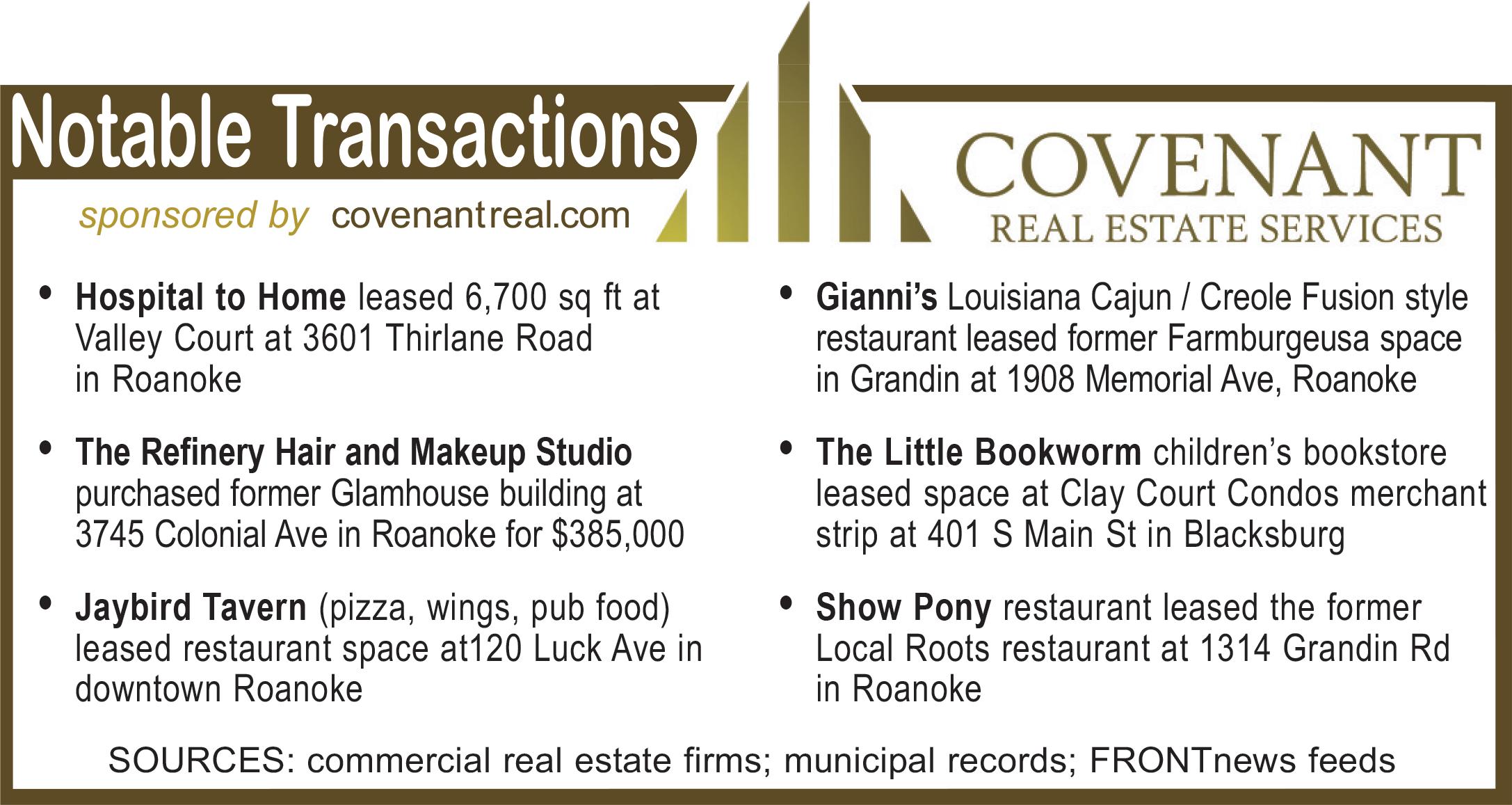
entitled “Development of Efficient Pyrolysis Modeling for Accurate Fire Growth Predictions.”
Jensen Hughes uses their network of in-house lab facilities to conduct testing under variable conditions and applications. The company deals with fire protection, accessibility, risk and hazard analysis, security and emergency management.
Tech grant geared towards commercial vehicle operators
The U.S. Department of Transportation (DOT) has awarded Virginia Tech a $490,251 grant for a project that develops training of Advanced Driver Assistance Systems (ADAS) technologies. The awarding agency of these funds is the DOT Federal Motor Carrier Safety Administration. The Virginia Tech Transportation Institute (VTTI) will administer these funds to develop ADAS training videos, create an educational website, create immersive virtual reality ADAS training and disseminate the trainings through Commercial Motor Vehicle (CMV)
to better educate commercial vehicle operators.
Asphalt company recognized
Associated Asphalt in downtown Roanoke was presented with a Pro Patria Award by Brigadier General Louis Mitchell in September. The award was presented to AA for the company’s support of active-duty military who are employed with the company, as well as the company’s emphasis on hiring and supporting military veterans.
VBR by the numbers
Virginia's Blue Ridge says it has generated a record $1.3 billion in economic impact for 2023, which is nearly a 7-percent increase over 2022. Kathy Lucas, VBR's Director of Public Relations, says the numbers they are sharing come from Virginia Tourism Corporation. Lucas says visitor spending generated nearly $43 million in local tax collections from hotel stays for the Cities of Roanoke, Salem and the
Counties of Botetourt, Franklin and Roanoke. Virginia's Blue Ridge is funded by the hotel occupancy tax and the official destination marking organization for the Cities of Roanoke, Salem and the Counties of Botetourt, Franklin and Roanoke.
Mike’s in Roanoke
Jersey Mike’s Subs, has opened at 3621 Blue Hills Drive in Roanoke. Franchise owners G. Robert Waldrop and Devan Newman celebrated with fundraiser to support the William Byrd High School. Founded in 1956, Jersey Mike’s Subs now has more than 4,000 locations open and in development.
Bank of Botetourt gets a Congressional shout out
A bank in our area is celebrating 125 years in business. Roanoke Area 6th District Republican Congressman Ben Cline spoke from the House floor recently to recognize the Bank of Botetourt for hitting the 125 year mark - saying it
remains one of only six Virginia state-chartered Banks to have existed before the establishment of the State Corporation Commission.
Cline’s remarks were read into the Congressional Record: “founded as the Bank of Buchanan in 1899 and chartered by the General Assembly, this institution began its journey on main street in Buchanan and in 1995 changed its name to the Bank of Botetourt. Today they’ve grown into a vital part of our local economy, boasting 800 million [dollars] in assets and employing 133 individuals across 13 locations.”
The Bank of Botetourt recently expanded to new offices in Rocky Mount and Goodwill's Melrose Plaza in Roanoke (coming soon). “They positively impact the lives of residents [in the region],” noted Cline.
Tanglewood Y getting closer
YMCA of Virginia's Blue Ridge held two events in October in preparation for the Tanglewood Mall location's opening they hope to kick off by the

end of the year. Amanda Keffer is Operations Director of the YMCA at Tanglewood. “The buzz around it is even more than we thought it would be. That’s been really exciting, we’re getting inquiries all the time about programming we’re going to offer. We’re really excited to be able to serve this area [southwest Roanoke County] in our community.” A fitness center and pickleball courts are planned. Keffer says memberships can be used across the
soon-to-be six YMCA locations of Virginia's Blue Ridge.
Roanoke City to award funds for new equipment
The Roanoke Economic Development Authority (EDA) has committed $400,000 to bolster business growth in the City of Roanoke with a new equipment incentive program spread over two years. The program will distribute $200,000 each year and offers qualifying businesses the opportunity to
receive a fifty-fifty match on essential equipment, up to twenty thousand dollars. Mark Nelson, the Director of Economic Development for the City of Roanoke, says it's good for local businesses. “It helps them get a leg up.”
EDA Chair Braxton Naff says they're excited to support businesses in the City, whether it's a downtown restaurant needing new kitchen appliances, or a manufacturer getting new equipment to boost production. Nelson adds
that they will make sure the grants go to fully vetted businesses. “We have the guardrails in place; you have to be paying personal property taxes, be in business for a year or more, have two full time W-2 employees and you have to be in good standing with the City of Roanoke. You have to have allocation that’s zoned for business or industrial.”
Compiled by Gene Marrano and Tom Field
Check out additional FRONT Notes from Valley Business FRONT on our Facebook site or social media links at www.vbFRONT.com

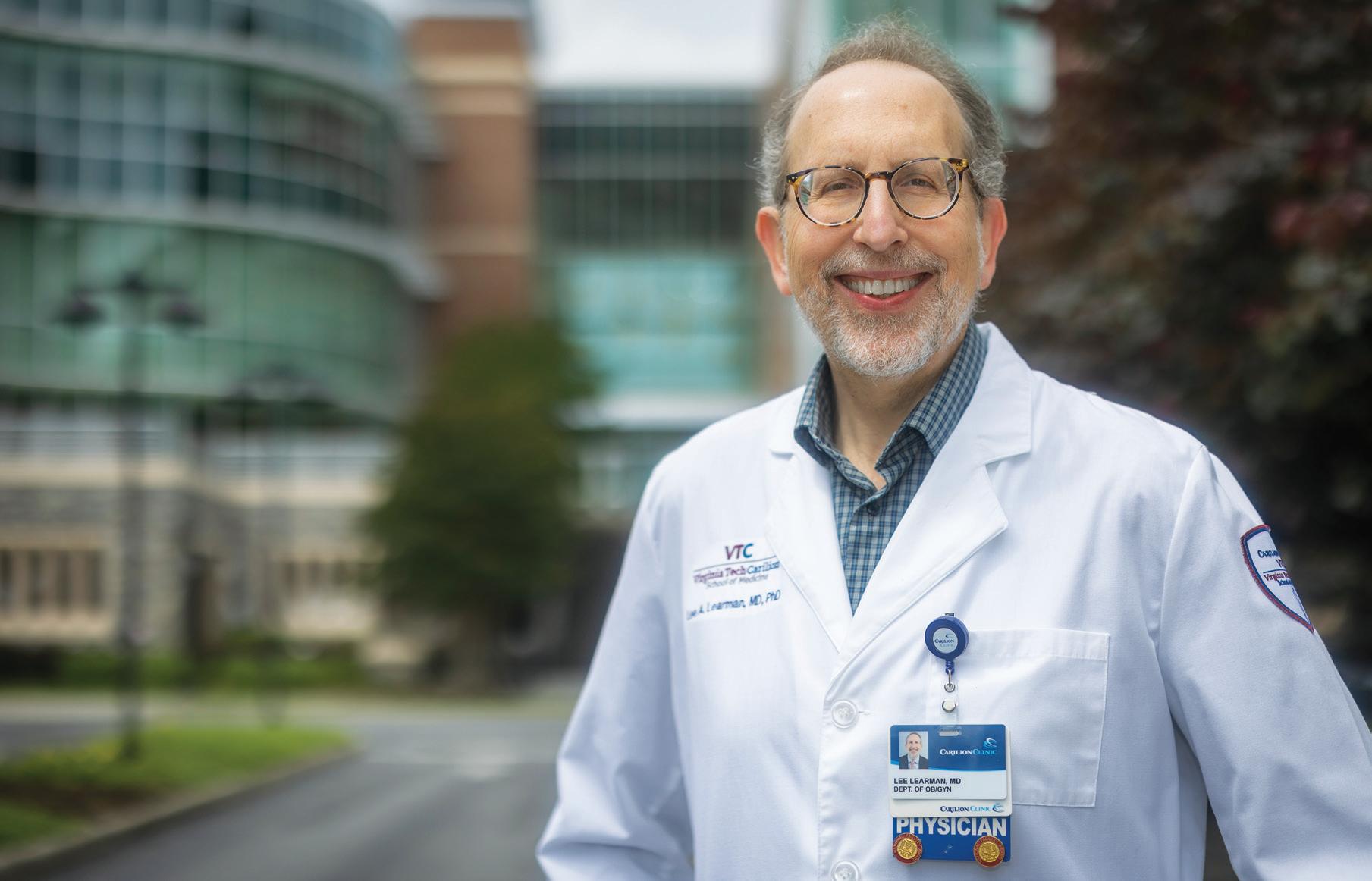
By Gene Marrano
The Virginia Tech Carilion School of Medicine wants to grow its footprint and the number of students it can accept – while maintaining that small school feeling.
Even in his early days on the job in 2019 as Dean for the Virginia Tech Carilion School of Medicine (VTCSOM), Dr. Lee Learman talked about expanding the number of first year students on the Roanoke campus. In small increments at first – but perhaps doubling that enrollment number, which could only happen with a new and larger building. That appears to be on the horizon, although still just in the planning stages, after appearing as a $150 million dollar budget item for Virginia Tech, which operates the school. Learman said back then that an expansion of that scope was also something founding Dean Cynda Johnson has spoken about.
Technically Carilion still owns the Riverside campus property where the new medical school would go; the Fralin Biomedical Research Institute (FBRI) that originally
shared the VTCSOM building until it grew and needed its own place across the street would take back some of that space after the new school opened, not until at least 2028 as projected.
Initially, “we made a decision even then to move just one increment bigger, from 42 to 49 per class. Meanwhile we had been contemplating going to bigger numbers.” The pandemic slowed down plans to grow again within the same footprint and says Learman “recharged our analysis as to how big we would be.” VTSCOM has had no problem in attracting applications from far more students worthy of being accepted than it had space for, so filling more seats in classrooms was not the problem.
Imagining a bigger school and more clinical opportunities from its partnership with
Carilion Clinic in the coming years finally led Learman and others that they were ready to make the case to Virginia Tech for building a larger medical school, which should then be a higher priority when it comes to funding.
First came the resources to plan for a new school, made in concert with expansion needs for the FBRI, which could take over the Riverside 2 building space at a lower cost than growing by new construction. Expansion at the FBRI, fueled by grants awarded for a myriad of biomed research projects, is “linear and predictable,” notes Learman, which makes it easier to make the case for allocating money for the project still being planned at this point. “They definitely will make good use of that space. I think it was a smart move to put the two together in our capital request.”
Conversations with Carilion and the FBRI assured Learman that there is capacity for more clinical rotations and research mentorships, should the medical school double in size to around 400 students from the first through fourth year. Two years after a planning grant was realized, Virginia Tech will have the first opportunity to advocate for the building fund when the 2025 General Assembly session convenes in January. “That’s the usual cadence,” says Learman. Local legislators have been advised of the plan for growth ahead of the upcoming session.
Here’s a carrot that could help sway some
lawmakers: Learman says VTCSOM would like to offer an in-state tuition program, with support from the Commonwealth, as part of that planning process. “We want to address the physician workforce shortage in Virginia. Right now, without an in-state tuition structure, we have about 20-25 percent of our students that are from Virginia. In the latest data we were able to find of the 630 students who got into any medical school that live in Virginia (in the 2022-23 academic year), less than half of them stayed in Virginia for medical school.” In other words, they went to med school elsewhere – and many never returned to their home state for residencies or to practice.
Learman doesn’t want to lose that small class, more individualized style of teaching that has attracted some students in the past however, calling that a “must have. Staffing up to do that effectively is very important to us. We will maintain all of the strengths of our small group, problem based, case-based learning approach. We are doubling down on the value of our medical education in curriculum innovation.”
Students who leave VTCSOM with a sense of who they are as a health care professional – their identity – is another aspiration for Dr. Learman and the school faculty. Becoming “better team players,” for example. “We have some work to do ahead, we have our planning grant … [and] are all very excited here. [But] we are early in that process.”

